FLARE 2025 - Peru
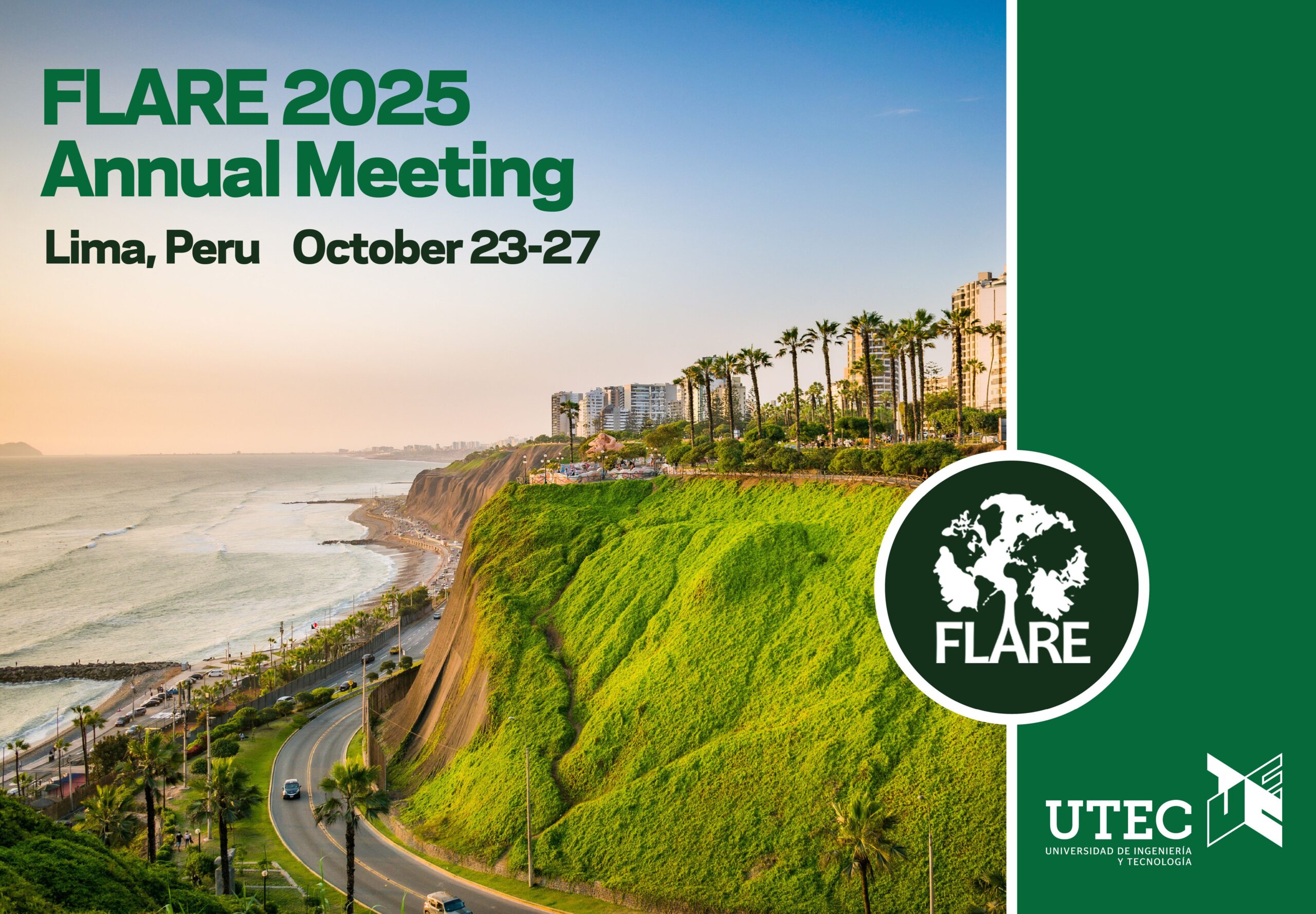
The 11th FLARE Annual Meeting was held from October 23-27, 2025 in Lima, Peru in partnership with the University of Engineering and Technology.
The FLARE Secretariat would like to thank all of the participants in this year's Annual Meeting.
FLARE Annual Meeting Sponsored By


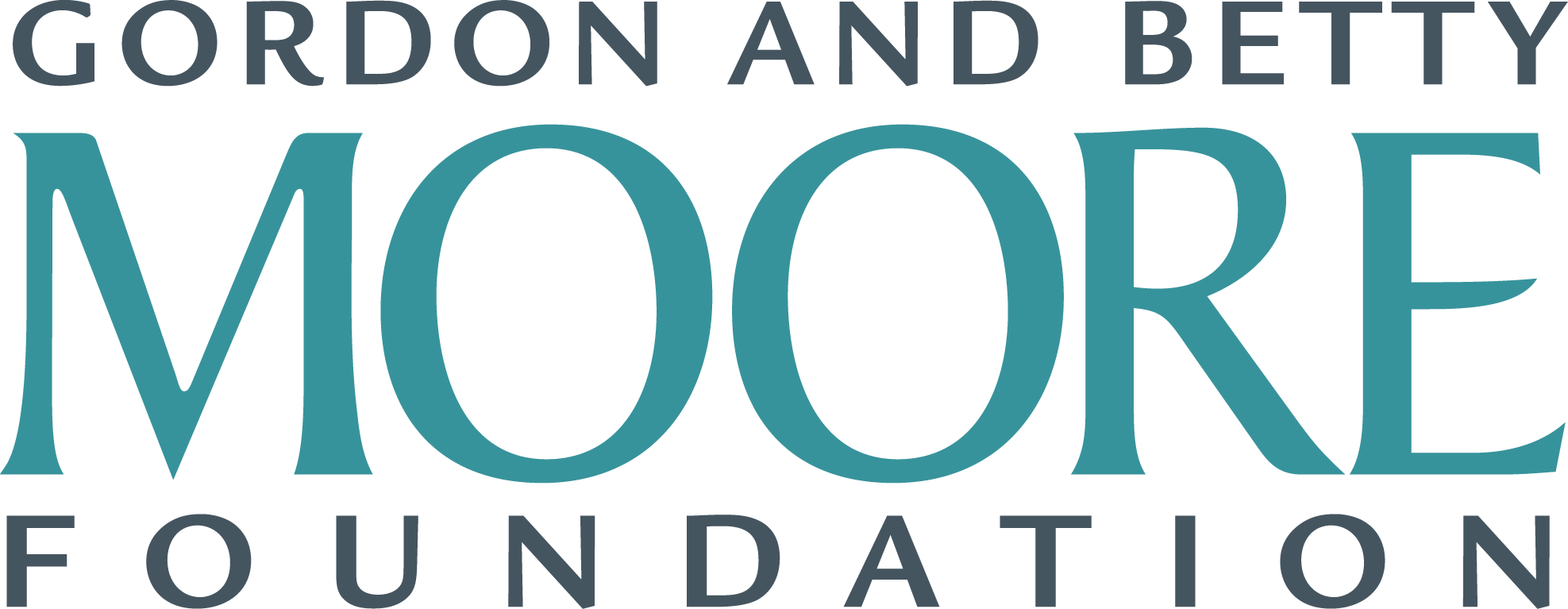
2025 Annual Meeting Photos
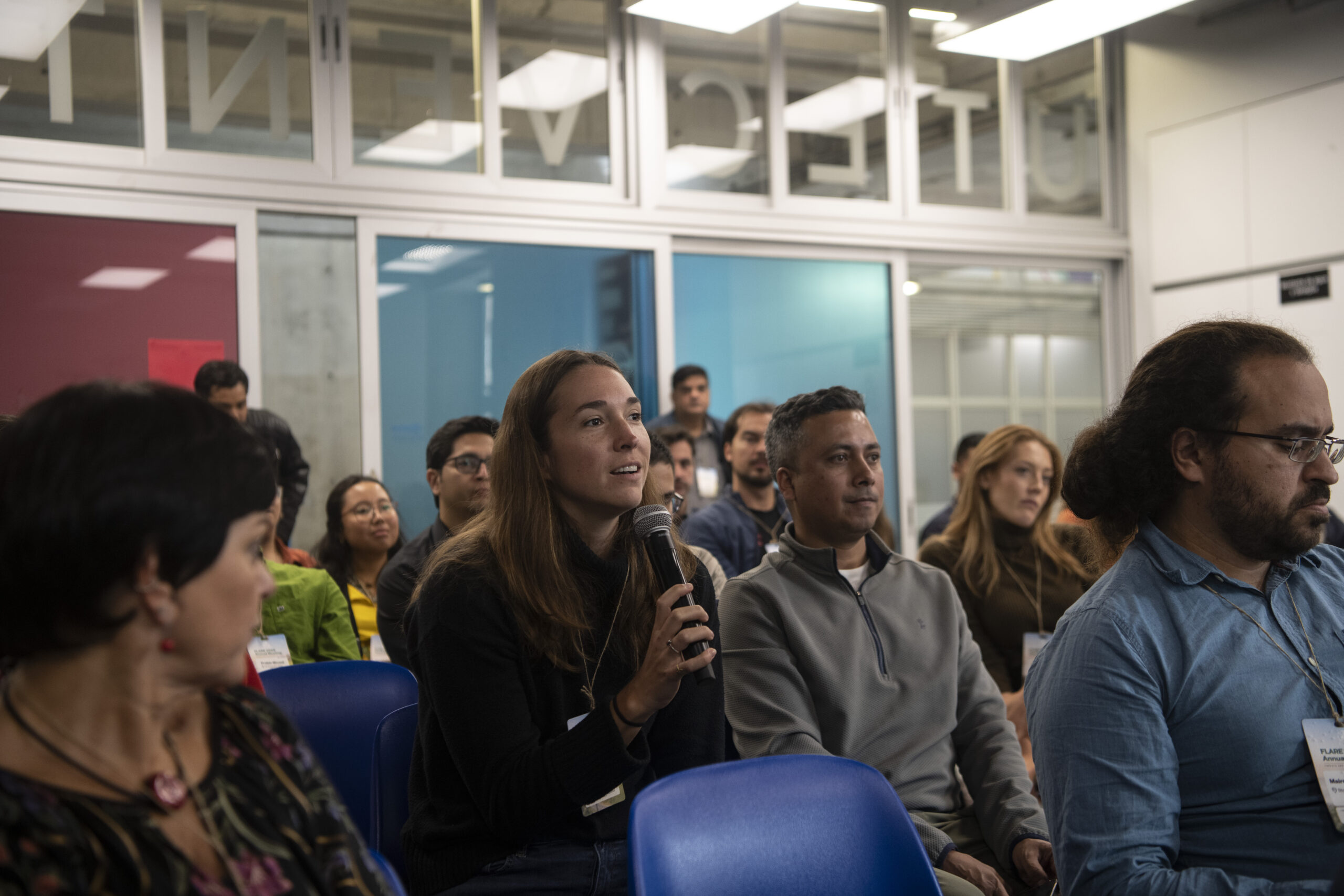
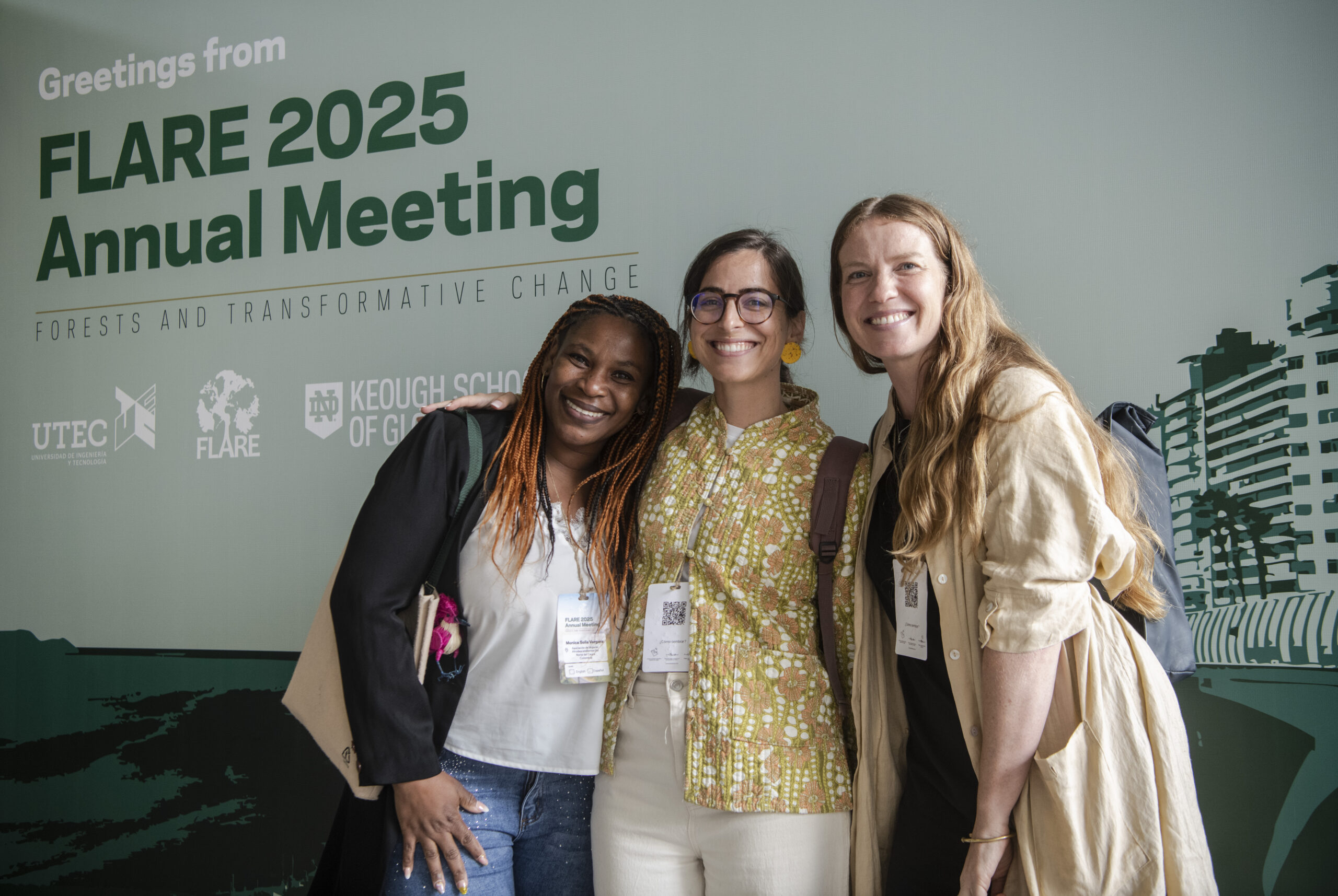

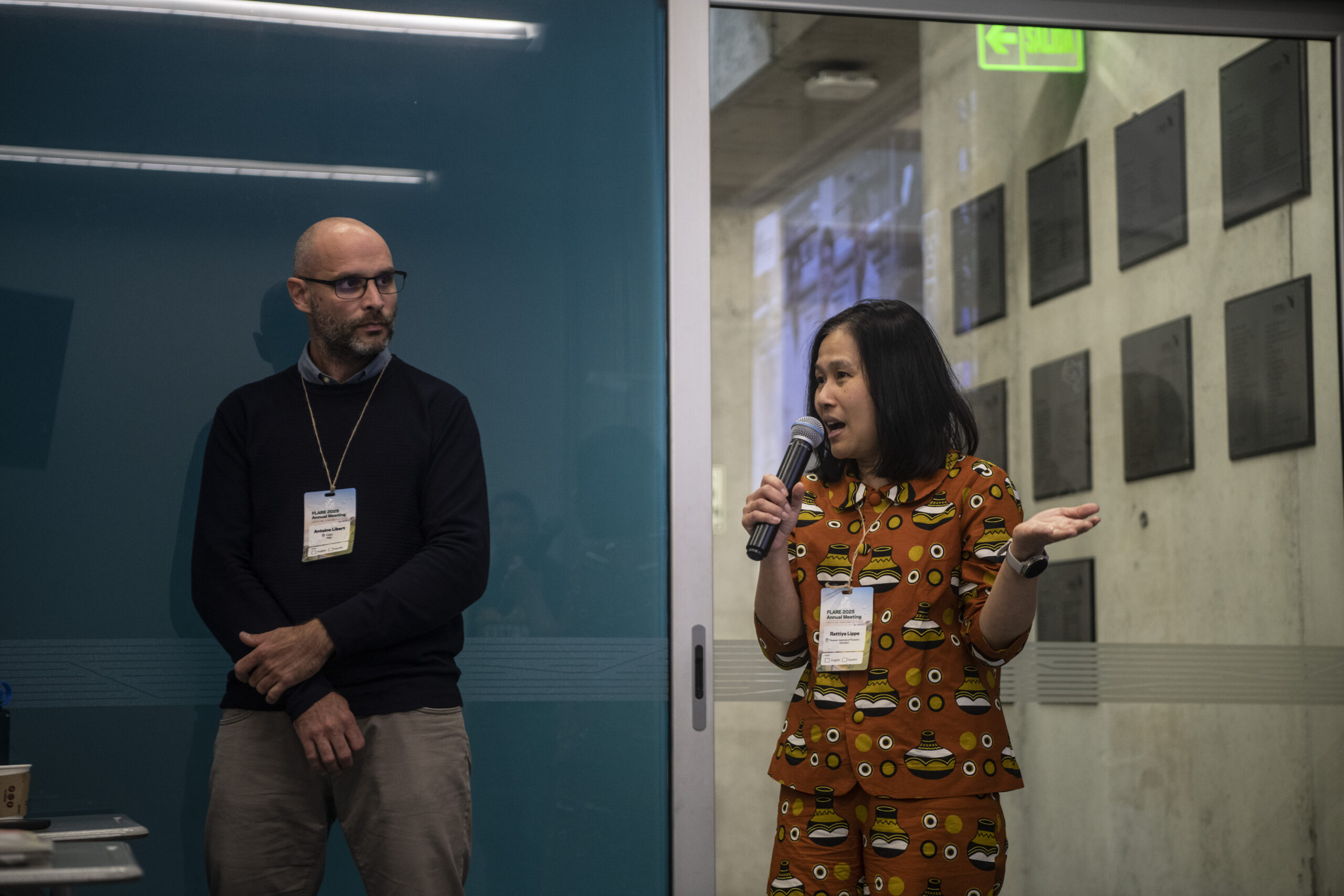
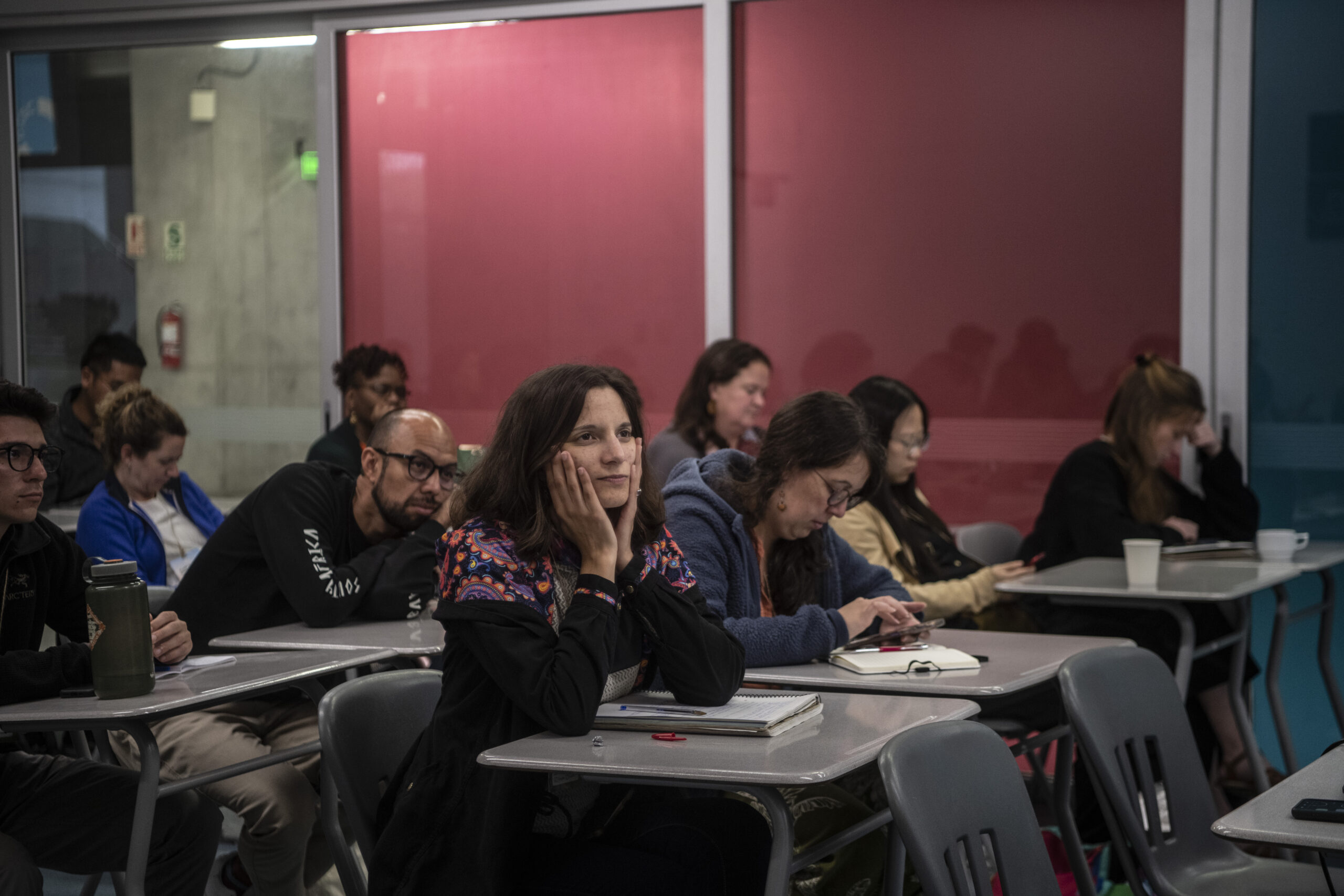

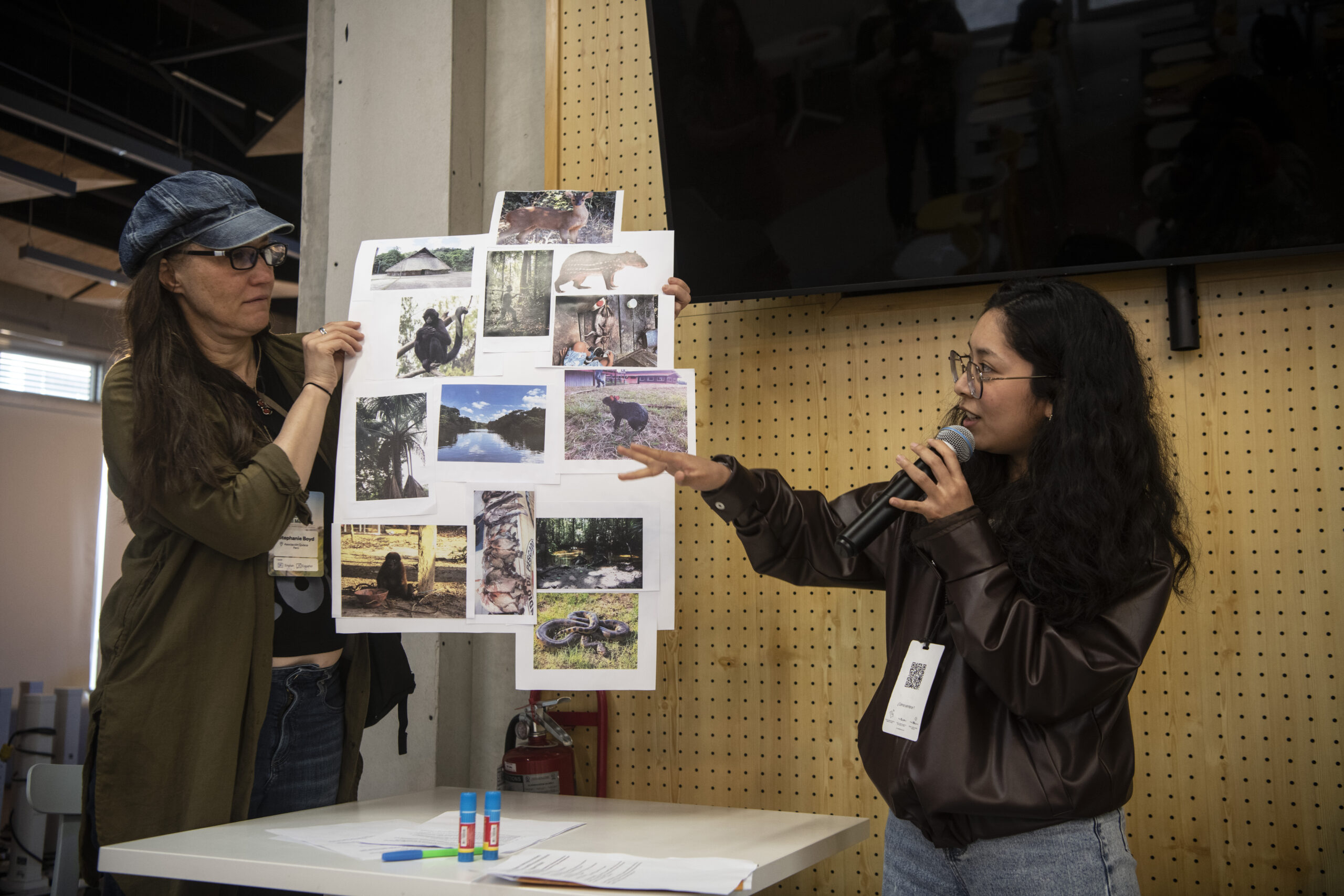
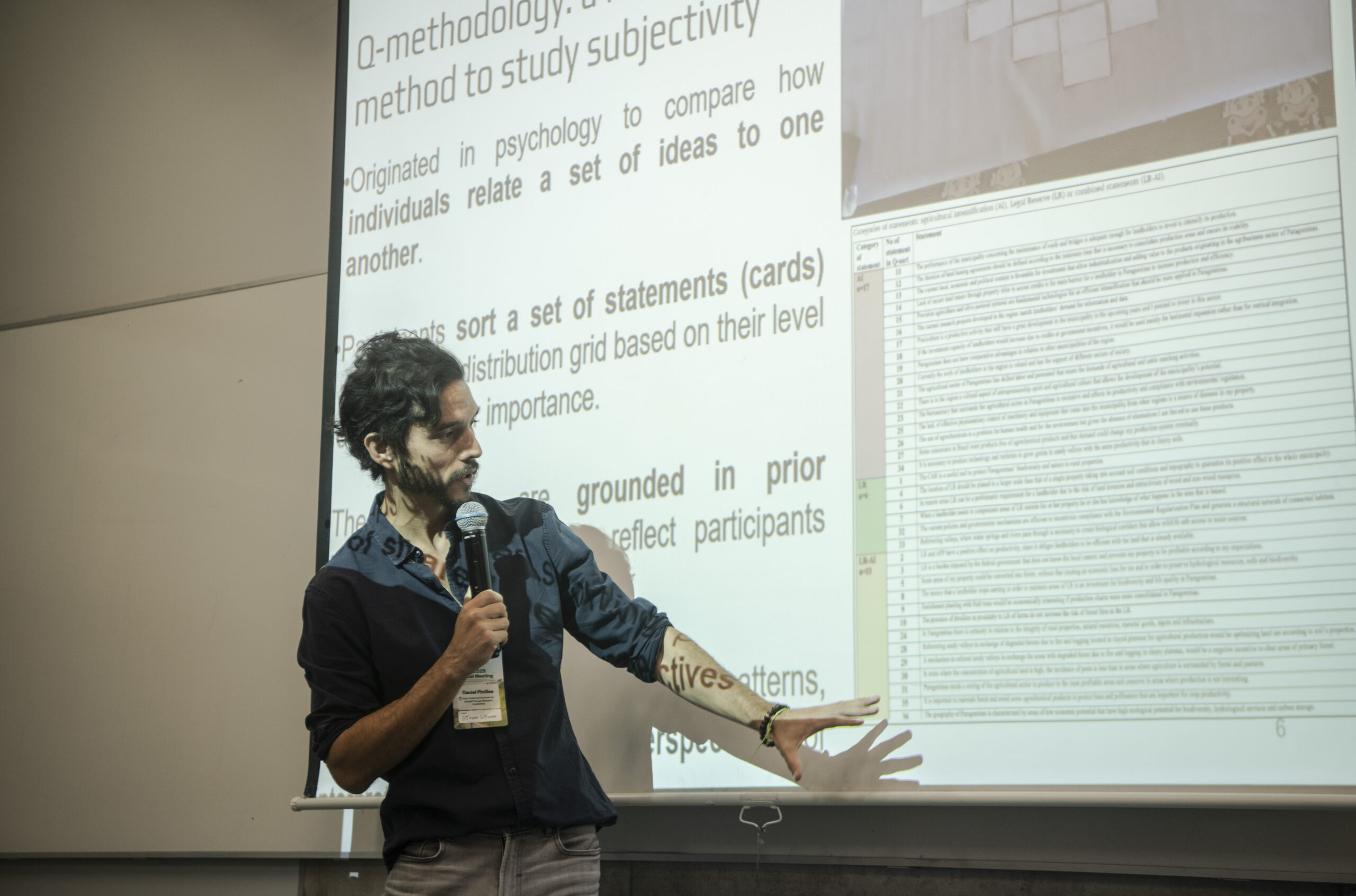


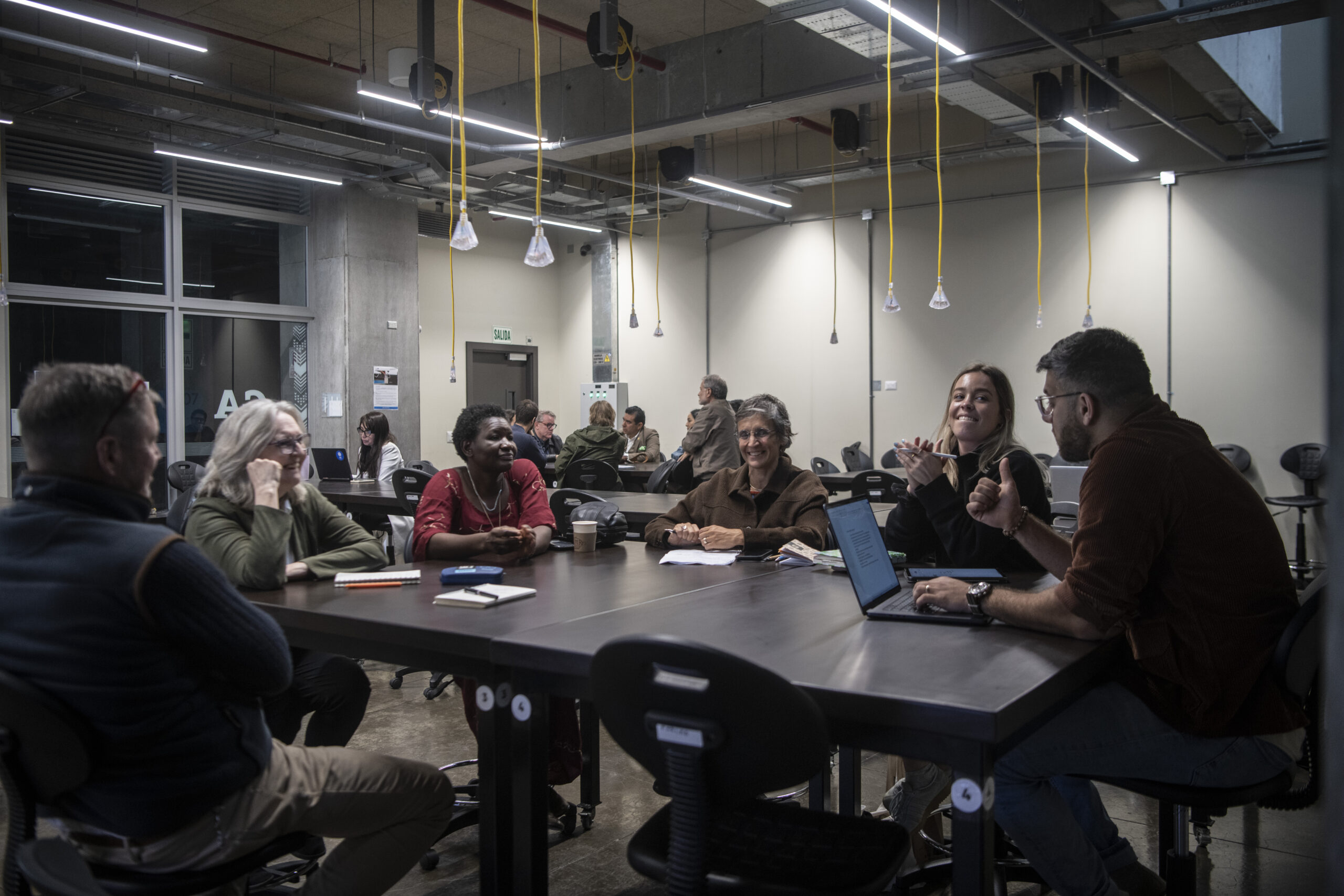
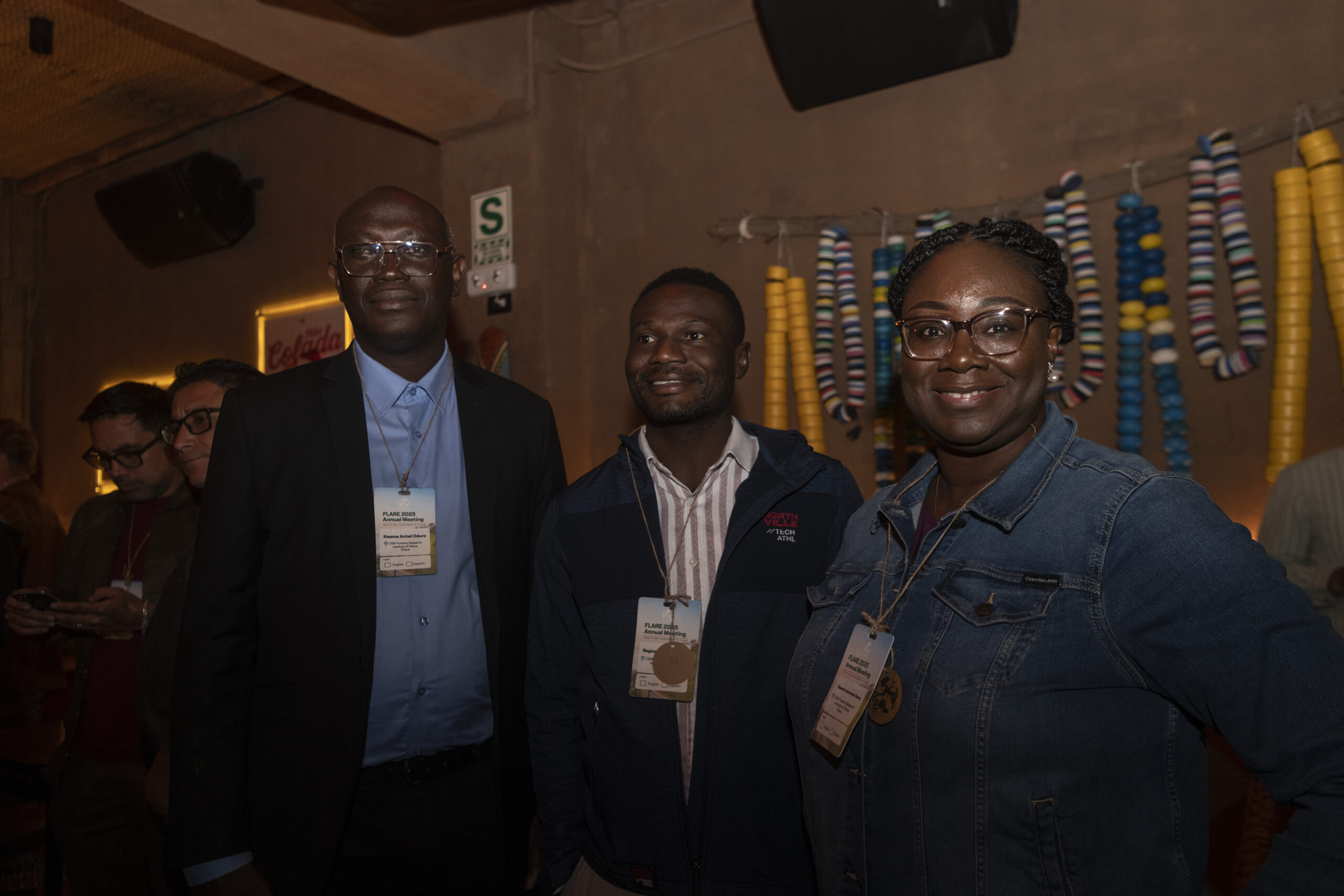


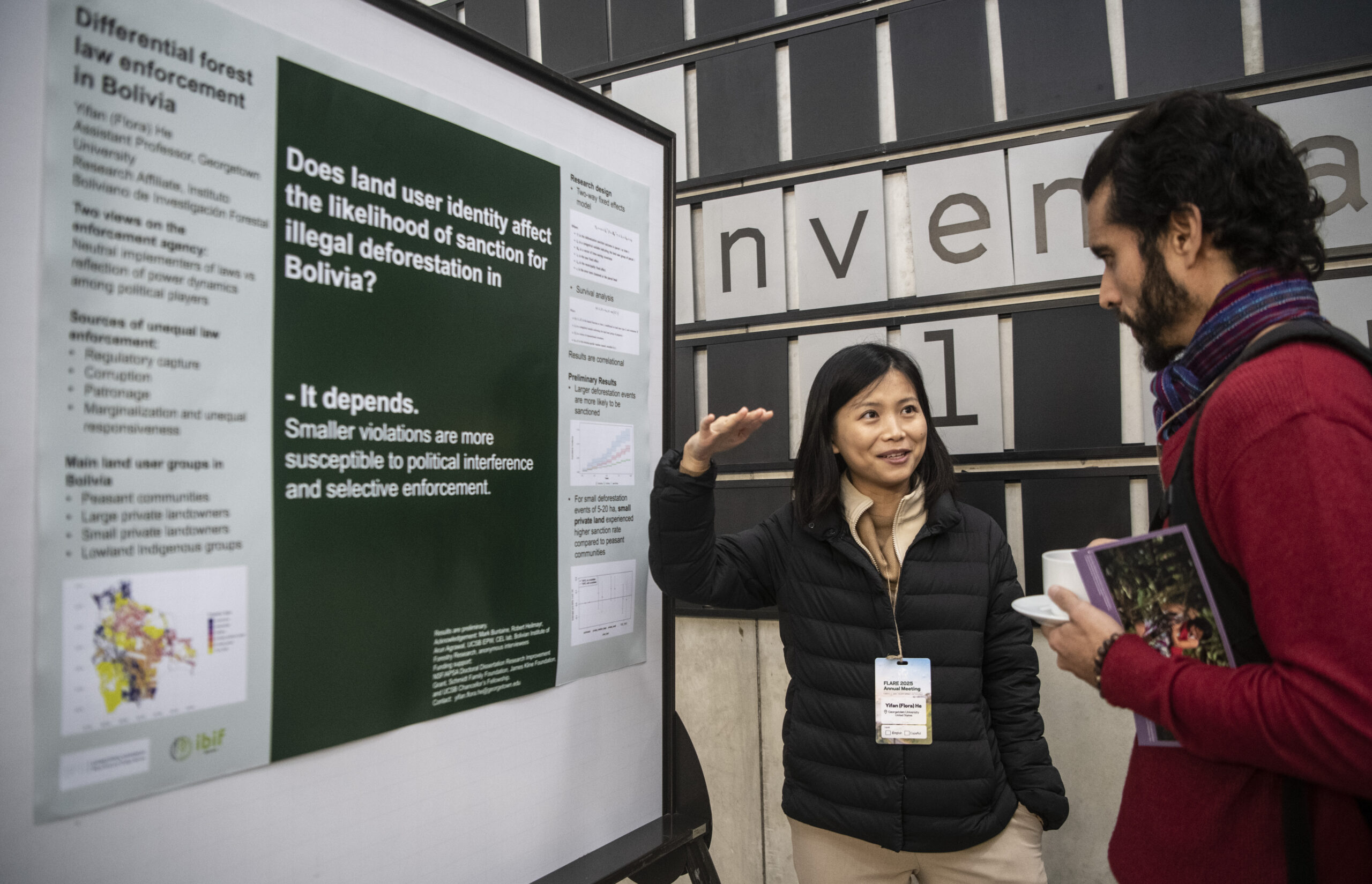

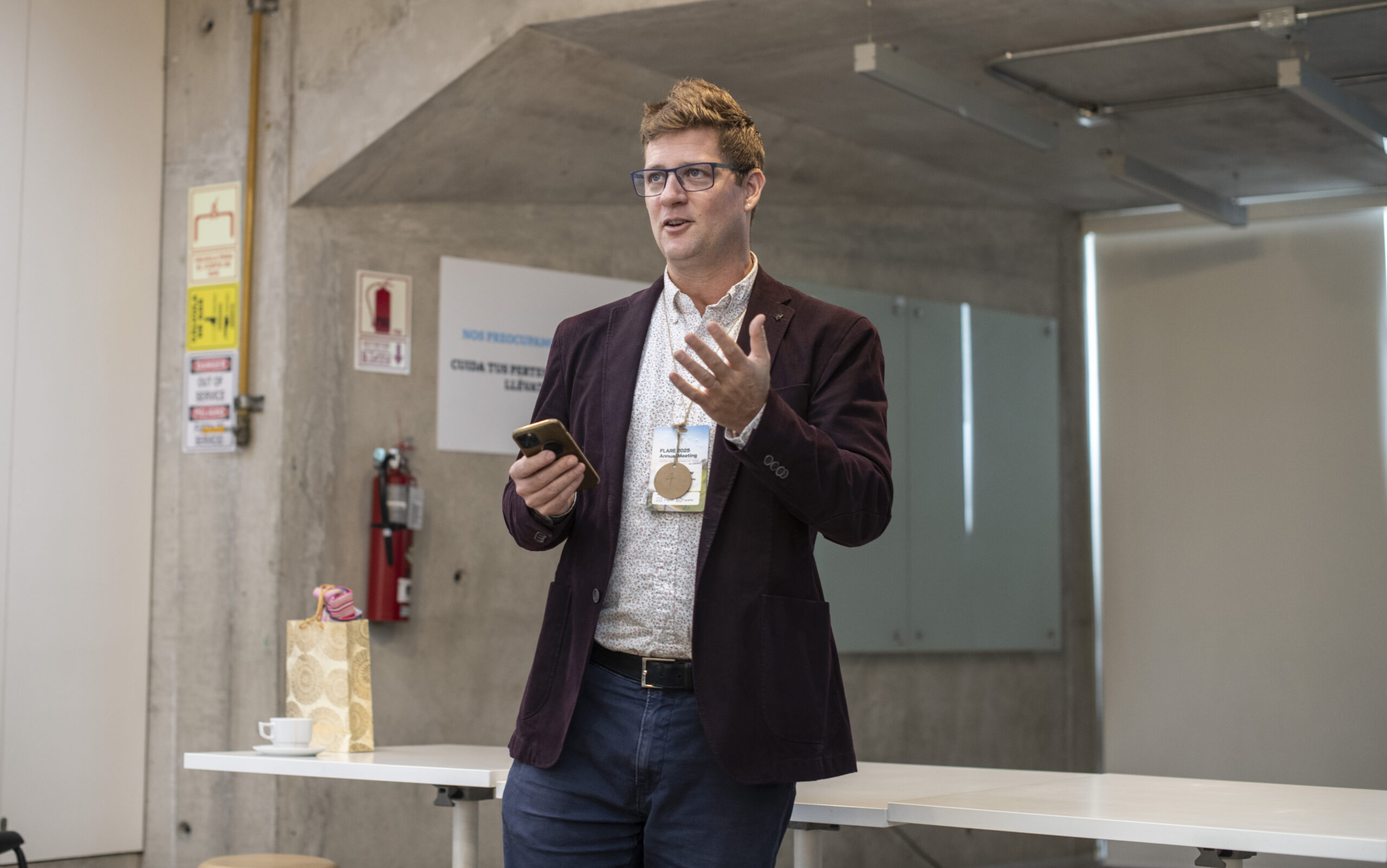
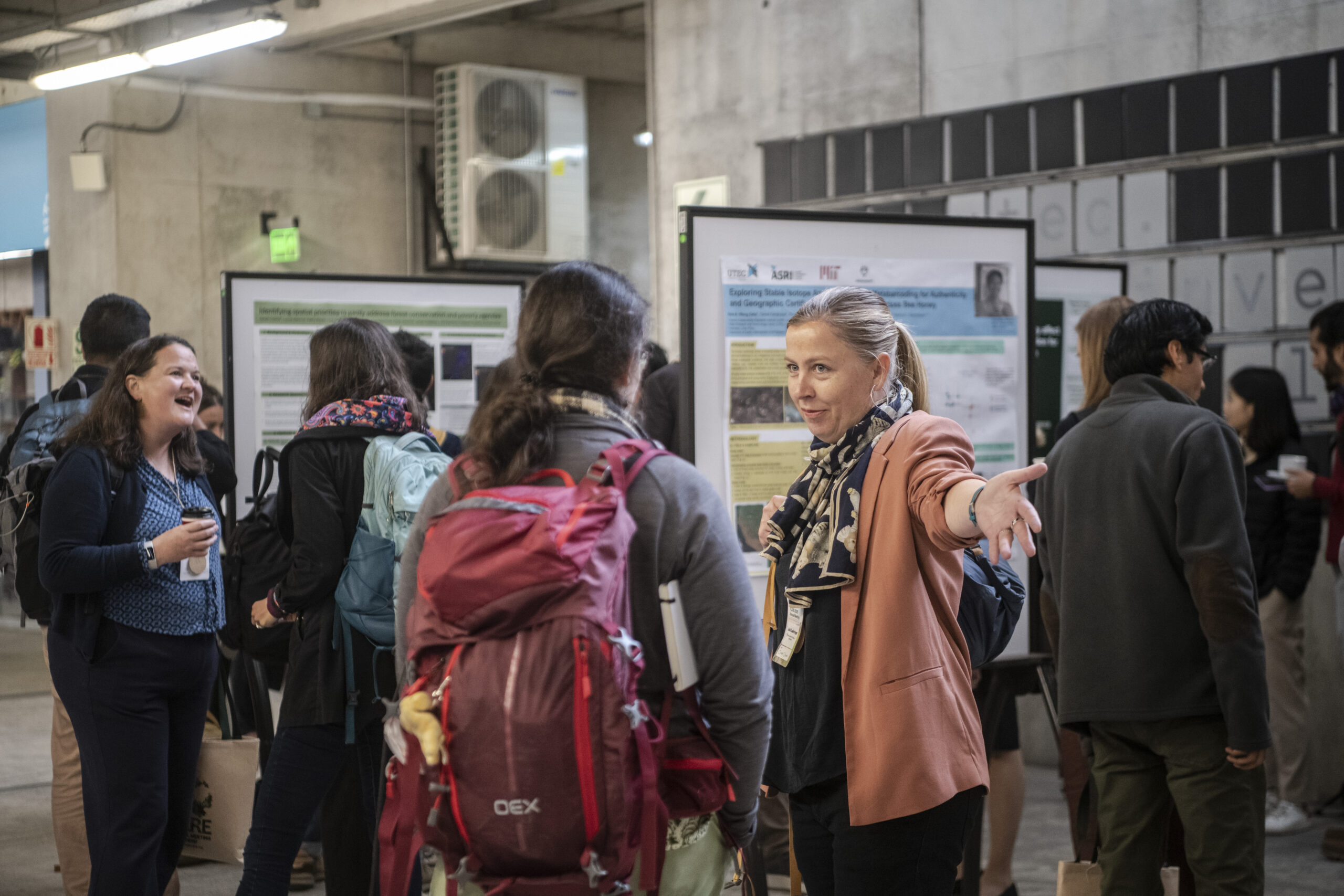
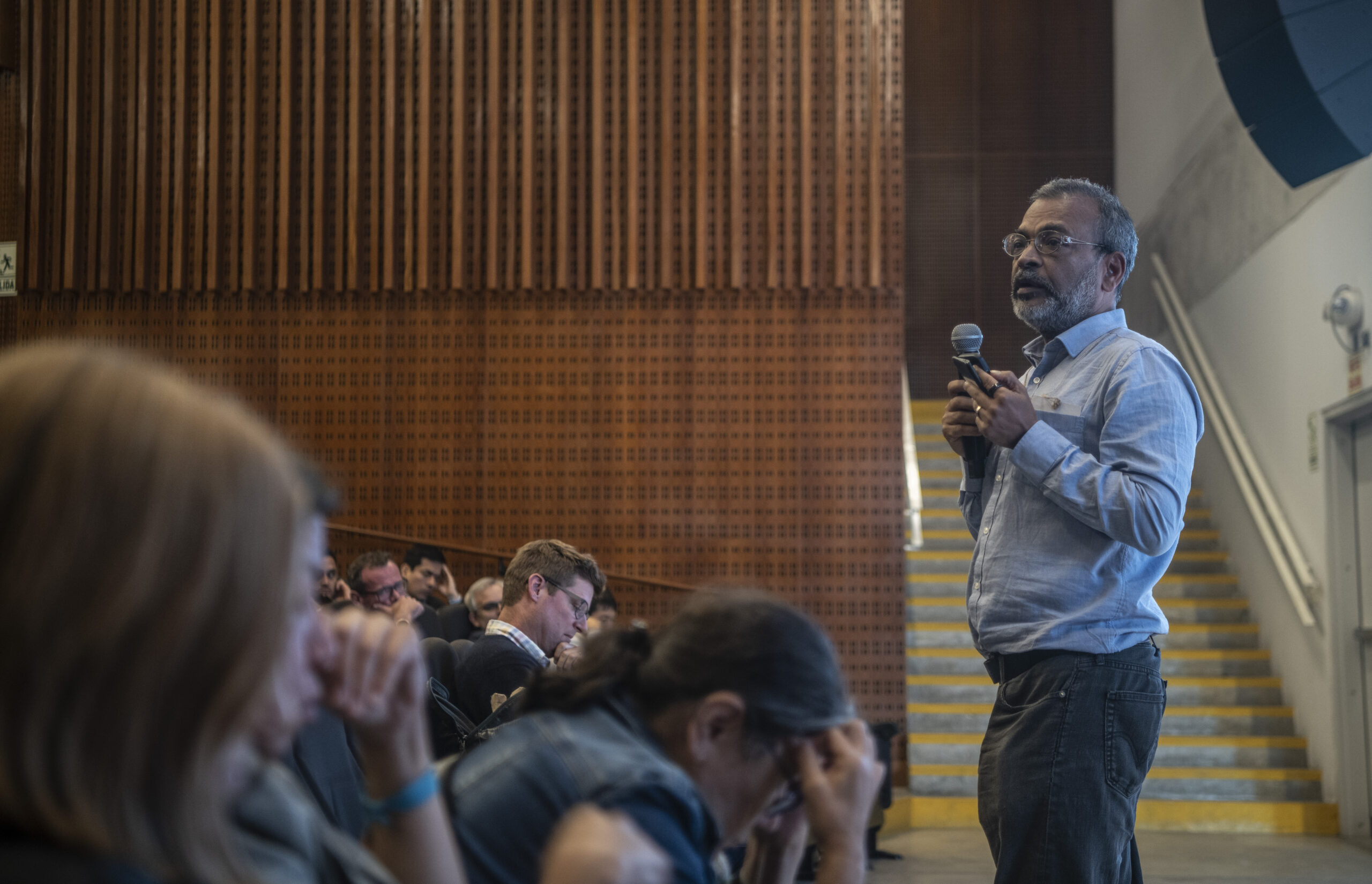
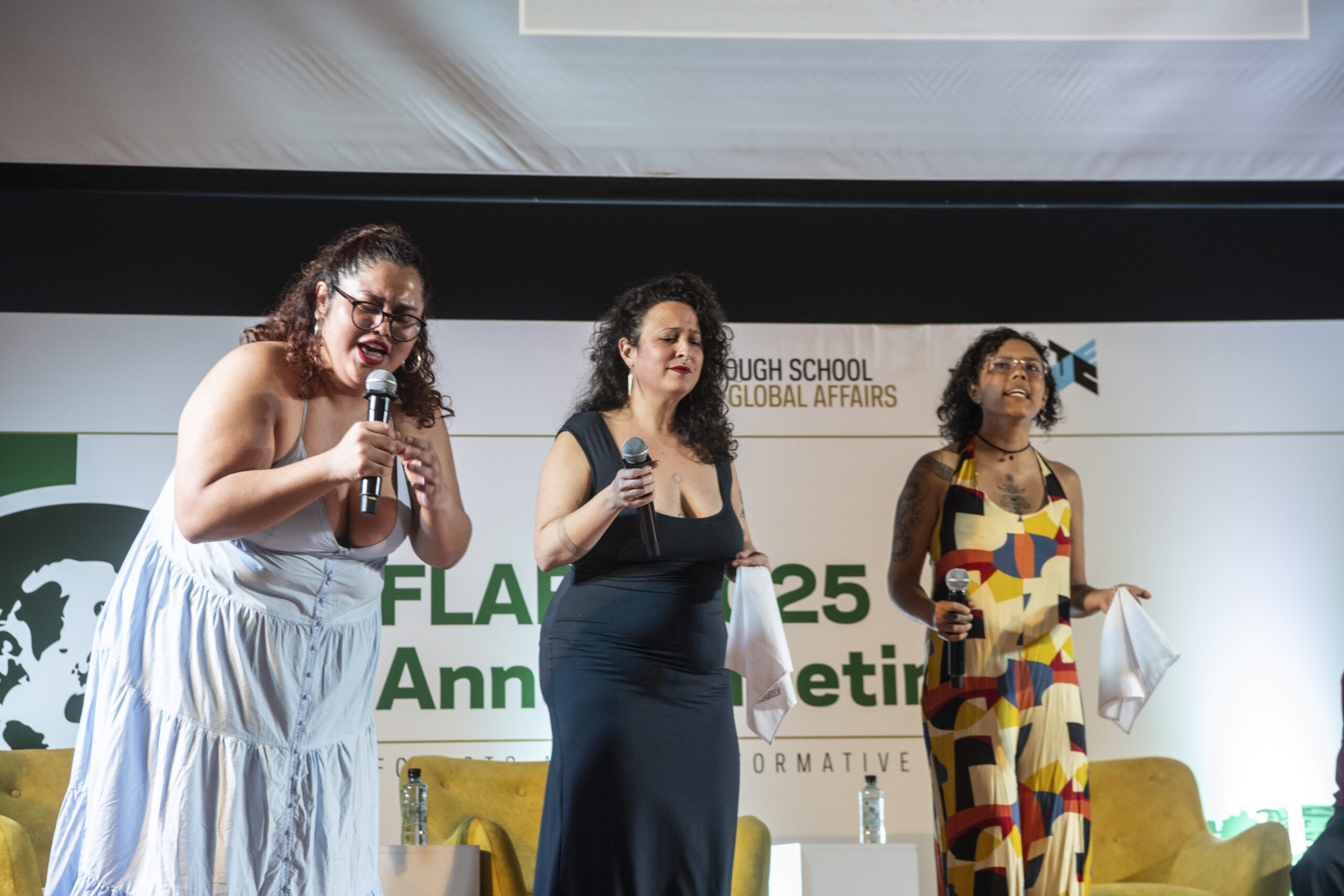
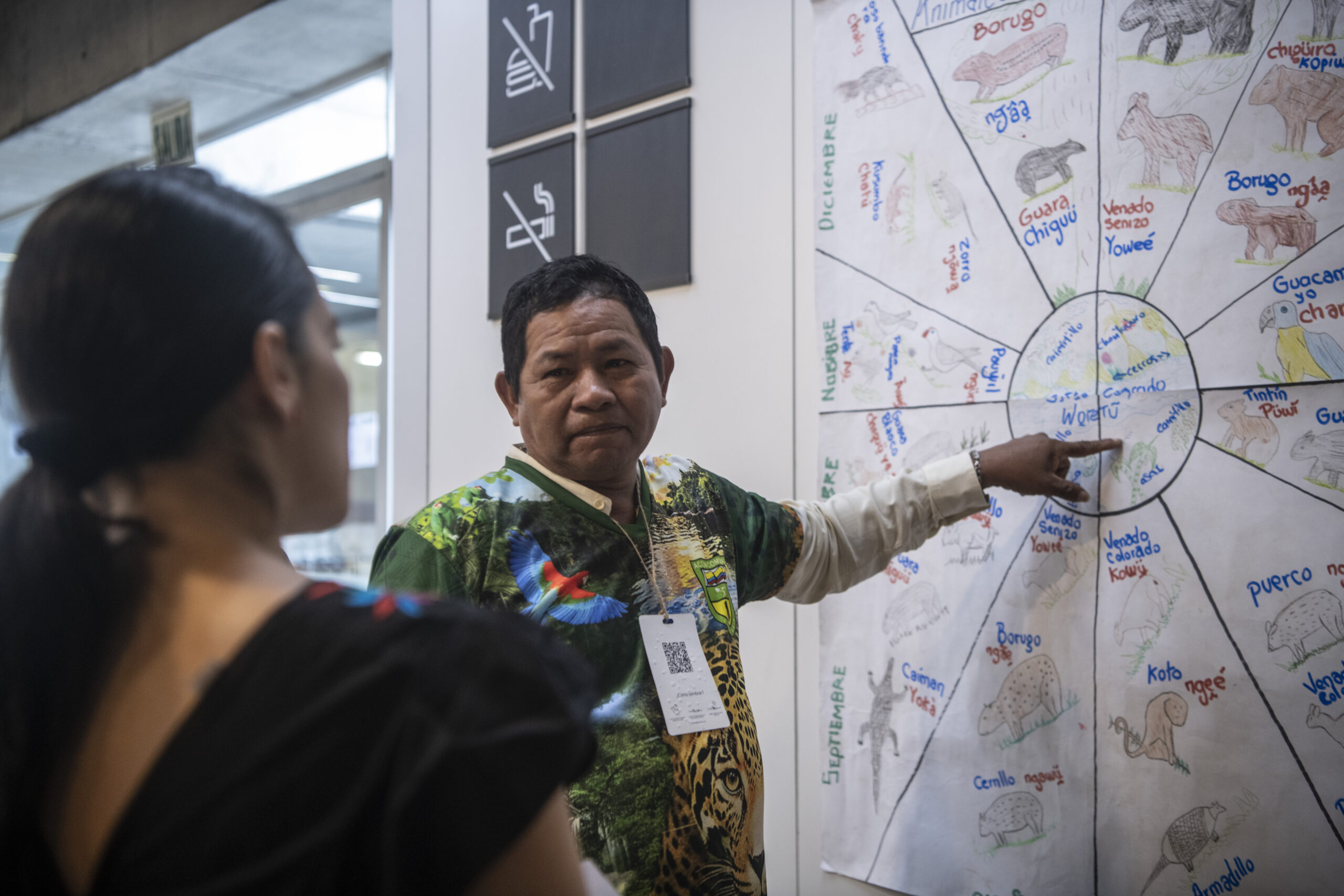


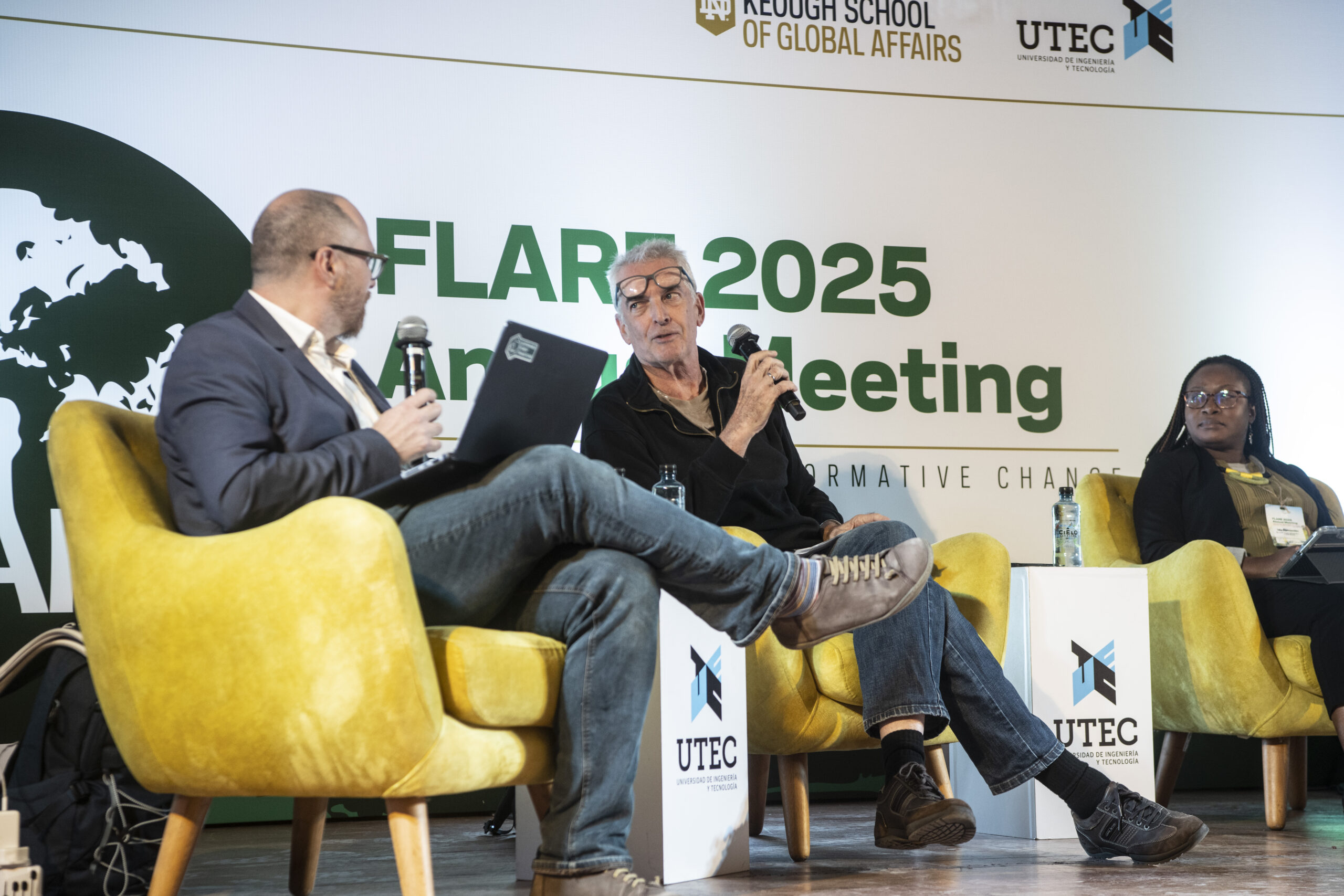
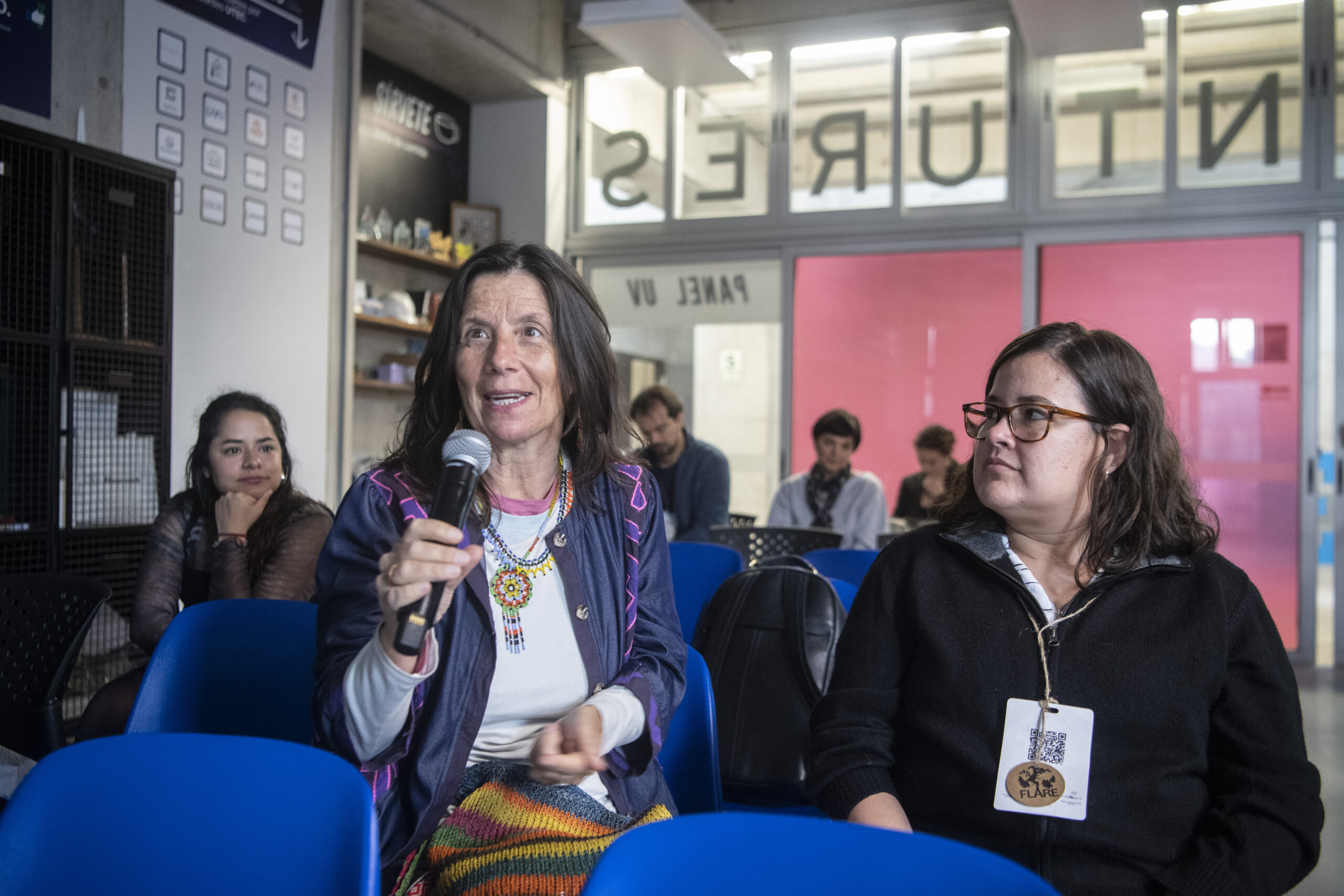
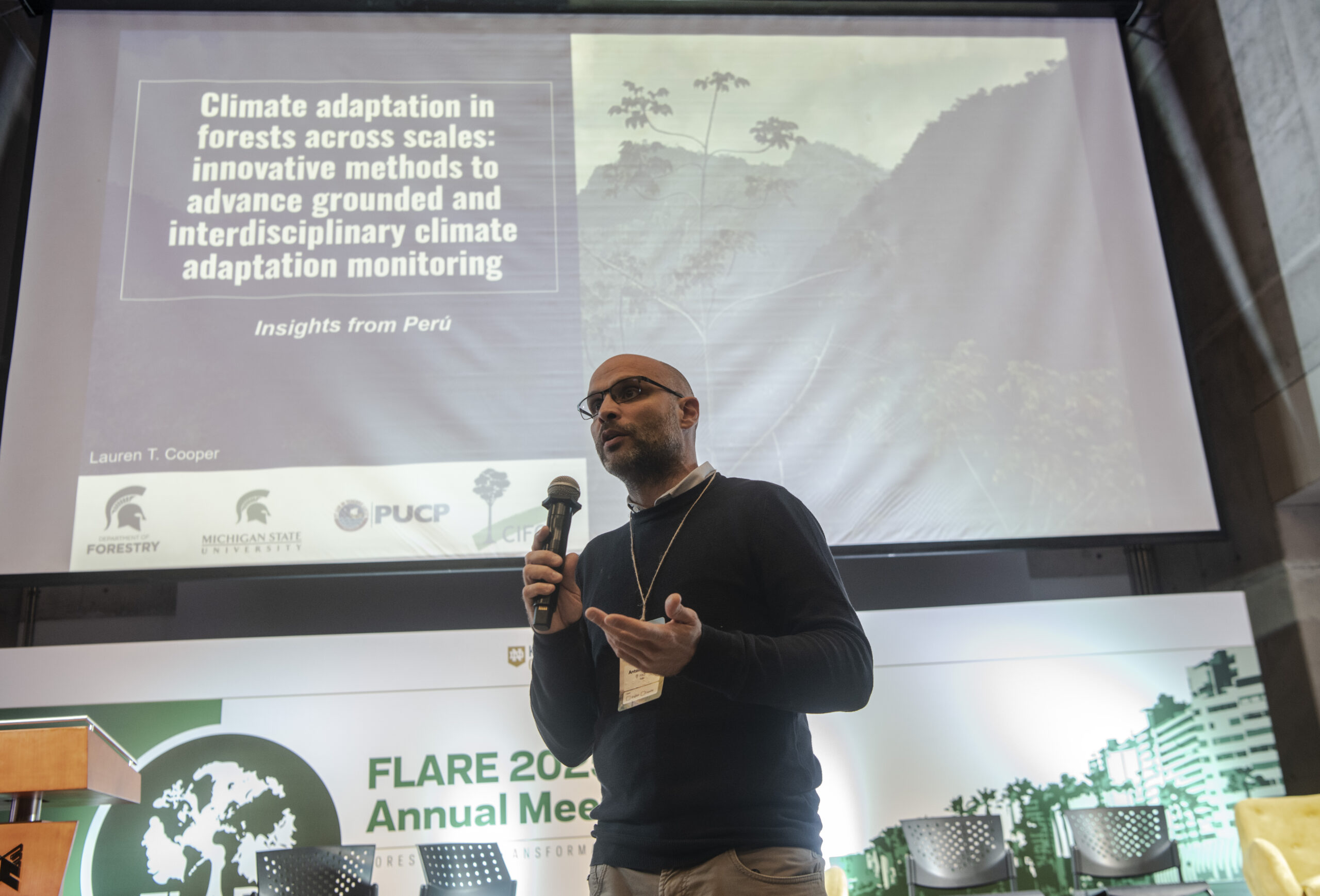

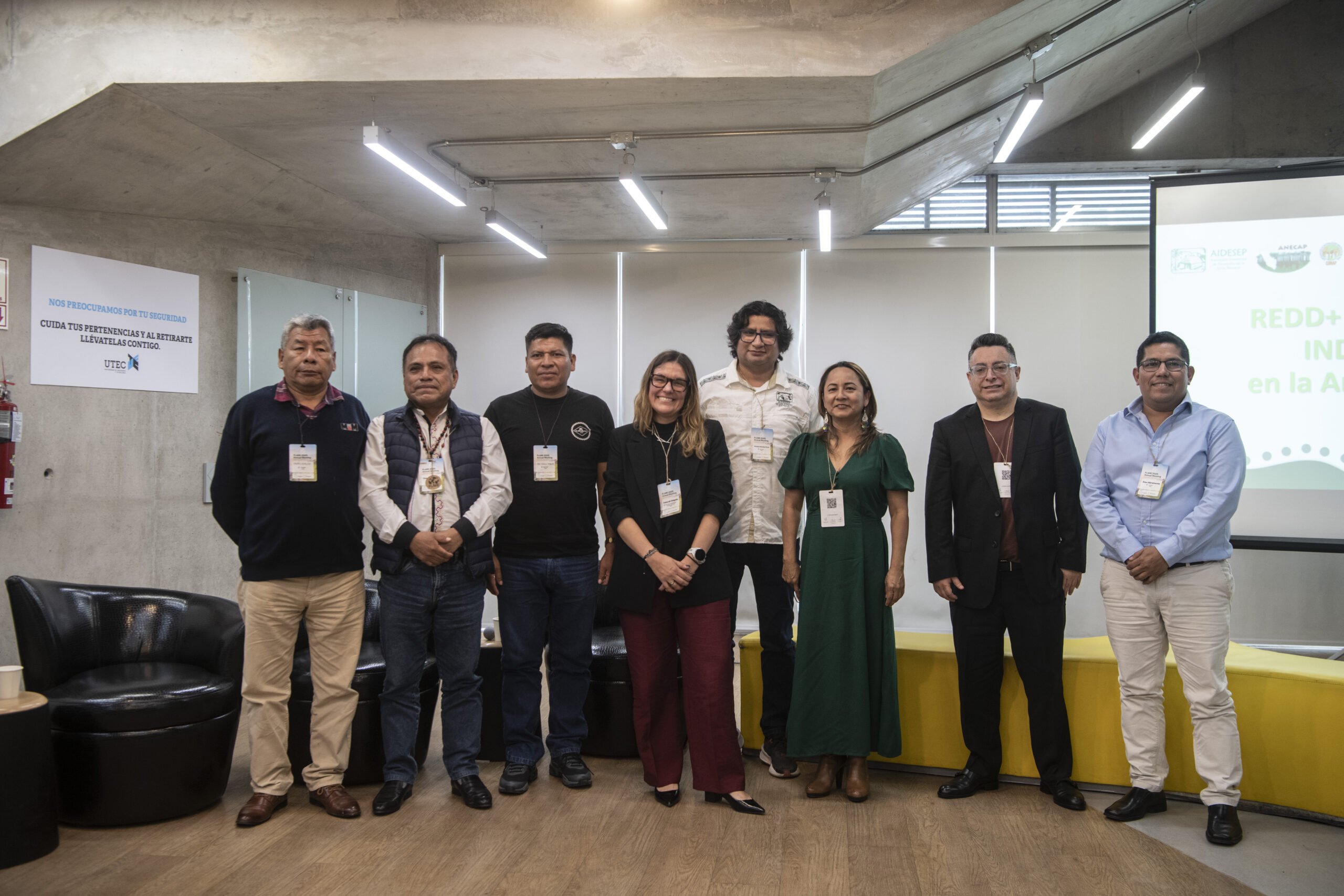
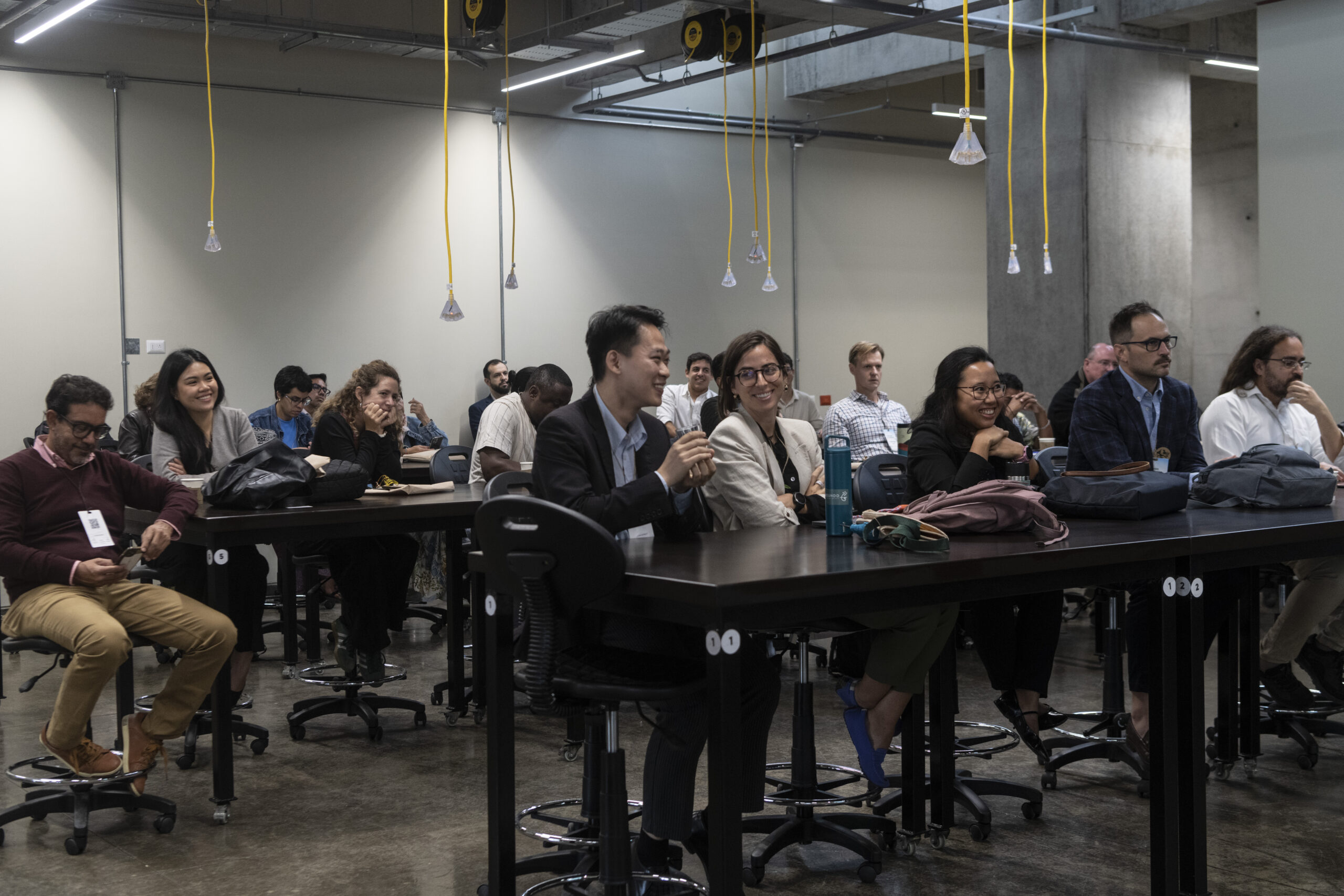

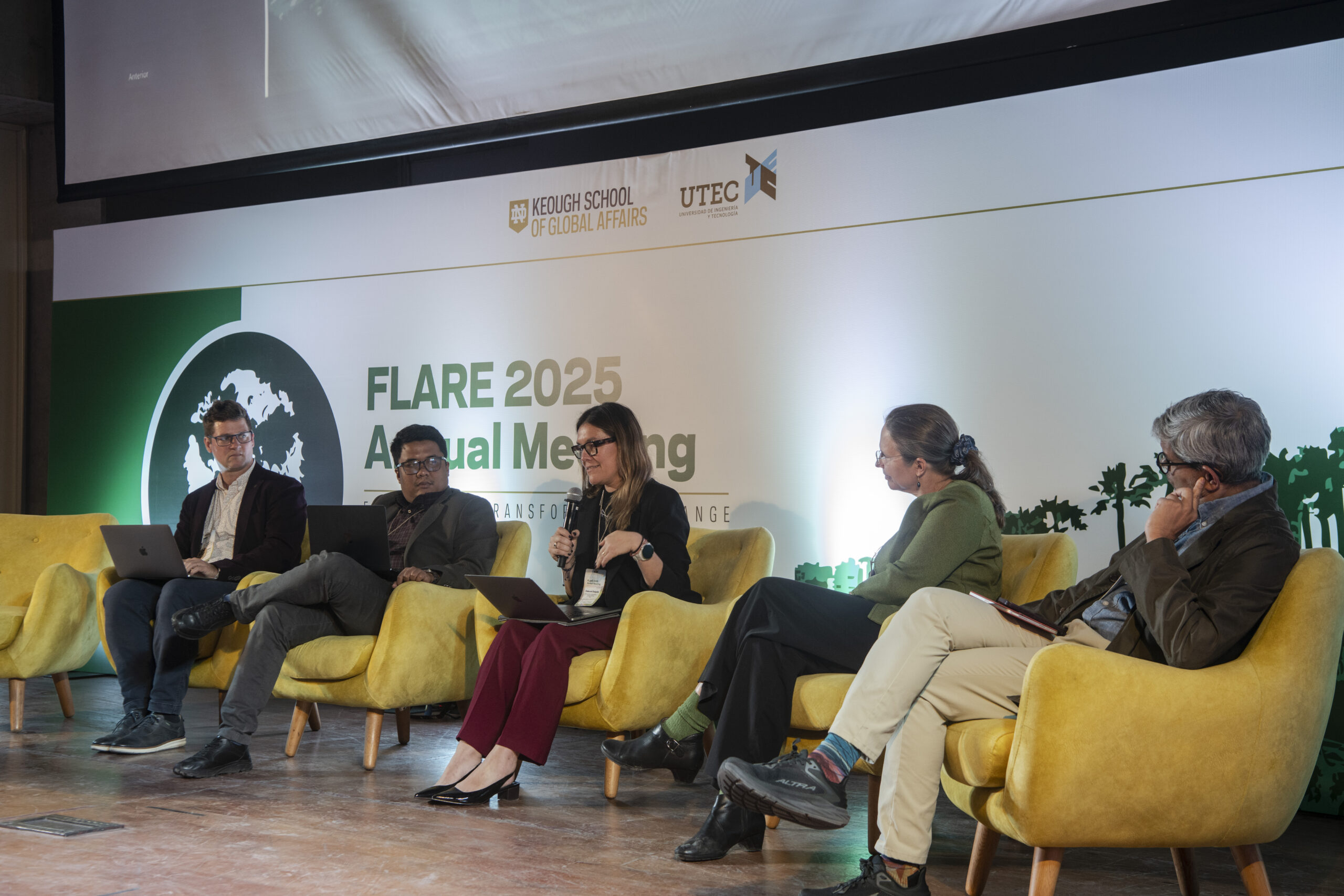
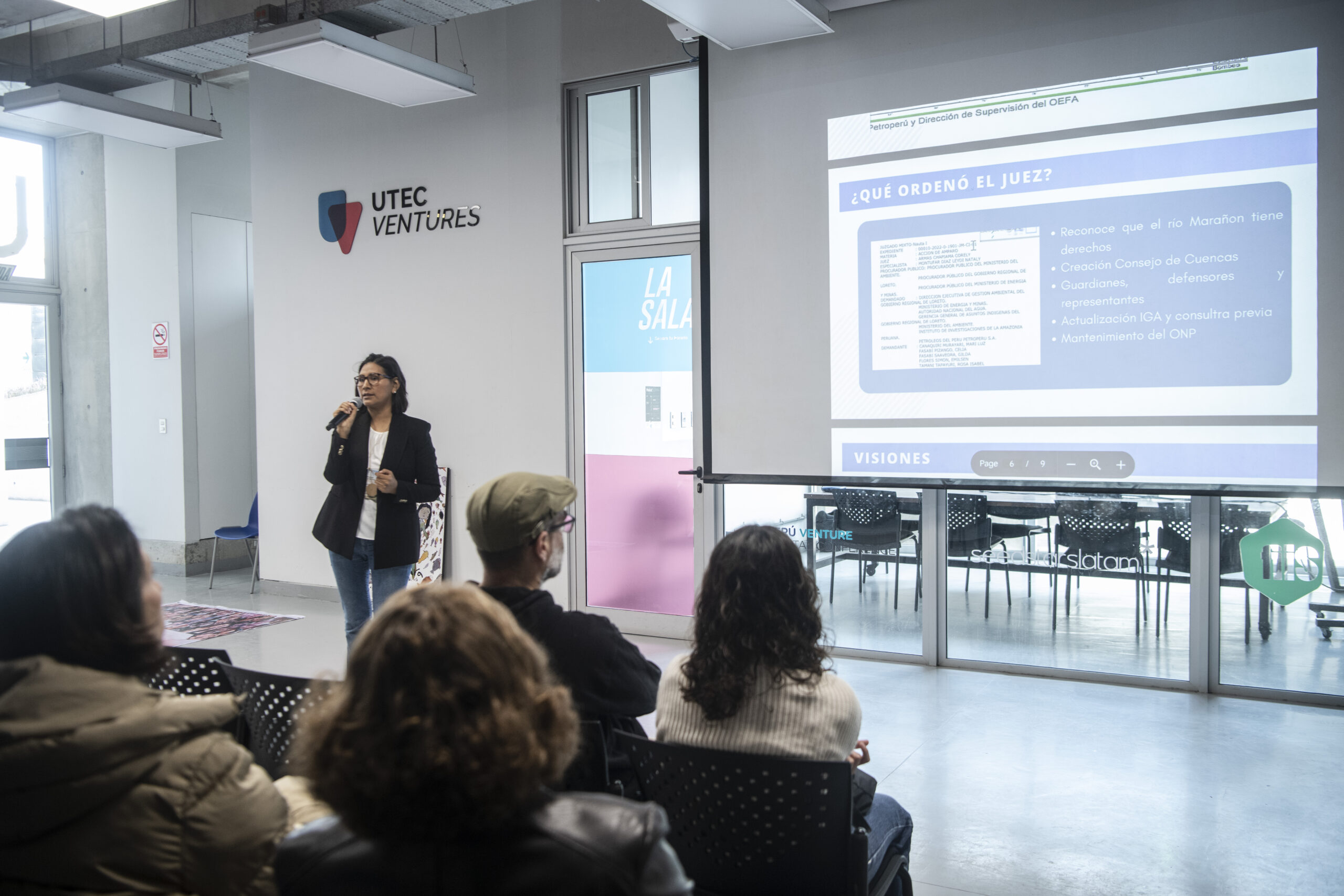
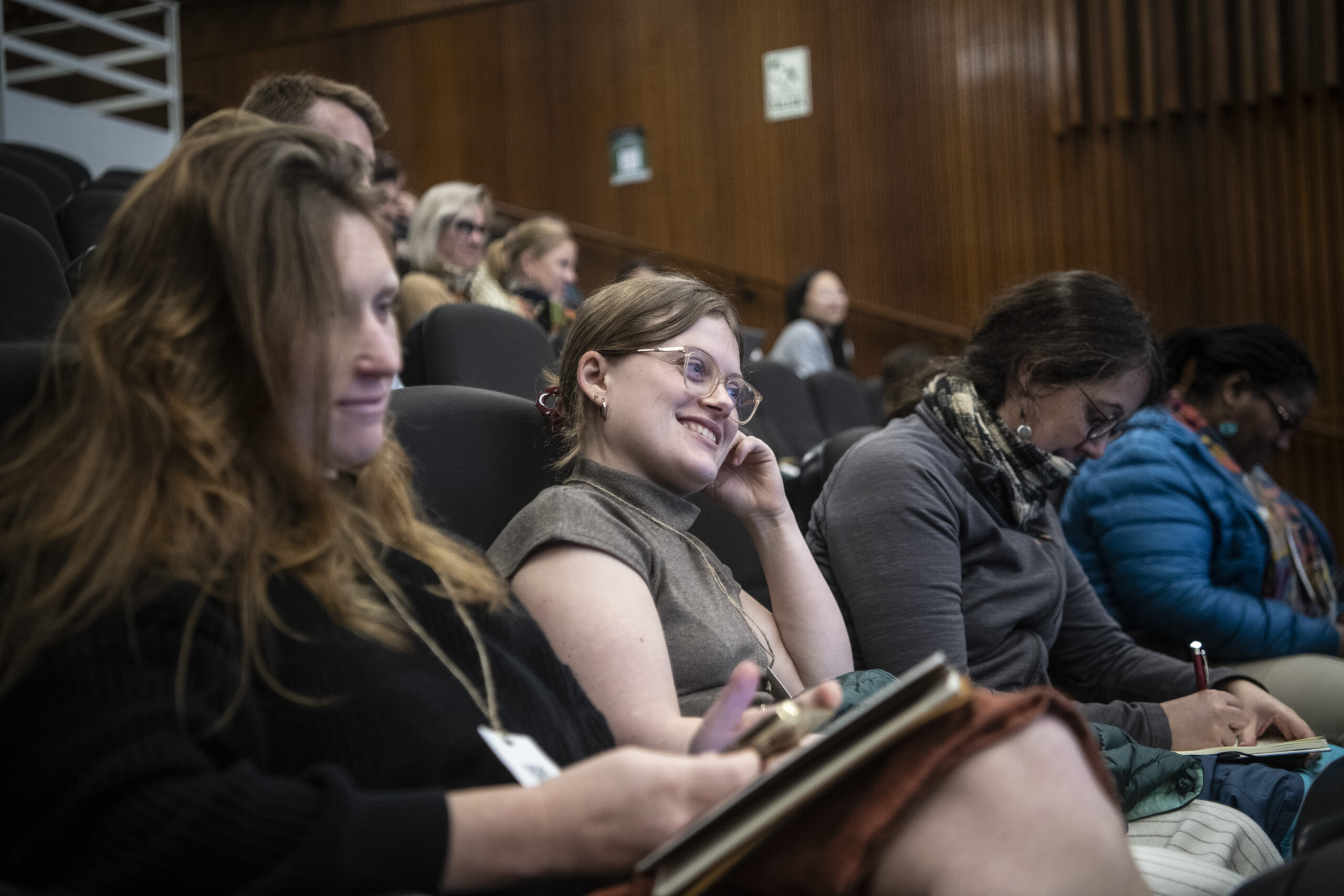
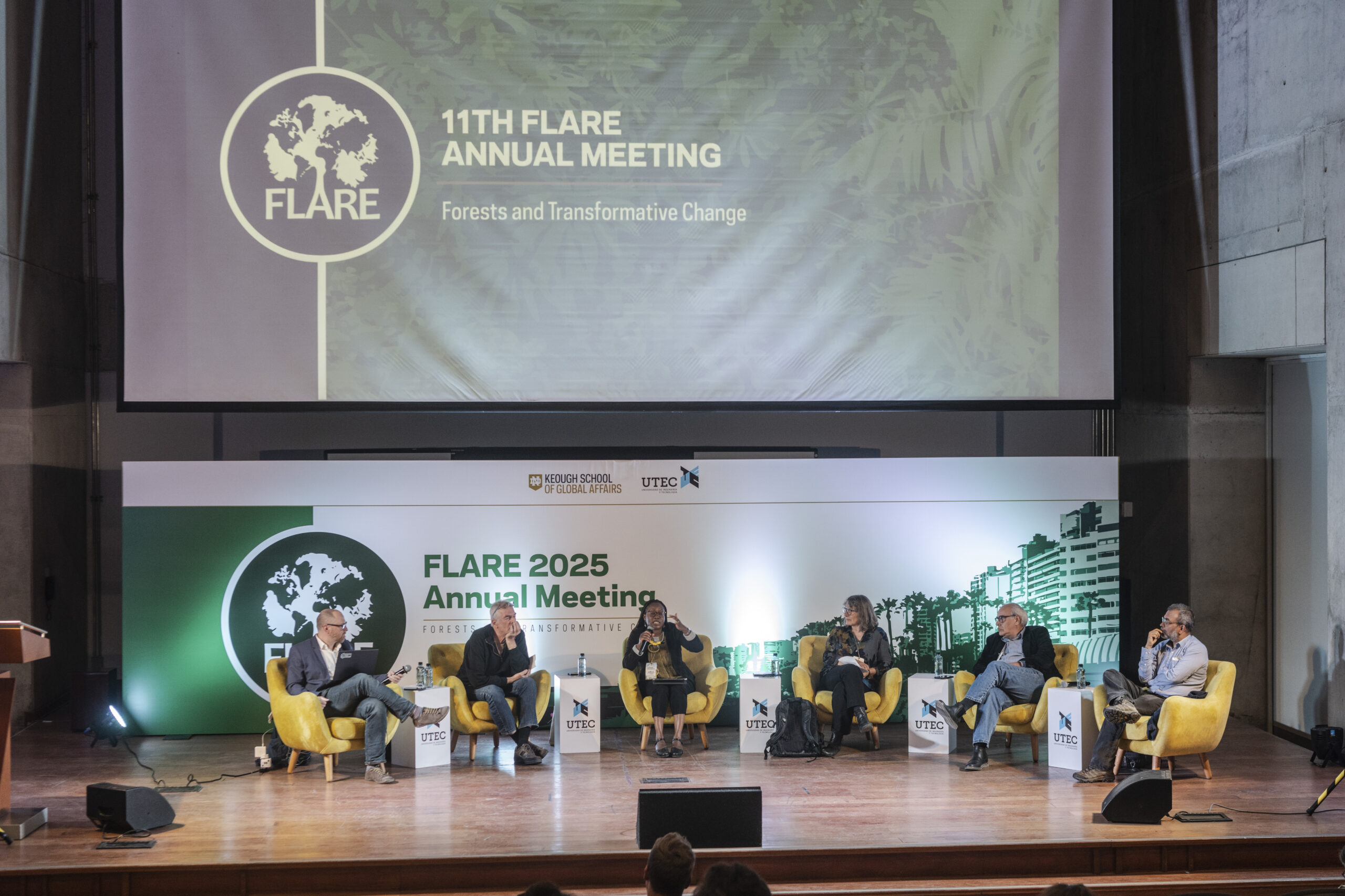
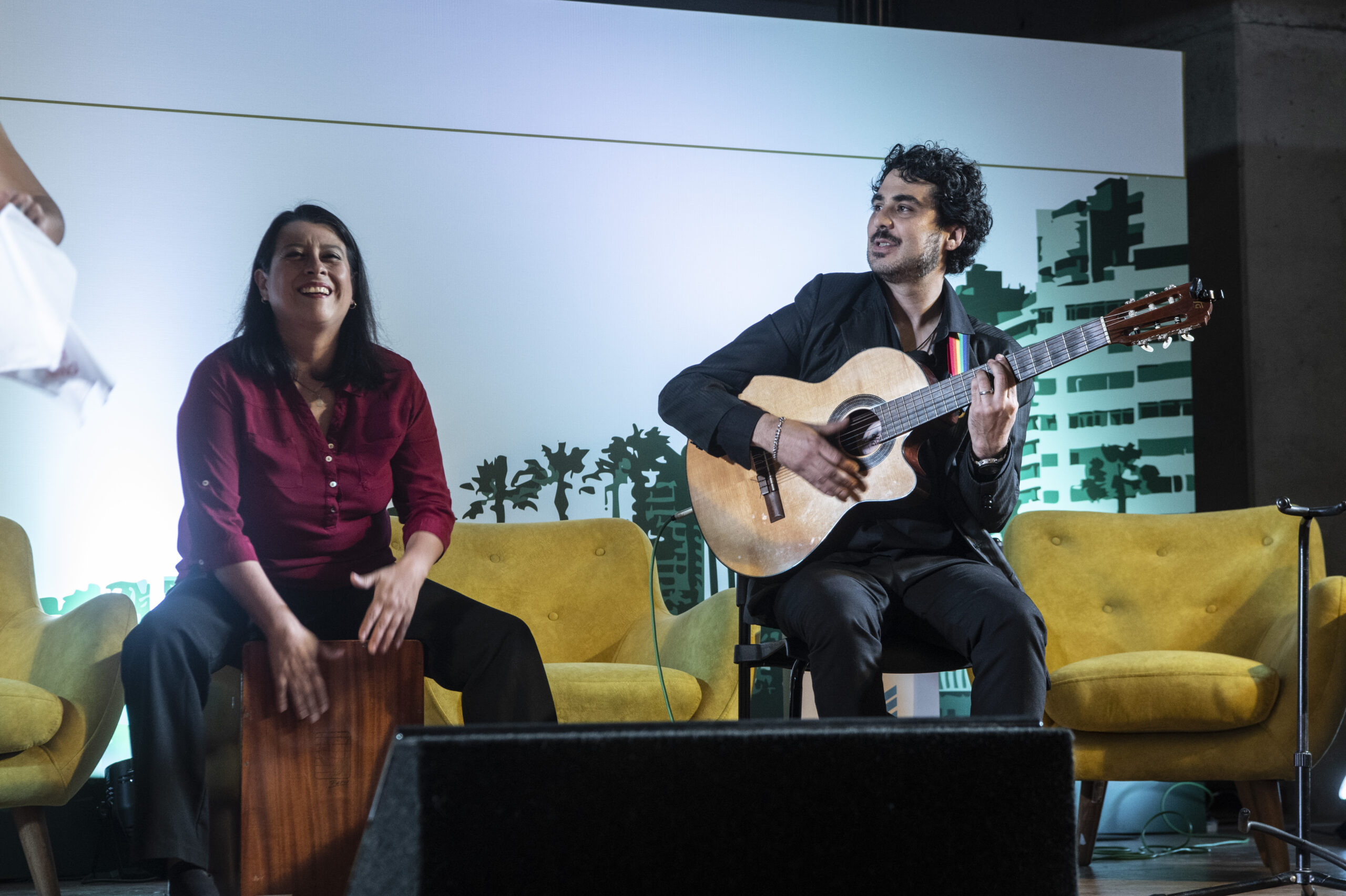
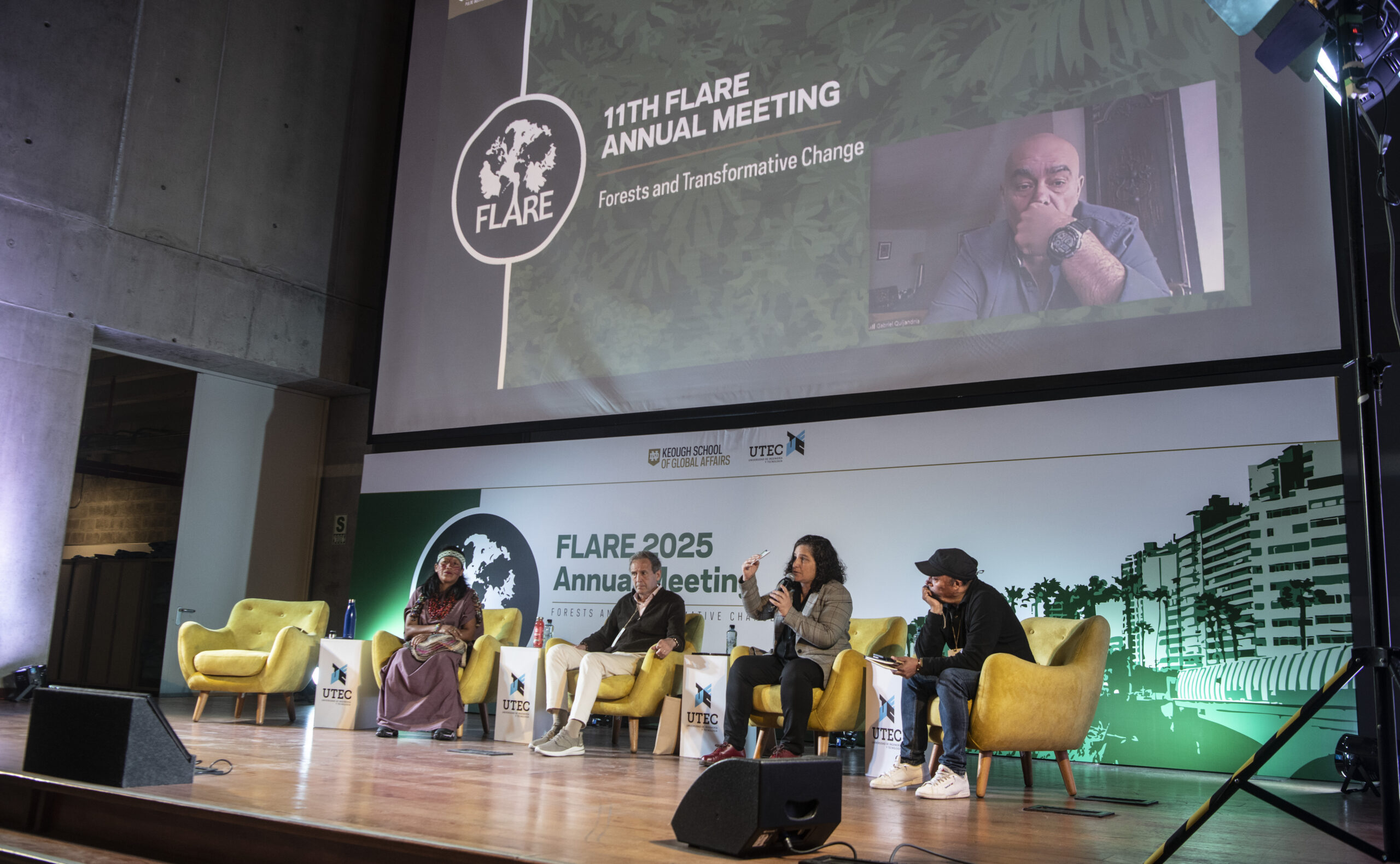
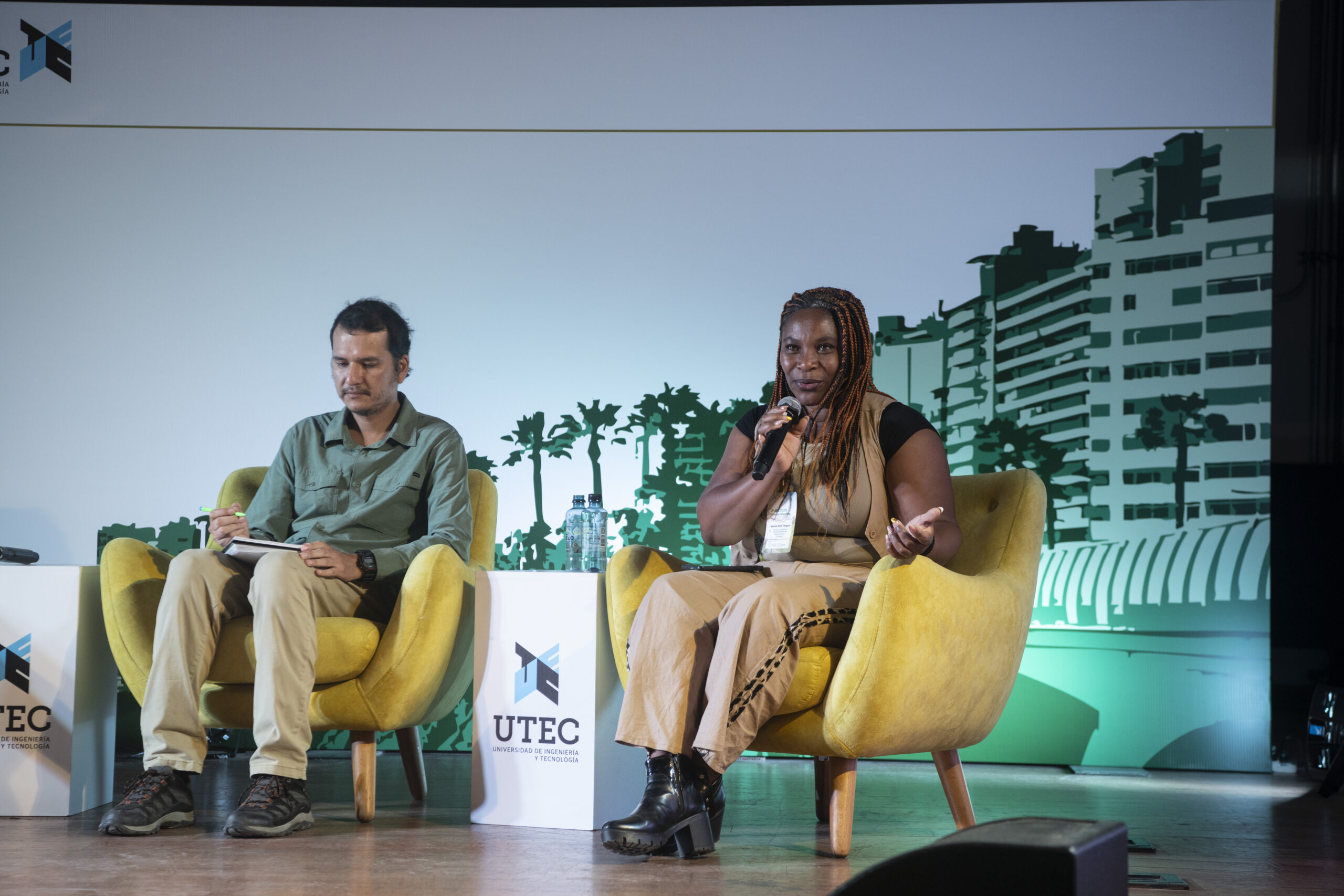

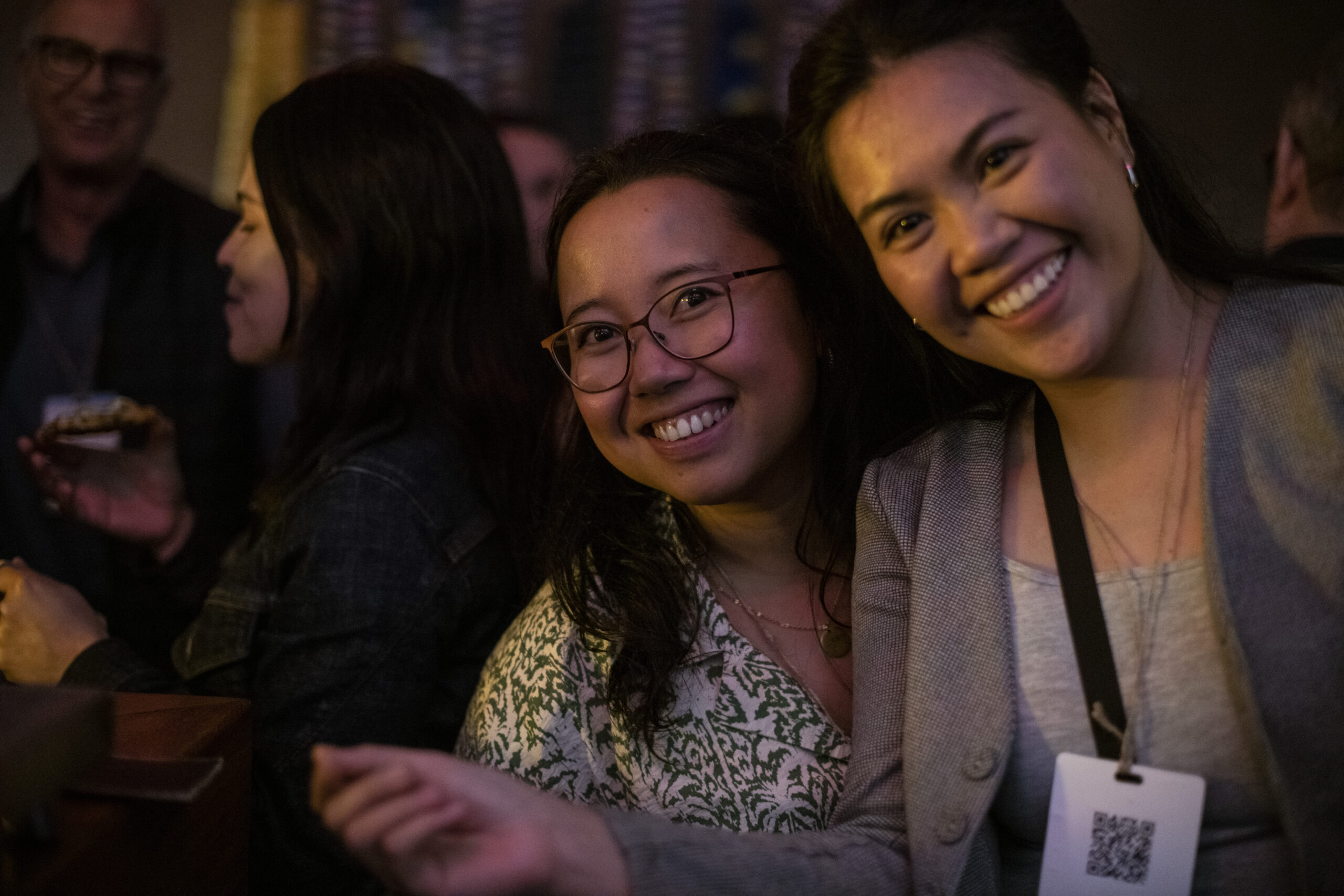
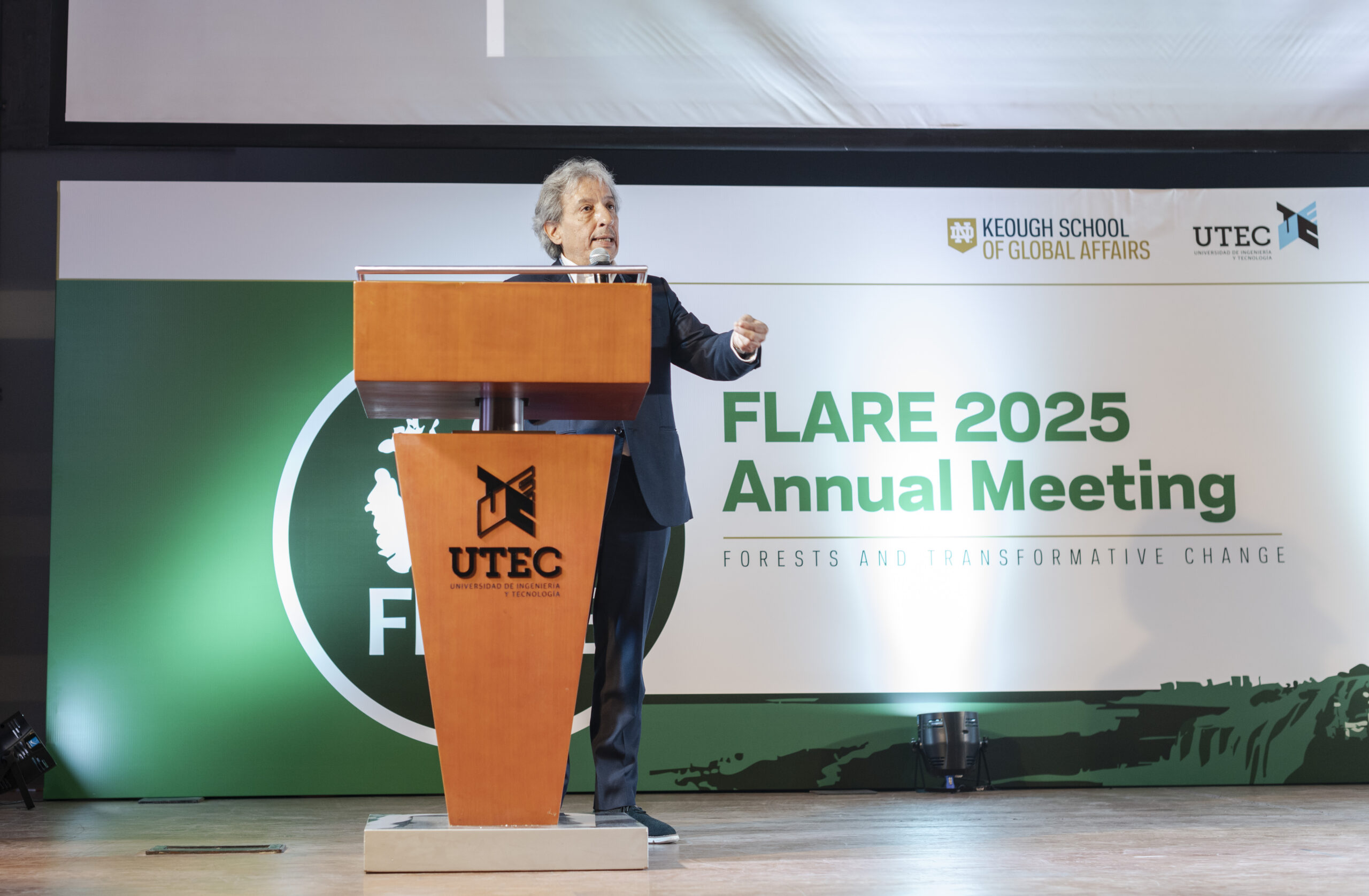
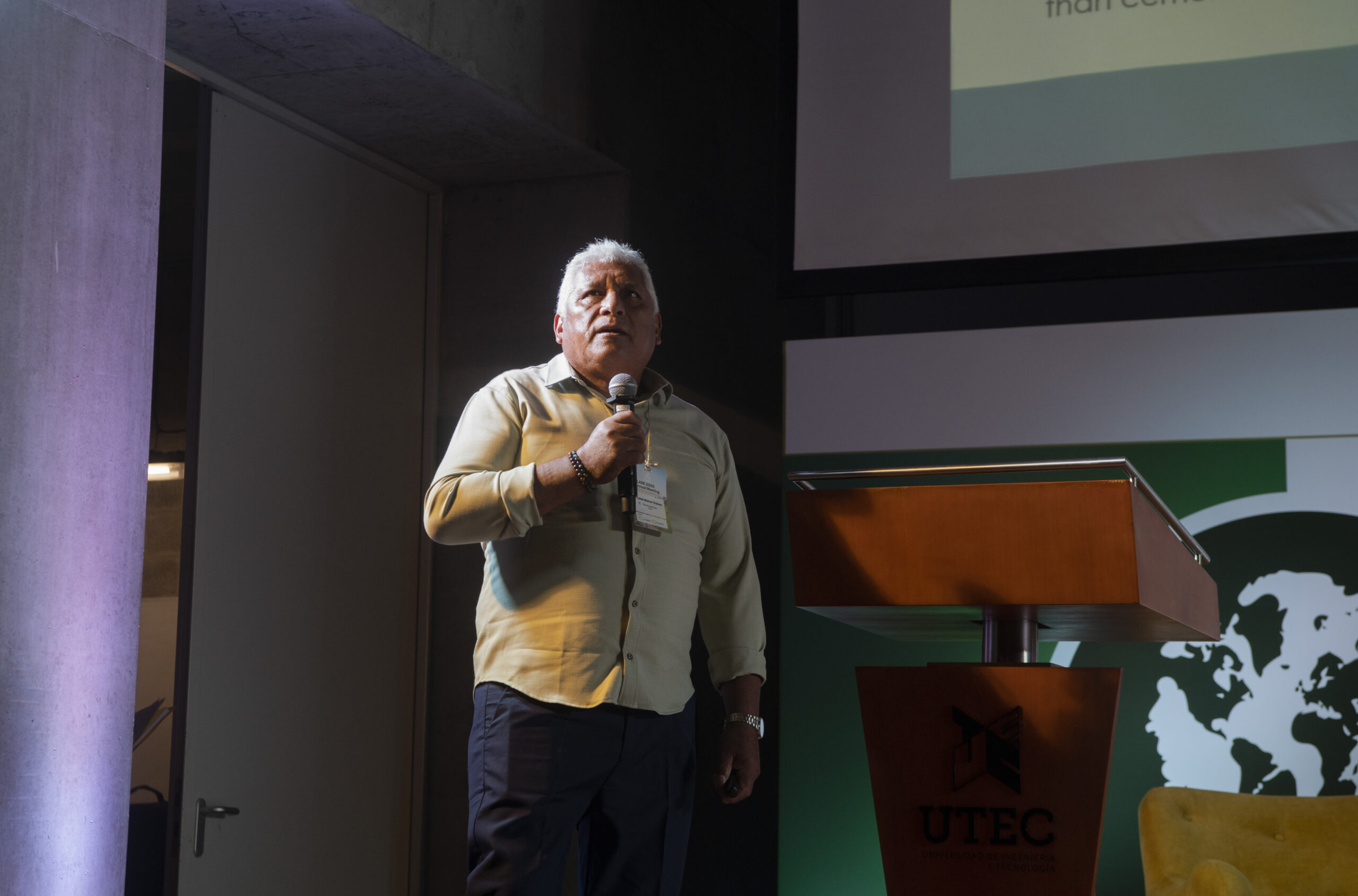
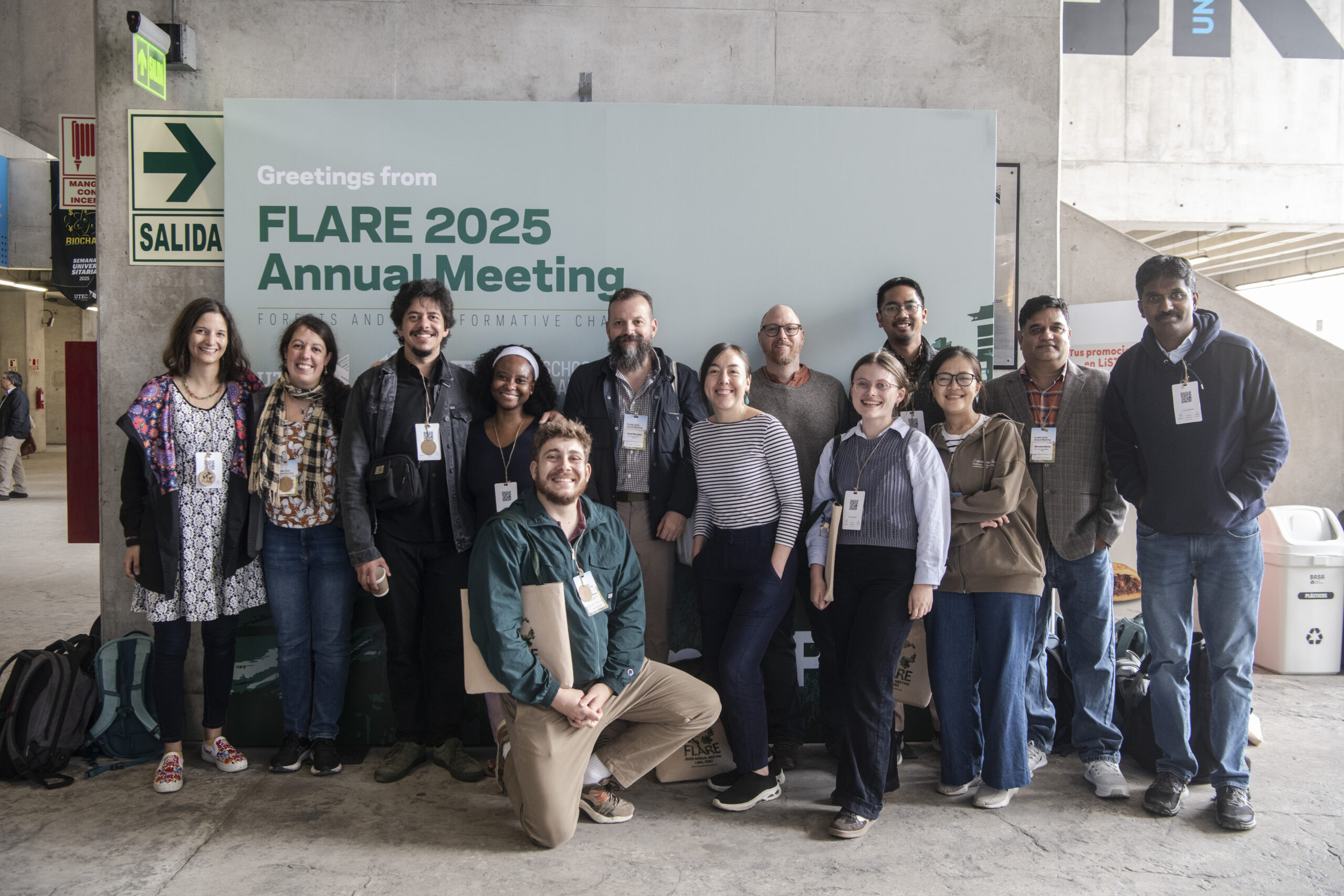

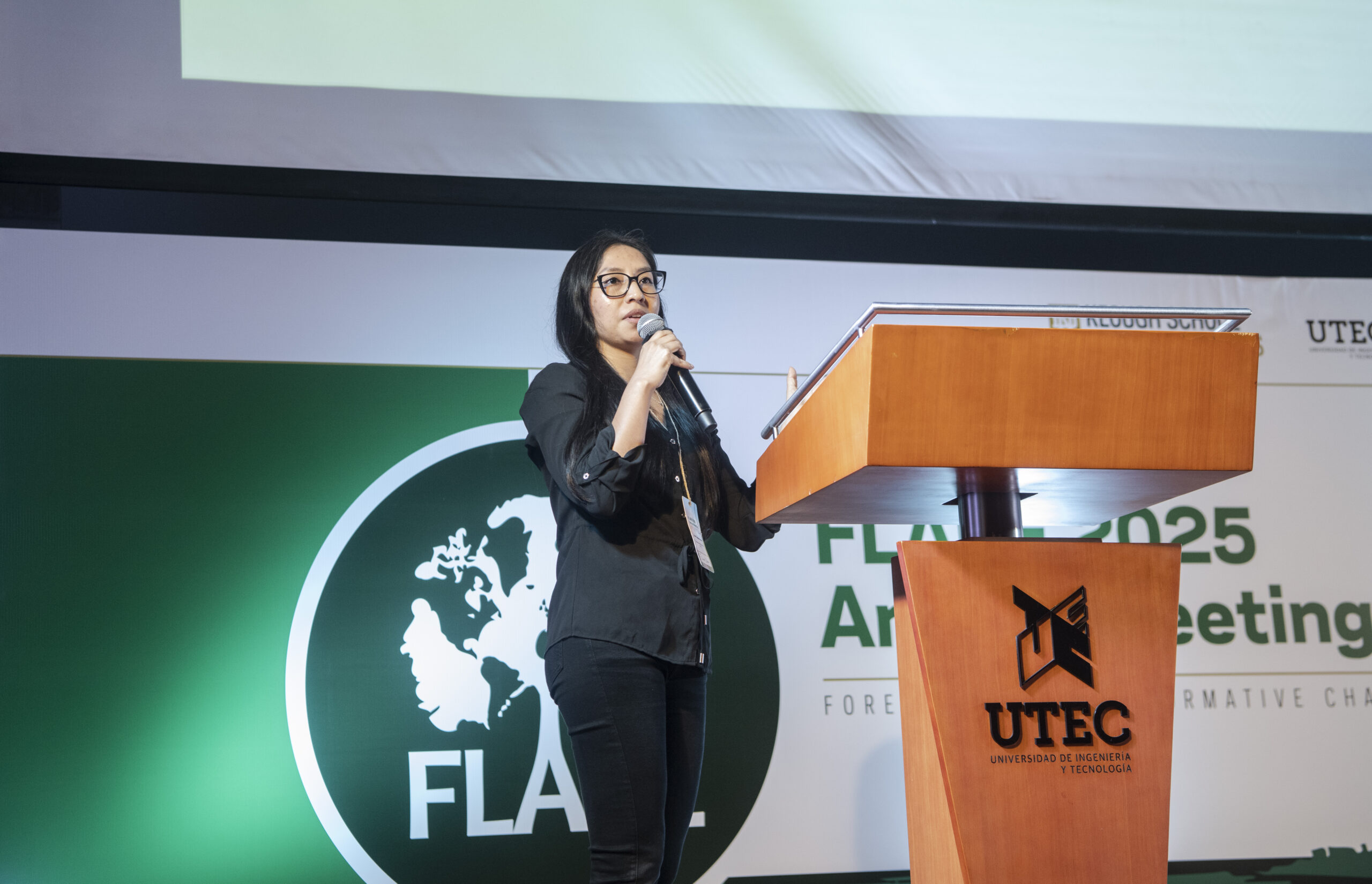

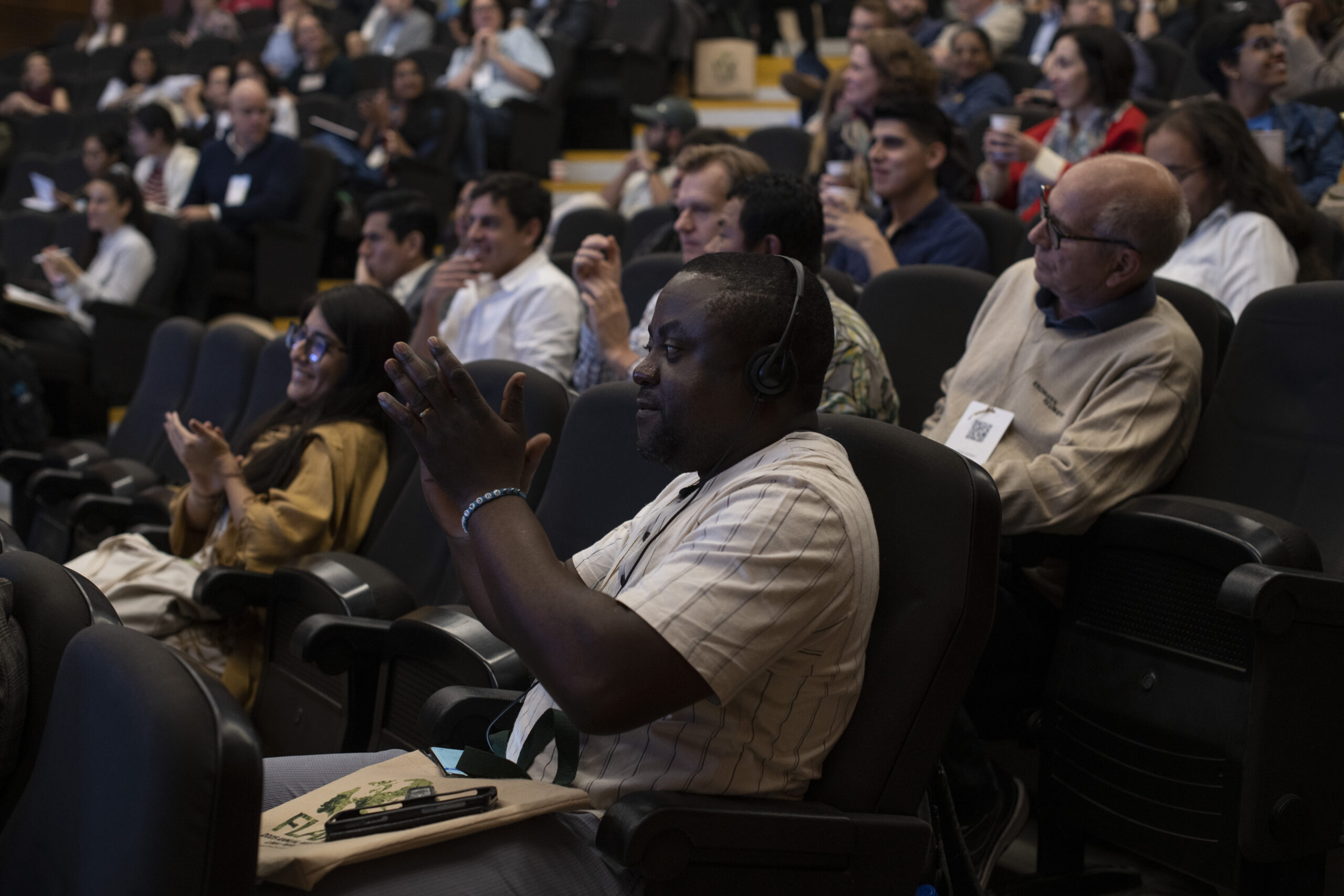
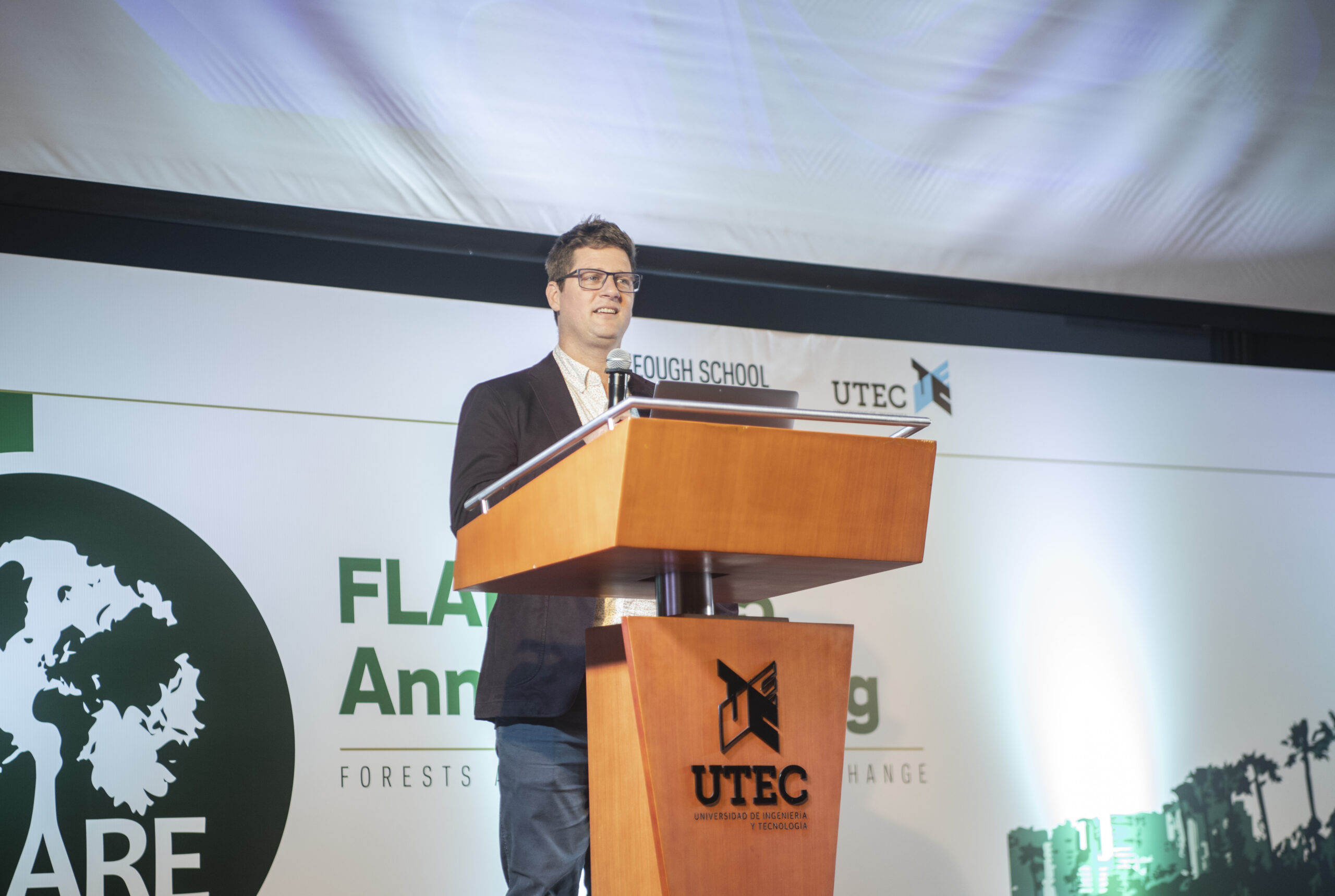
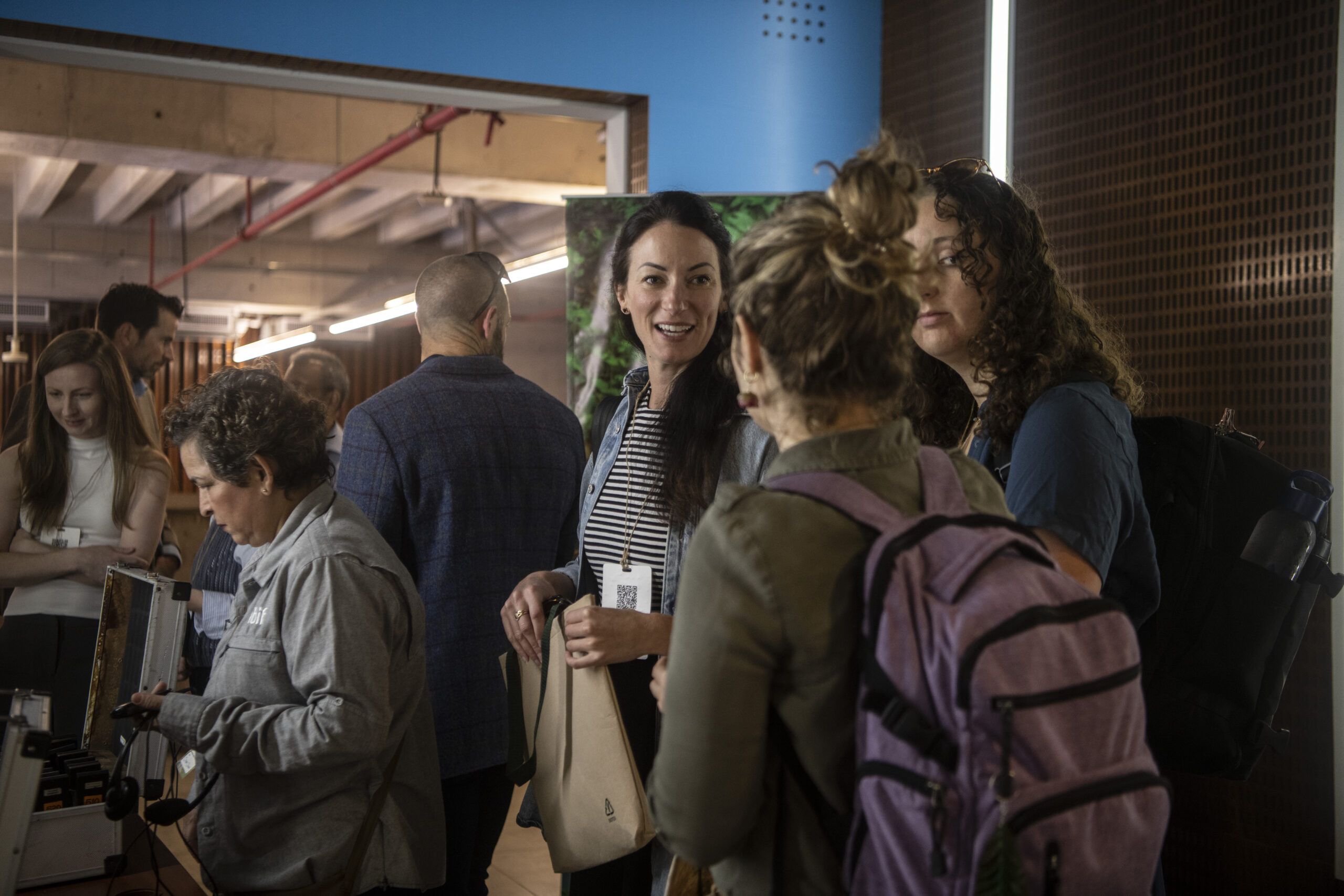
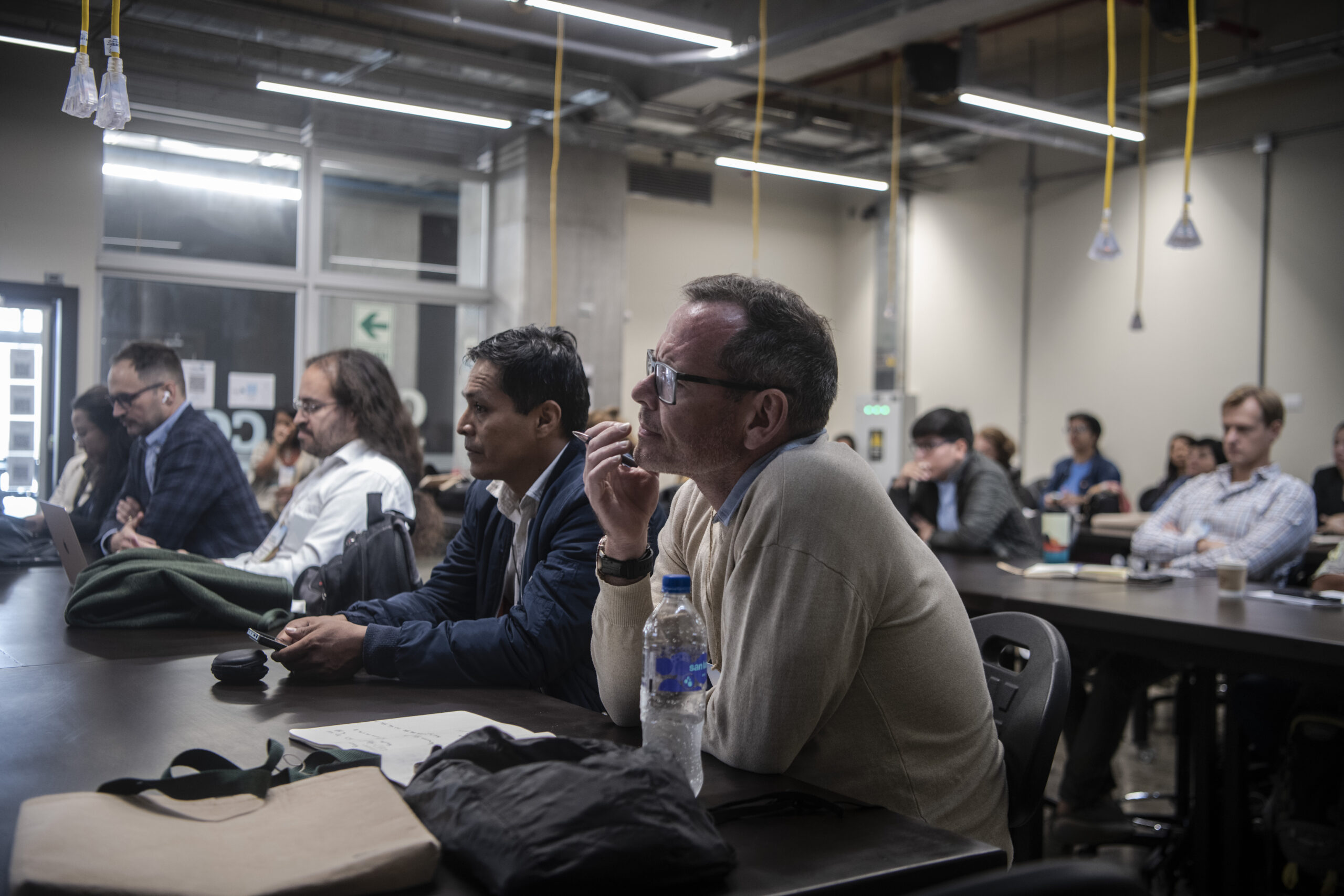
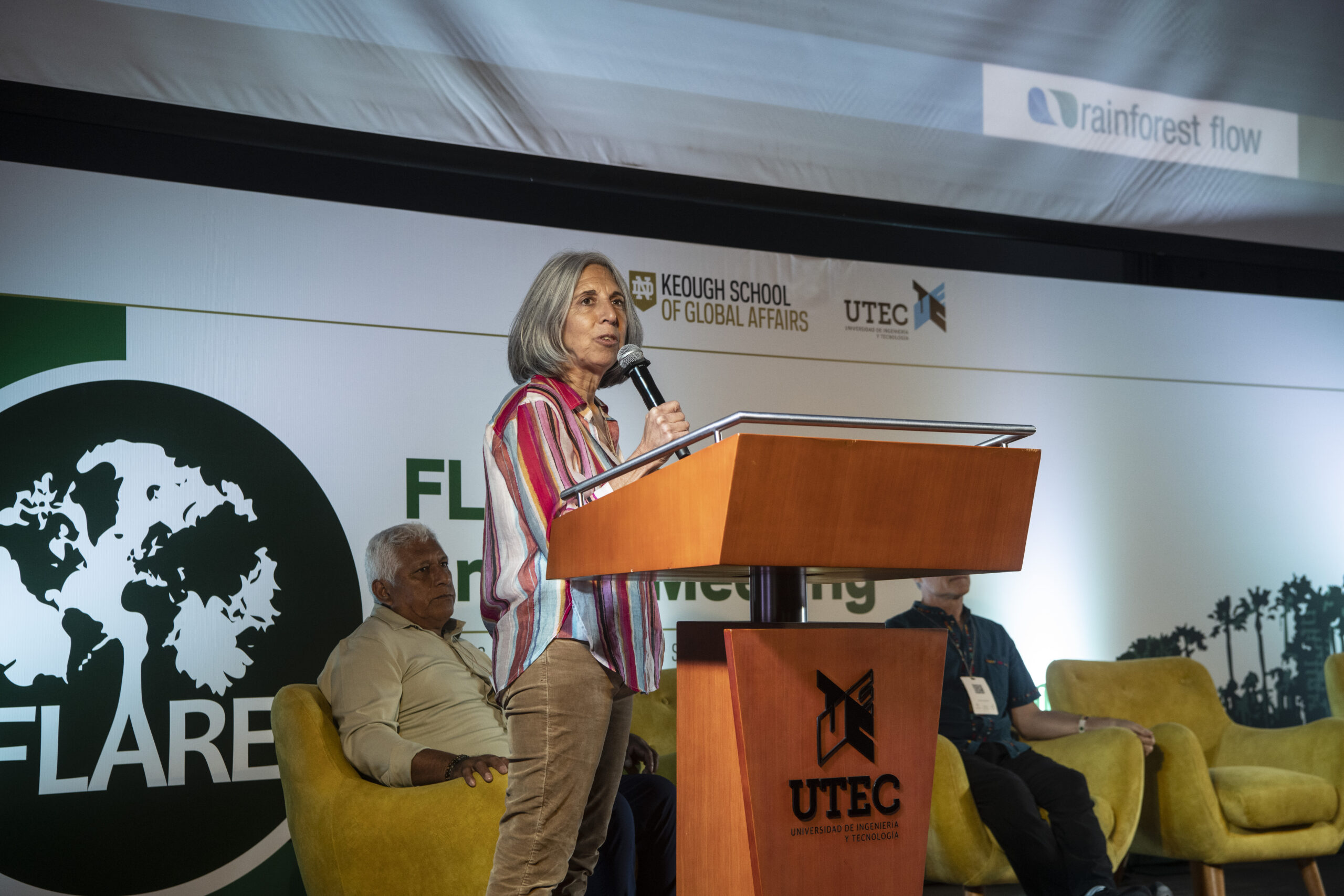
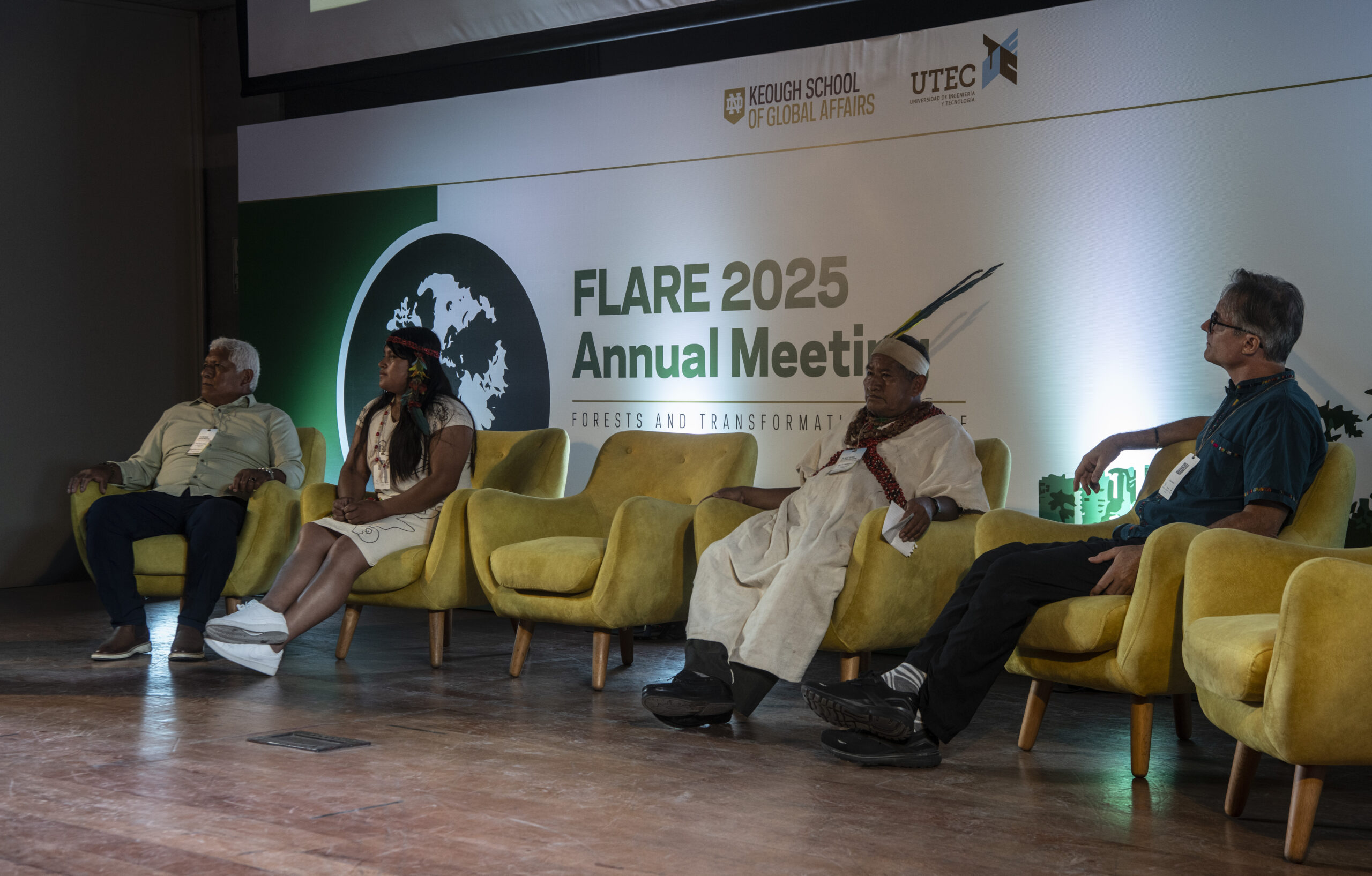
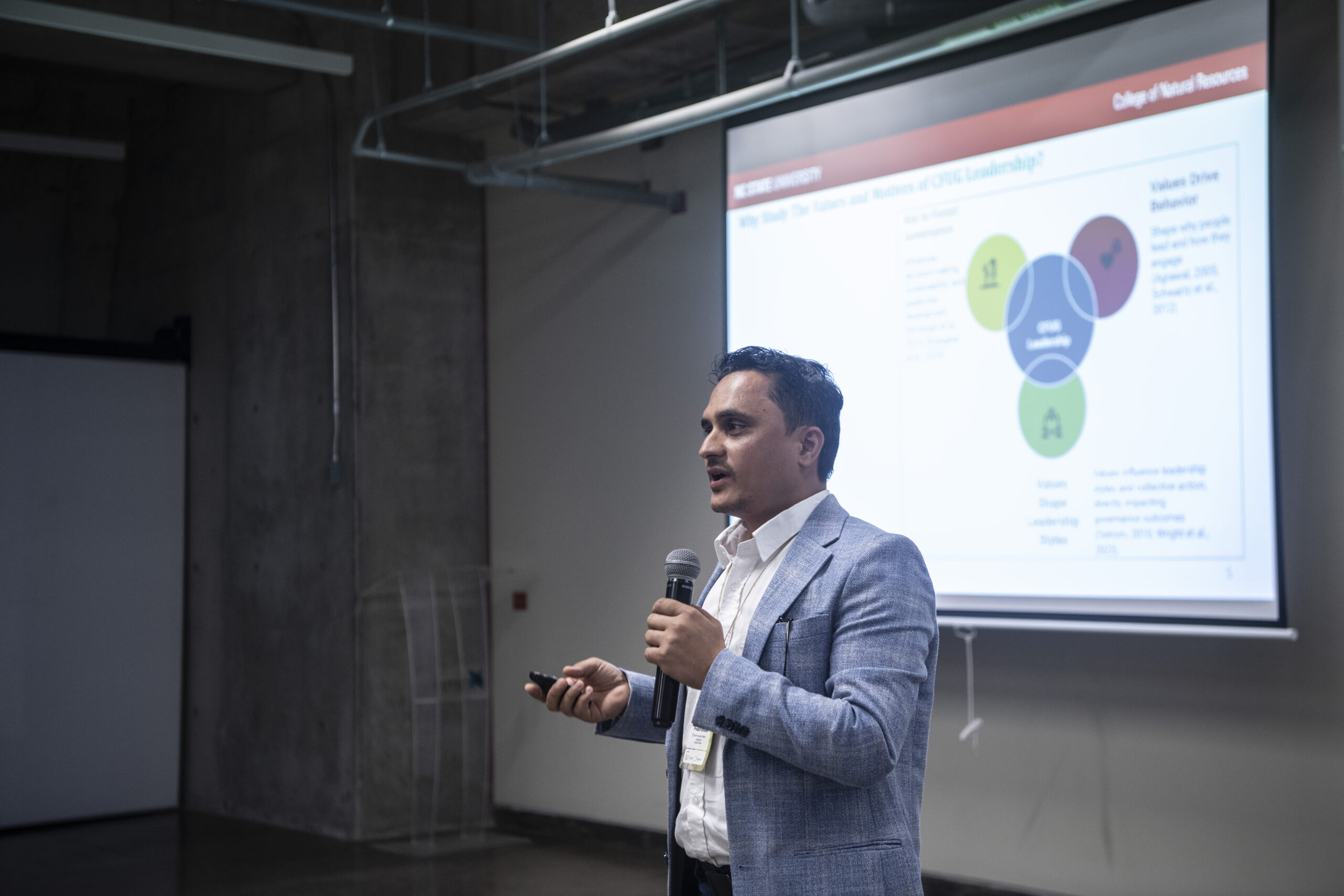
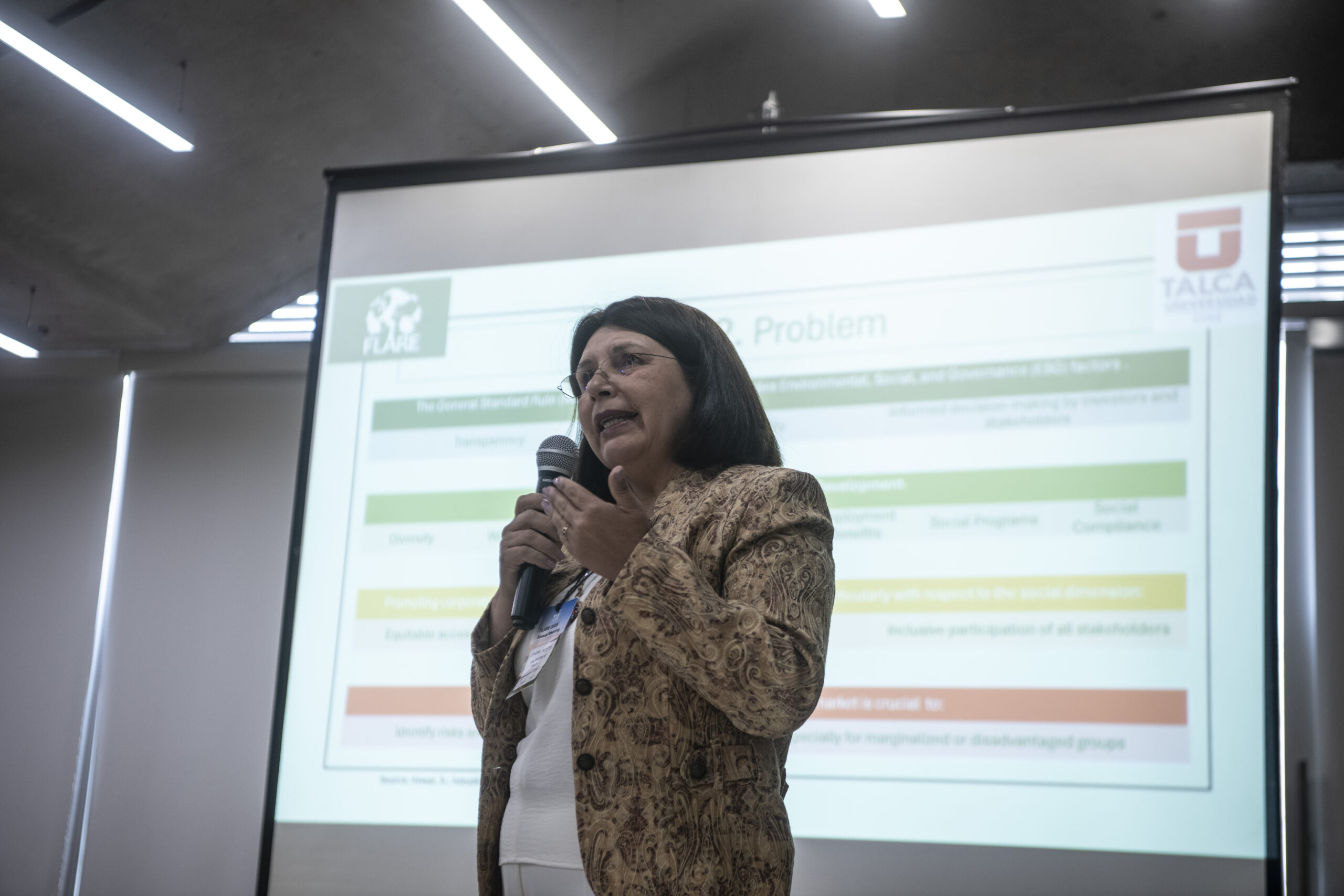
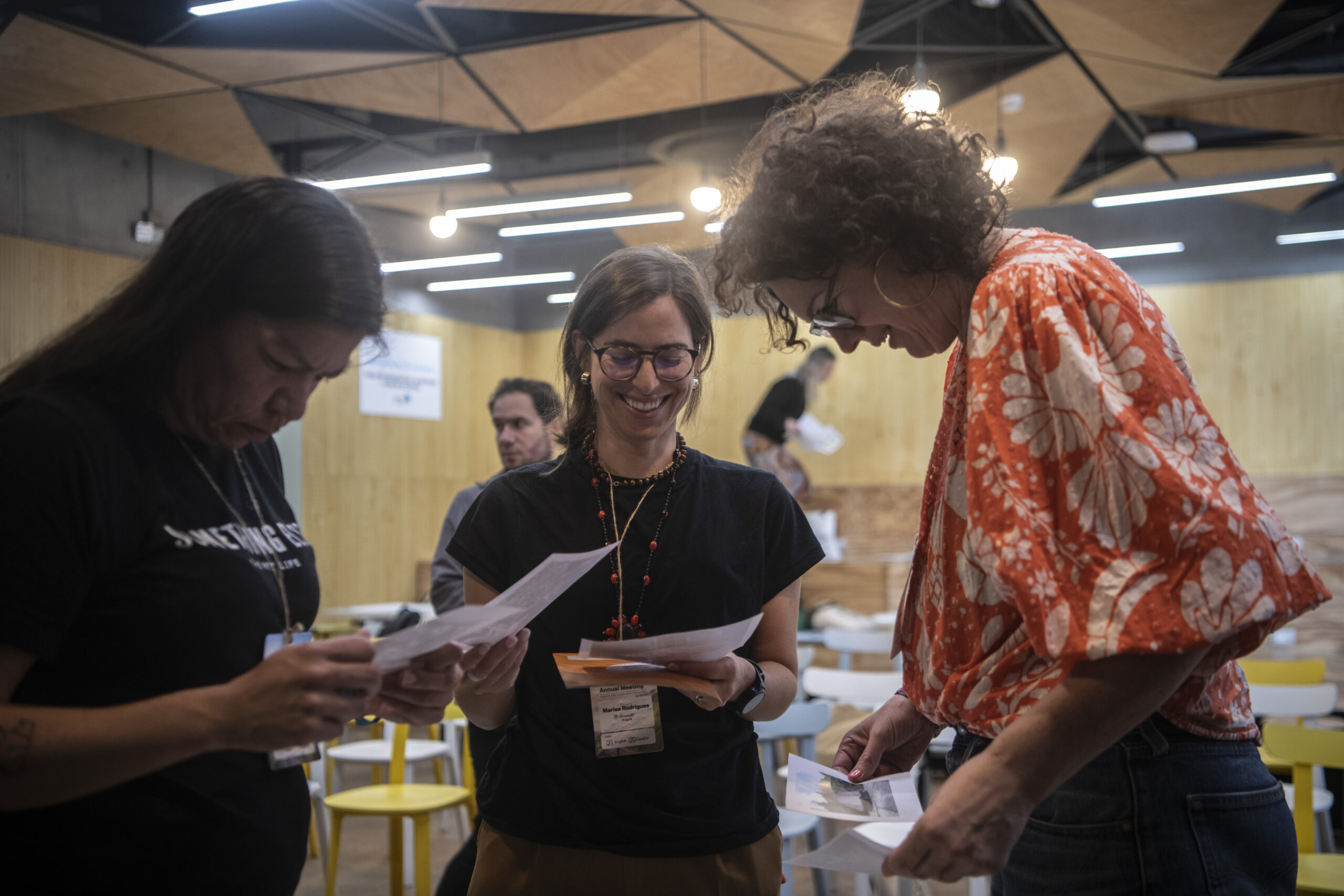
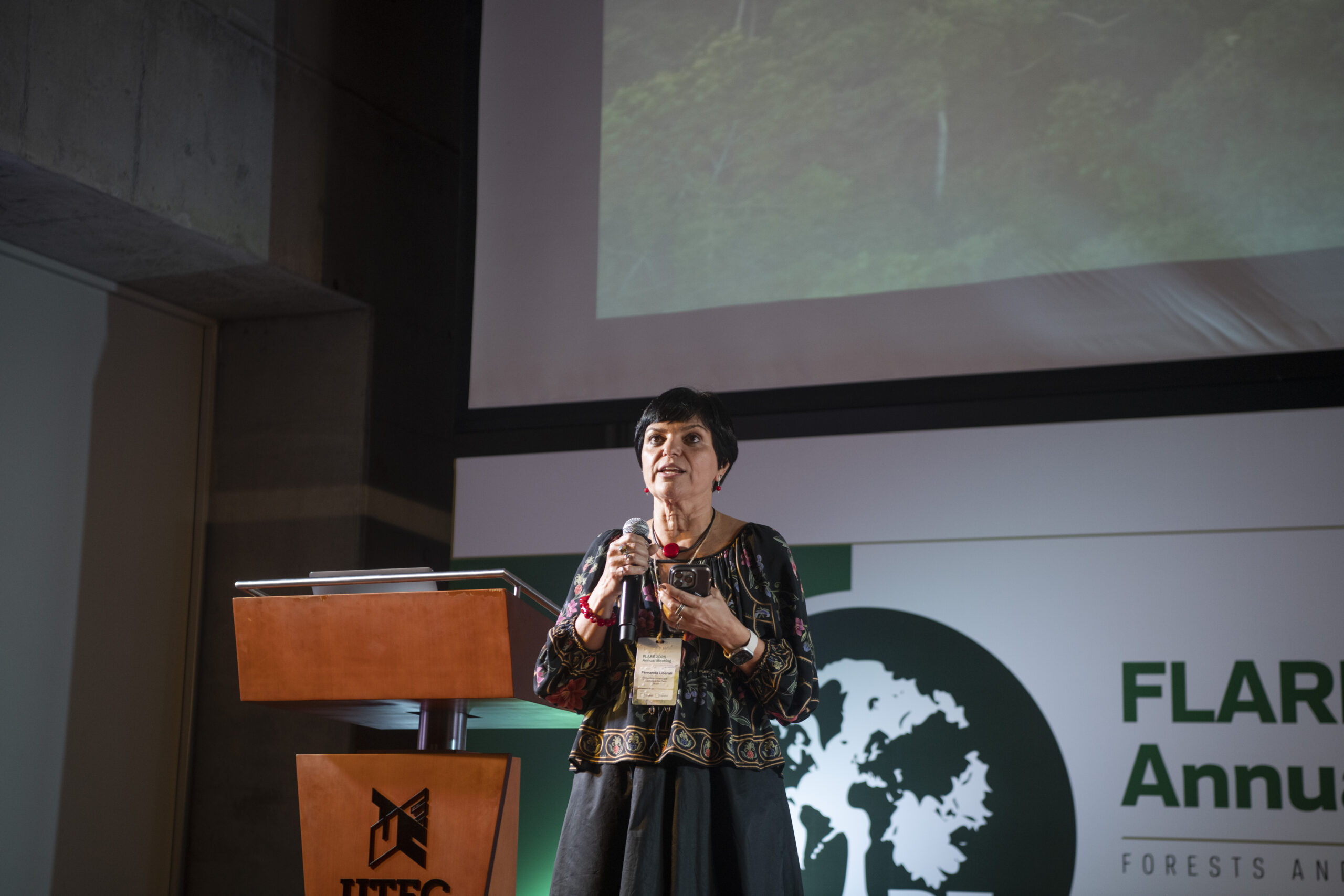
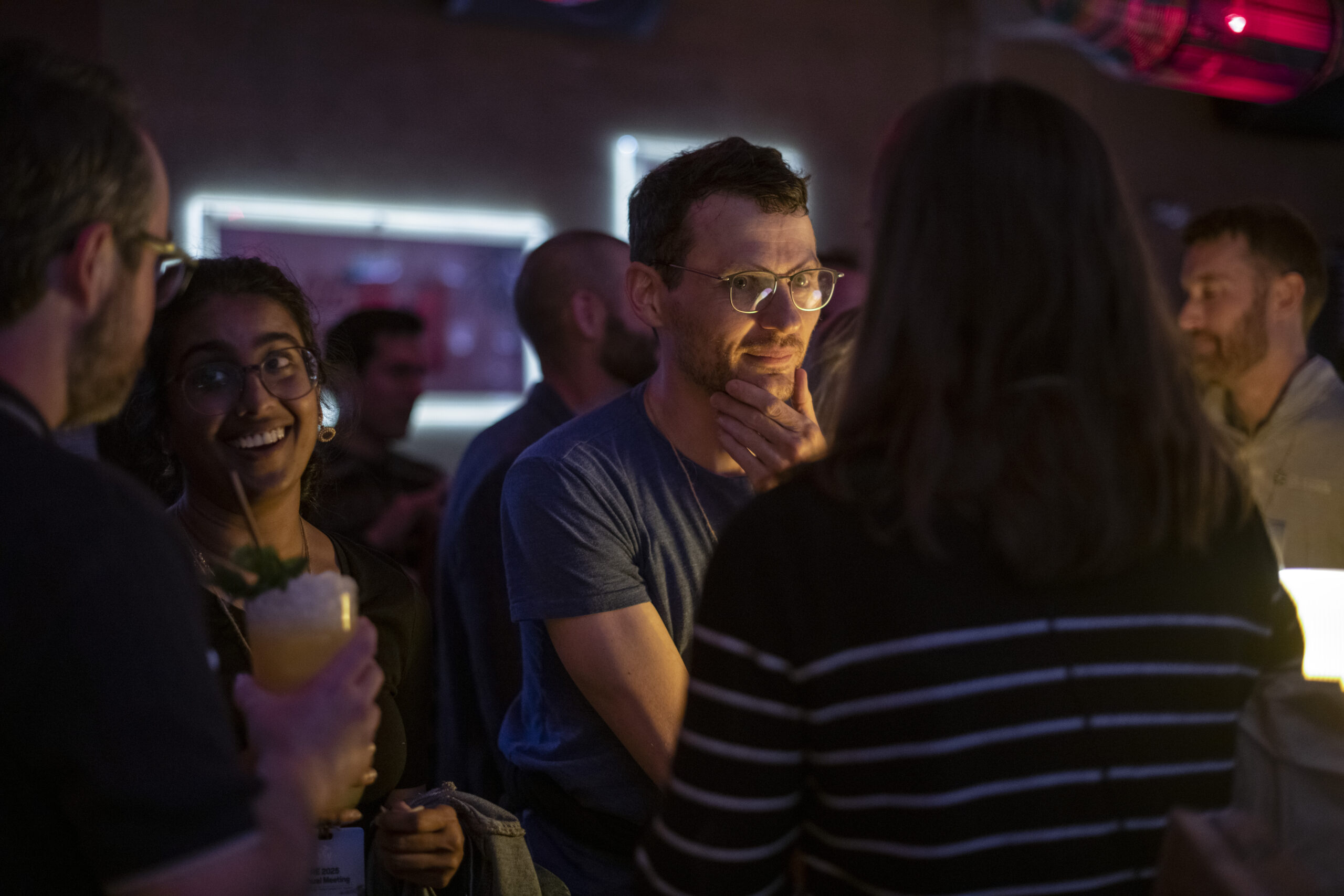

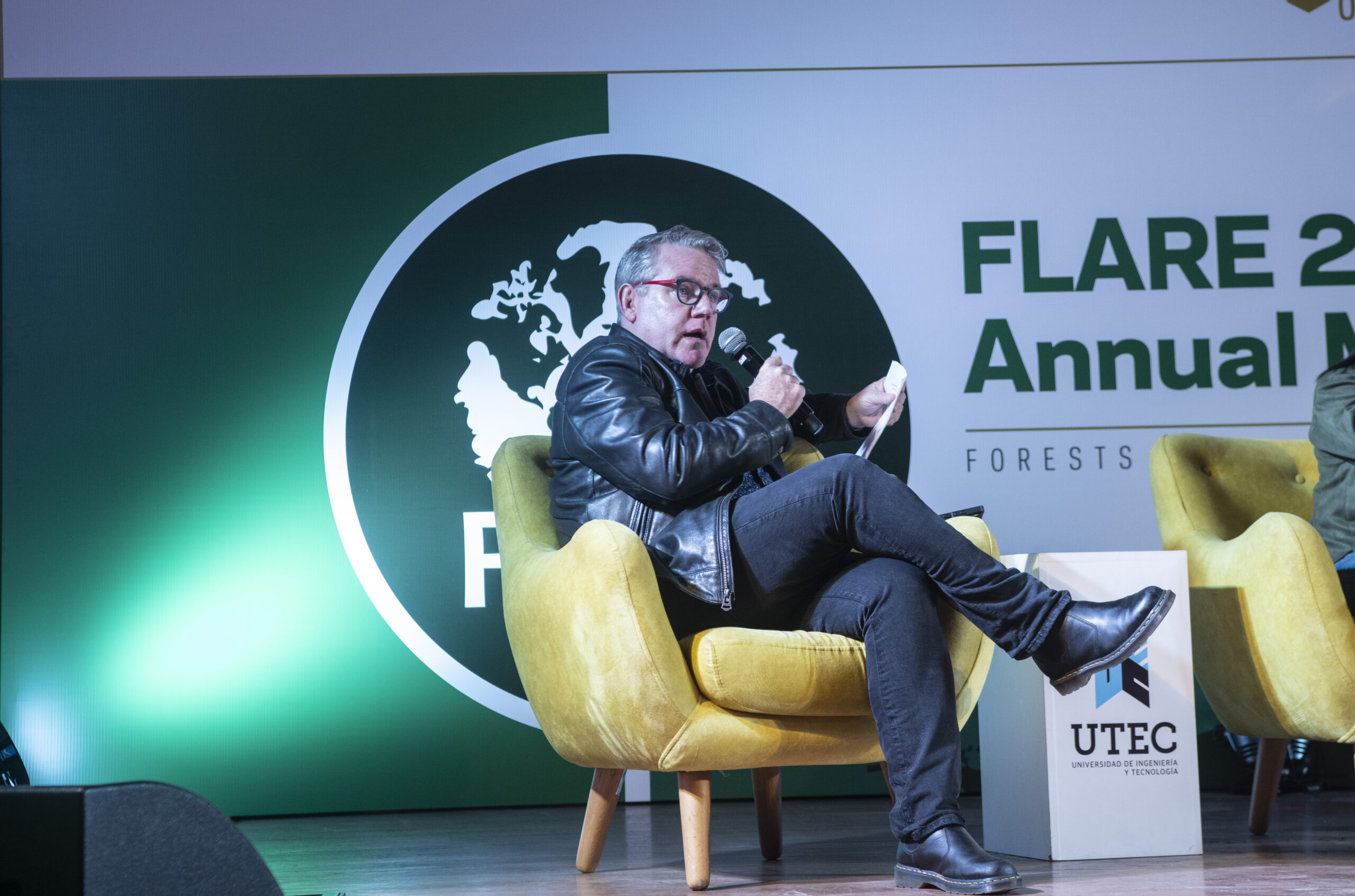
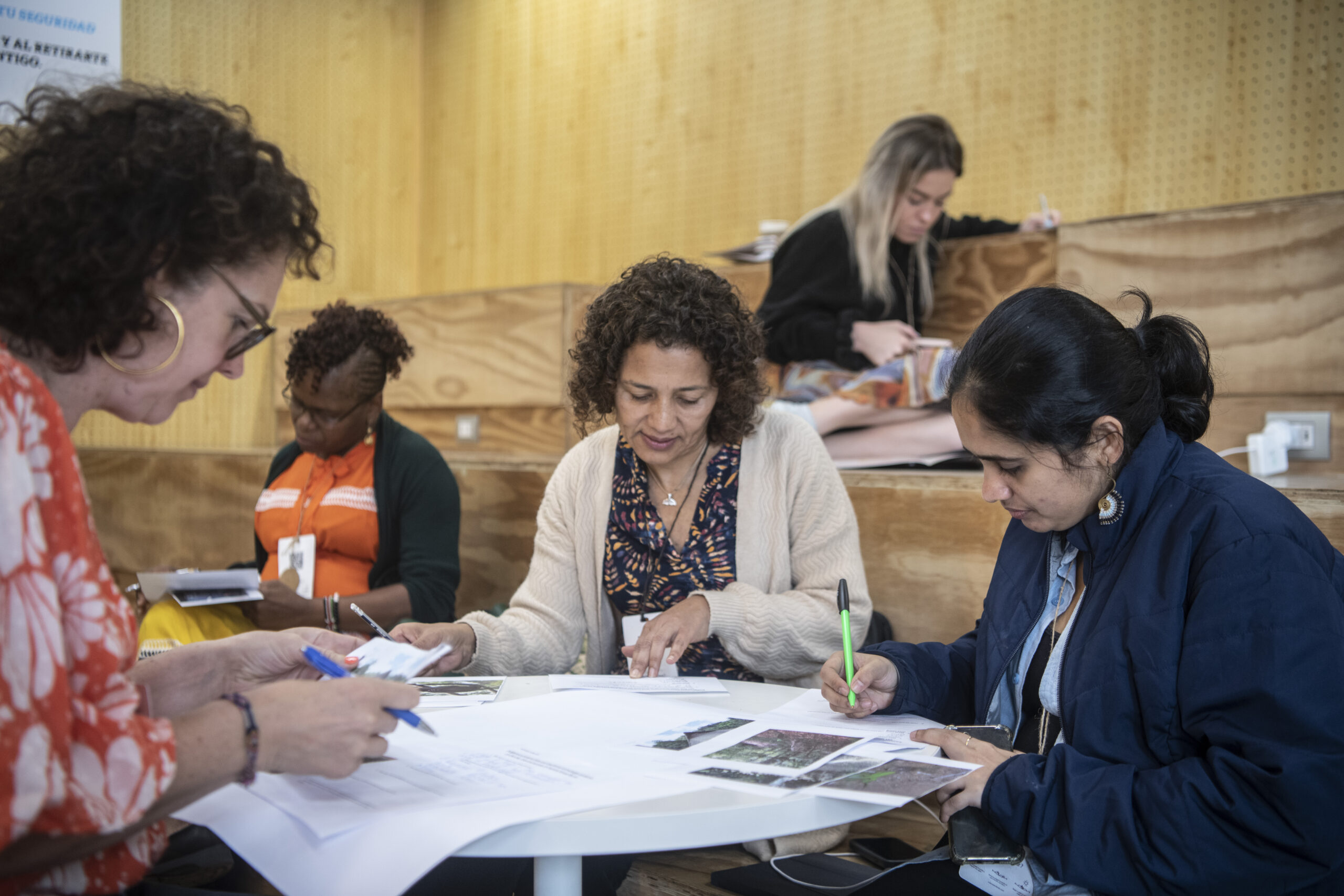
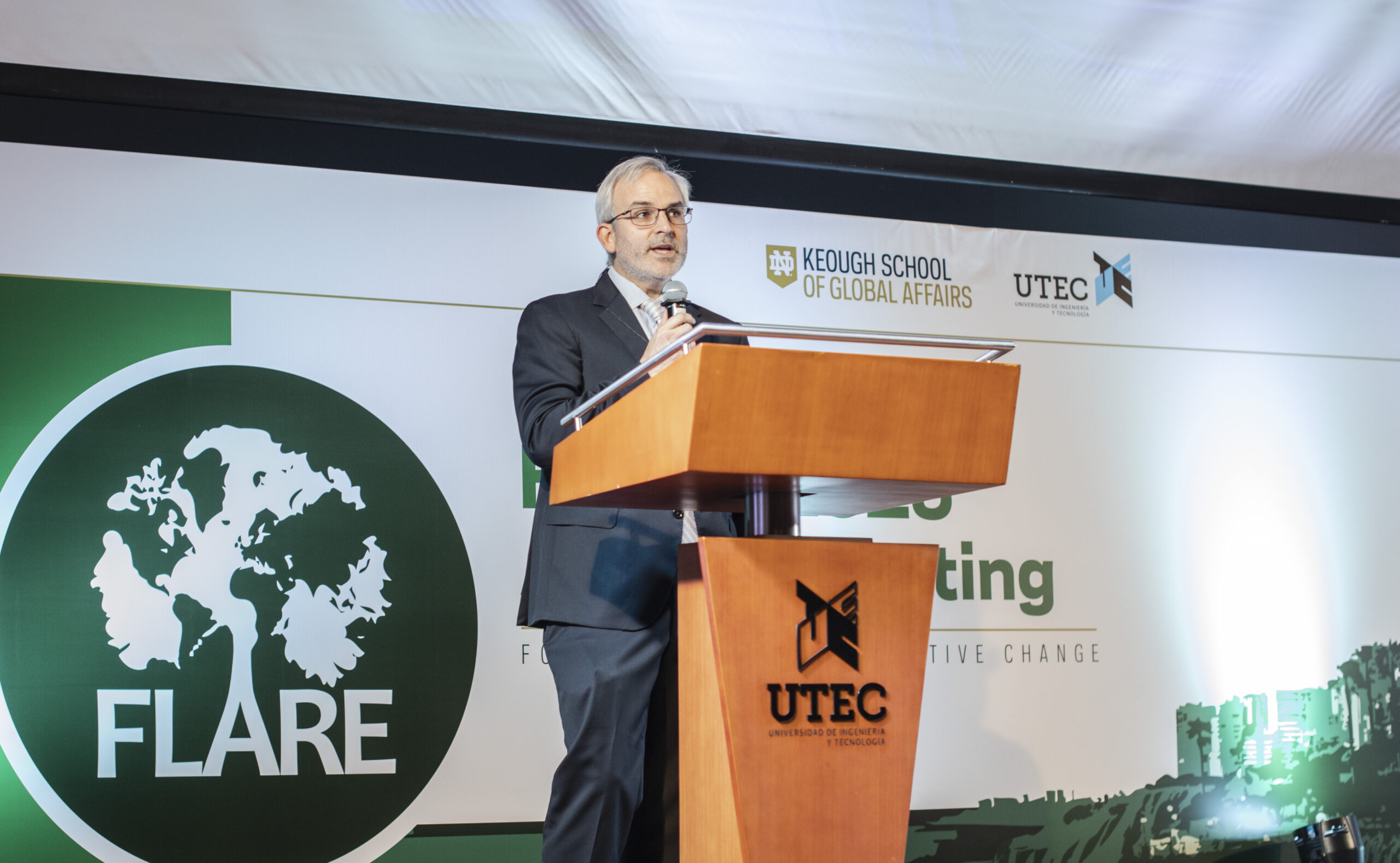
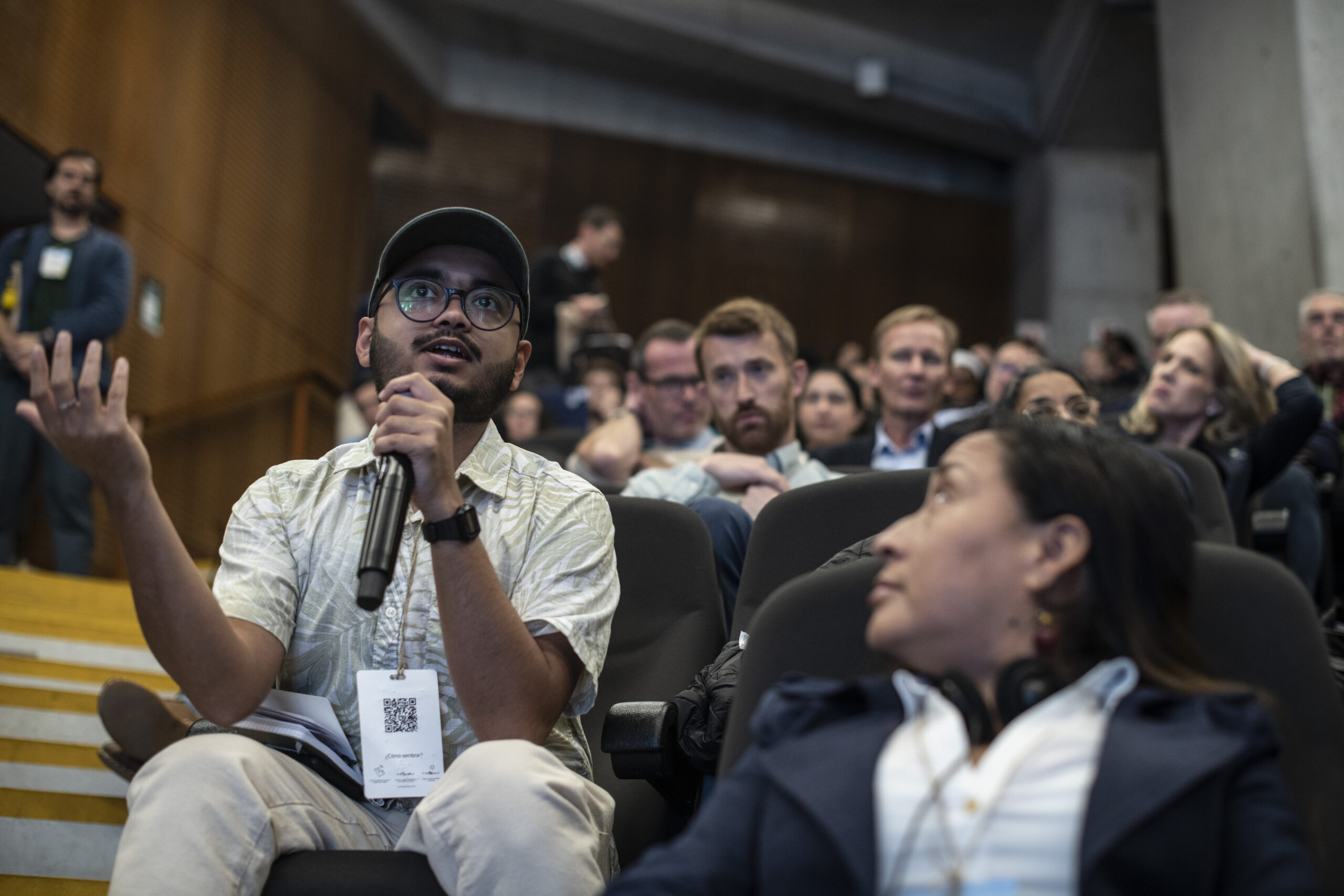
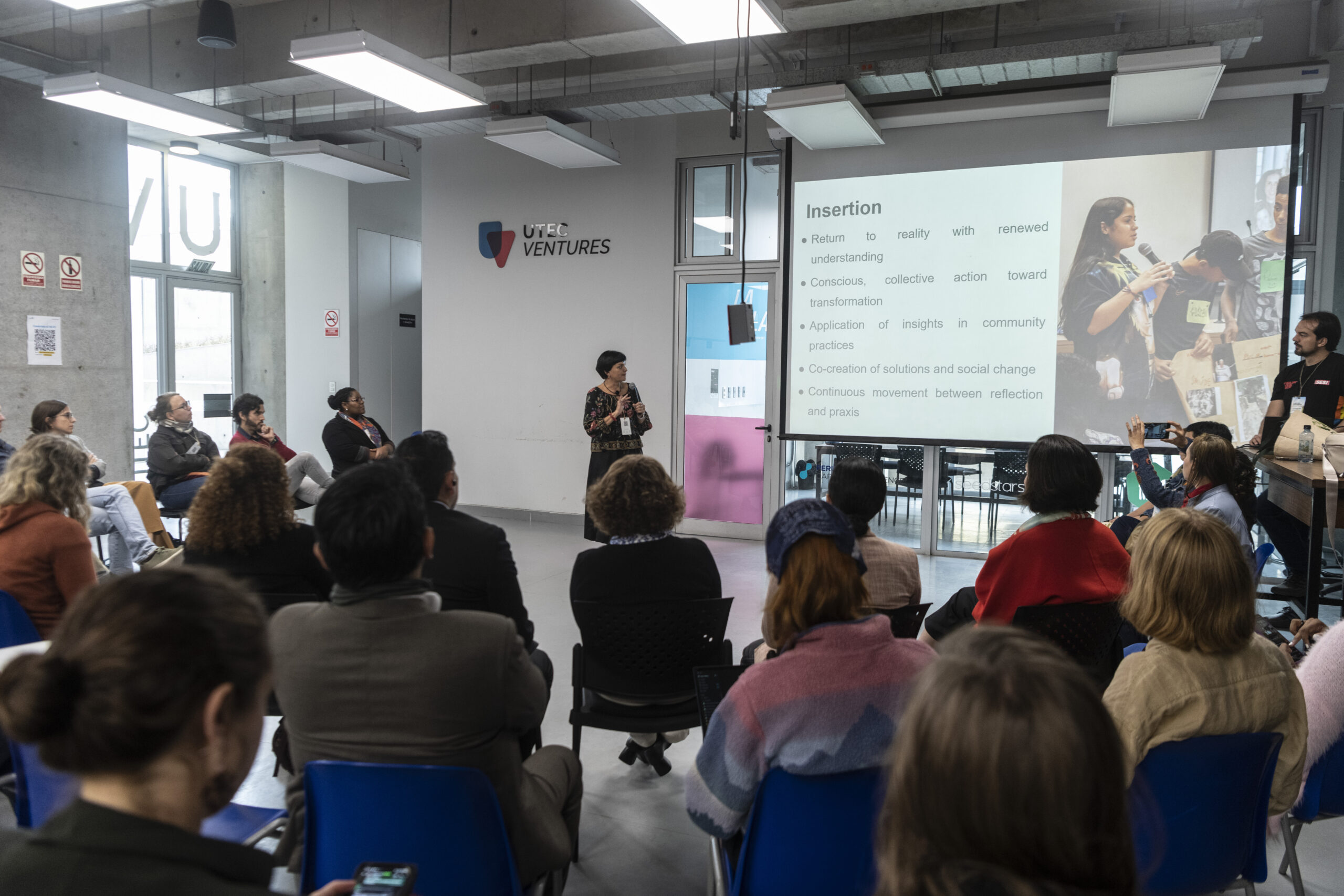
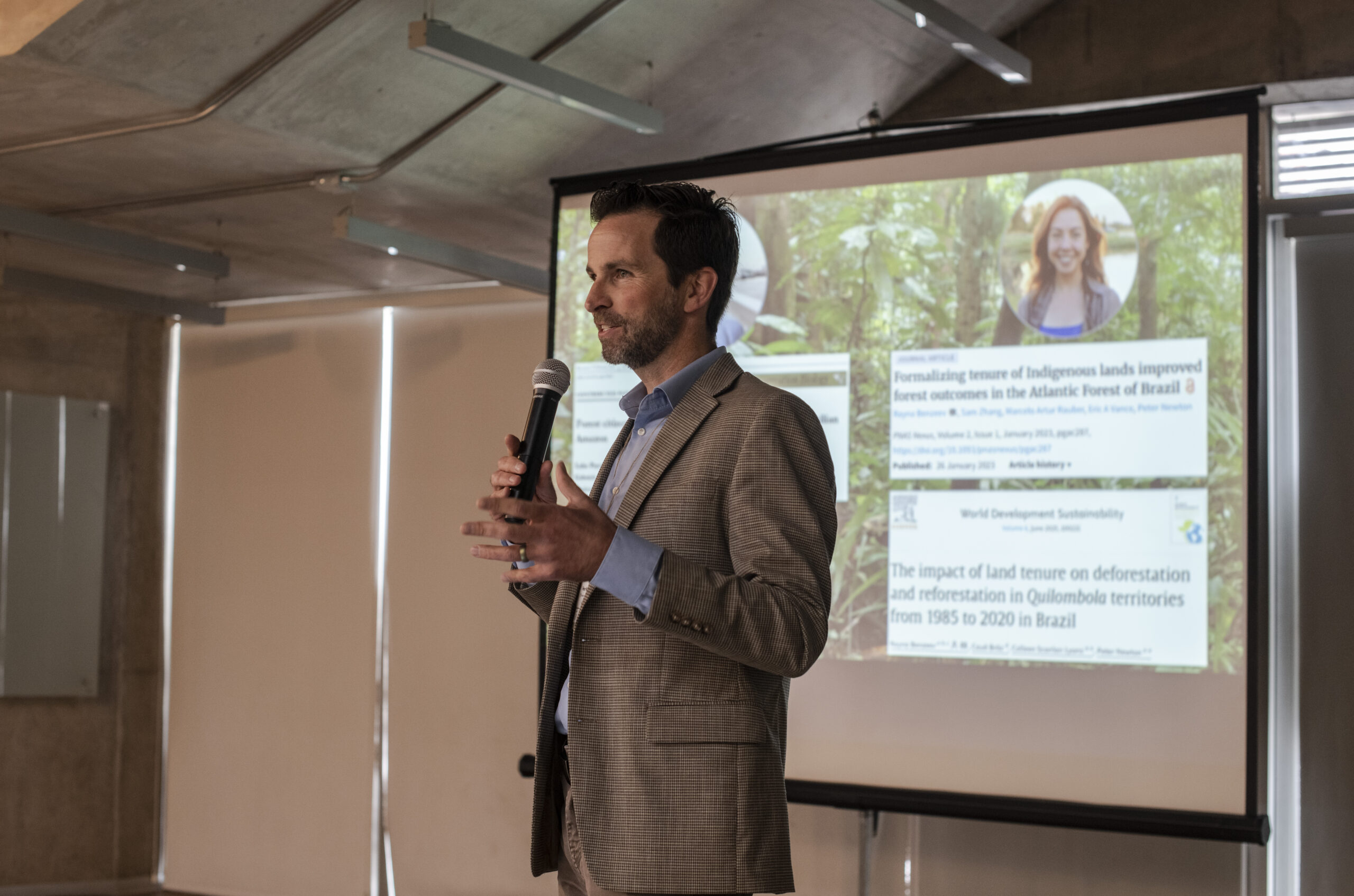

2025 Annual Meeting Theme
Forests and Transformative Change
Climate breakdown, biodiversity decline, unprecedented inequality, and persistent poverty demonstrate how distant the vision of a sustainable world remains. The erosion of international norms of cooperation, deliberate destruction of democratic institutions, and fanning of social divisions for narrow political gains further undermine efforts to address these challenges. To advance more just and sustainable futures, decisionmakers, practitioners, and academics increasingly call for transformative change—defined as fundamental, system-wide shifts in views, structures and practices (IPBES, 2024).
The 2025 FLARE meeting will examine and assess the role of forests and those who rely on them for achieving transformative change.
We will focus on how current trends shape the prospects for sustainable forests, and thriving communities connected to forests, and the contributions of both to transformative change. We will also examine how these trends themselves might change and with what effects.
The 11th FLARE Annual Meeting invites responses to these and other topics relating to the theme of “forests and transformative change.” Contributions relating to sectors that have not always figured prominently in policy and research on forest livelihoods, such as energy, information technology, and water, are particularly welcome as we seek to broaden knowledge and discussion around the conference theme.
2025 FLARE Annual Meeting Program and Book of Abstracts
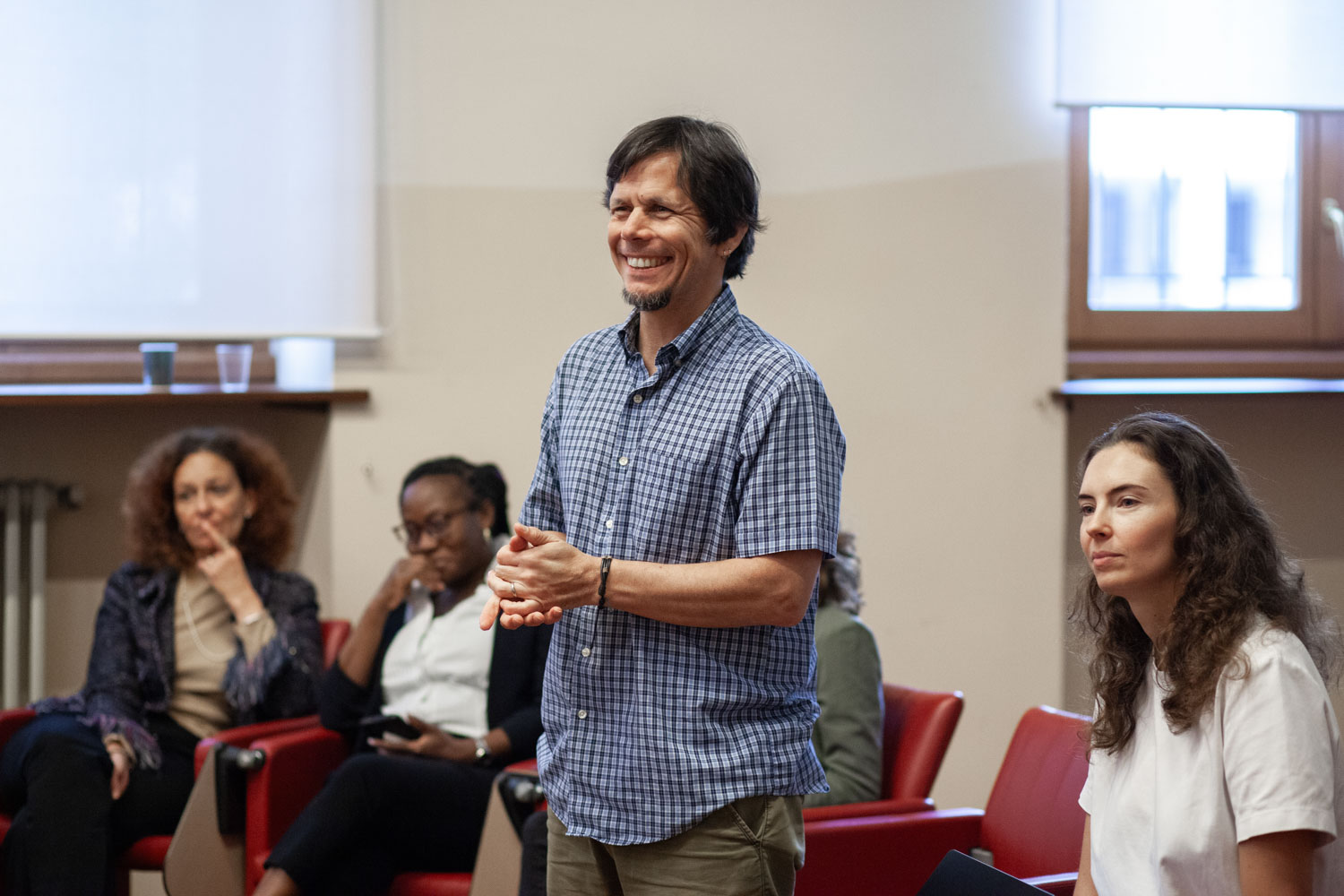
Presentation and Poster Guidelines
Please review the guidelines before completing your presentation or poster.
2025 Annual Meeting Registration
Registration for Presenters is now closed. Observers can register until October 23
Meeting registration fees are based on a tiered structure according to country income level.
Conference registration includes a personal 3-day conference pass with on-site lunch and two coffee breaks per day. The opening reception is included, but ticketed. Please choose that option during registration if you wish to attend. The Monday workshops are additional costs.
High Income Country | Early Bird (June 23 - July 23) | Regular (July 24 - September 25) | Late (September 26 - October 23) |
|---|---|---|---|
Student Presenter | $330 | $370 | $450 |
Professional Presenter | $590 | $670 | $765 |
Student Observer | $300 | $350 | $420 |
Professional Observer | $570 | $650 | $750 |
Poster Presenter (applies to Student and Professional) | $300 | $350 | $450 |
Workshops (per workshop) Monday, October 27th | $25 | $25 | $25 |
Upper Middle Income Country | Early Bird (June 23 - July 23) | Regular (July 24 - September 25) | Late (September 26 - October 23) |
|---|---|---|---|
Student Presenter | $250 | $290 | $370 |
Professional Presenter | $420 | $495 | $595 |
Student Observer | $220 | $270 | $350 |
Professional Observer | $380 | $450 | $550 |
Poster Presenter (applies to Student and Professional) | $250 | $290 | $370 |
Workshops (per workshop) Monday, October 27th | $15 | $15 | $20 |
Low and Lower Middle Income Country | Early Bird (June 23- July 23) | Regular (July 24 - September 25) | Late (September 26 - October 23) |
|---|---|---|---|
Student Presenter | $180 | $200 | $250 |
Professional Presenter | $250 | $290 | $350 |
Student Observer | $120 | $150 | $200 |
Professional Observer | $195 | $215 | $280 |
Poster Presenter (applies to Student and Professional) | $180 | $200 | $250 |
Workshops (per workshop) Monday, October 27th | $10 | $12 | $15 |
All Levels | Early Bird (June 23 - July 23) | Regular (July 24 - September 25) | Late (September 26 - October 23) |
|---|---|---|---|
Welcome Reception Bar La Calor Calle Manuel Bonilla 112, Miraflores | Free, but ticketed | Free, but ticketed | Free, but ticketed |
Welcome Reception Guest Ticket (Not attending conference) | $30 | $30 | $30 |
Conference Dinner - Saturday, October 25 Tanta Av. Vasco Núñez de Balboa 660, Miraflores | $75 | $75 | $75 |
Guest Dinner Ticket (Not attending conference) | $75 | $75 | $75 |
Keynote Speaker and Plenary Sessions
On Friday, October 24th, Manuel Pulgar-Vidal provided the Keynote Address at the 11th Annual Meeting. Manuel is the global leader of Climate & Energy at WWF and interim chair of the International Union for Conservation of Nature (IUCN) Climate Crisis Commission. He served as Minister of the Environment of Peru (2011 to 2016), President of the Twentieth Conference of the Parties to the United Nations Framework Convention on Climate Change (COP20) in 2014 and has more than 35 years of experience in environmental law and policy.
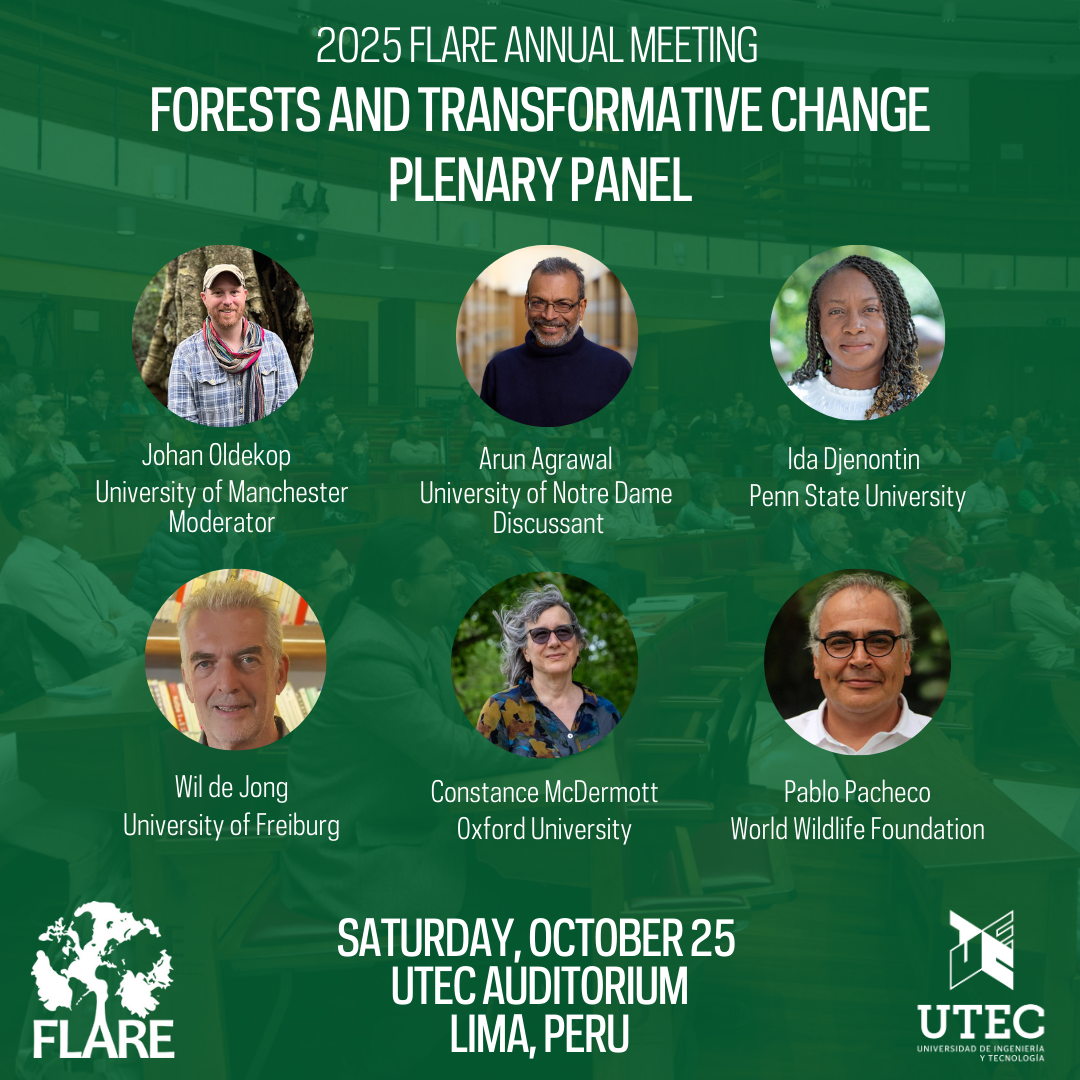
On Saturday, October 25th, Johan Oldekop moderated a discussion on the main theme of the 2025 Annual Meeting, Forests and Transformative Change. Ida Nadia Djenontin, Wil de Jong, Constance McDermott and Pablo Pacheco, with Arun Agrawal as the discussant, examined the role of forests and left the audience with future research pathways and policy recommendations.
Stay tuned for the recording of the session!
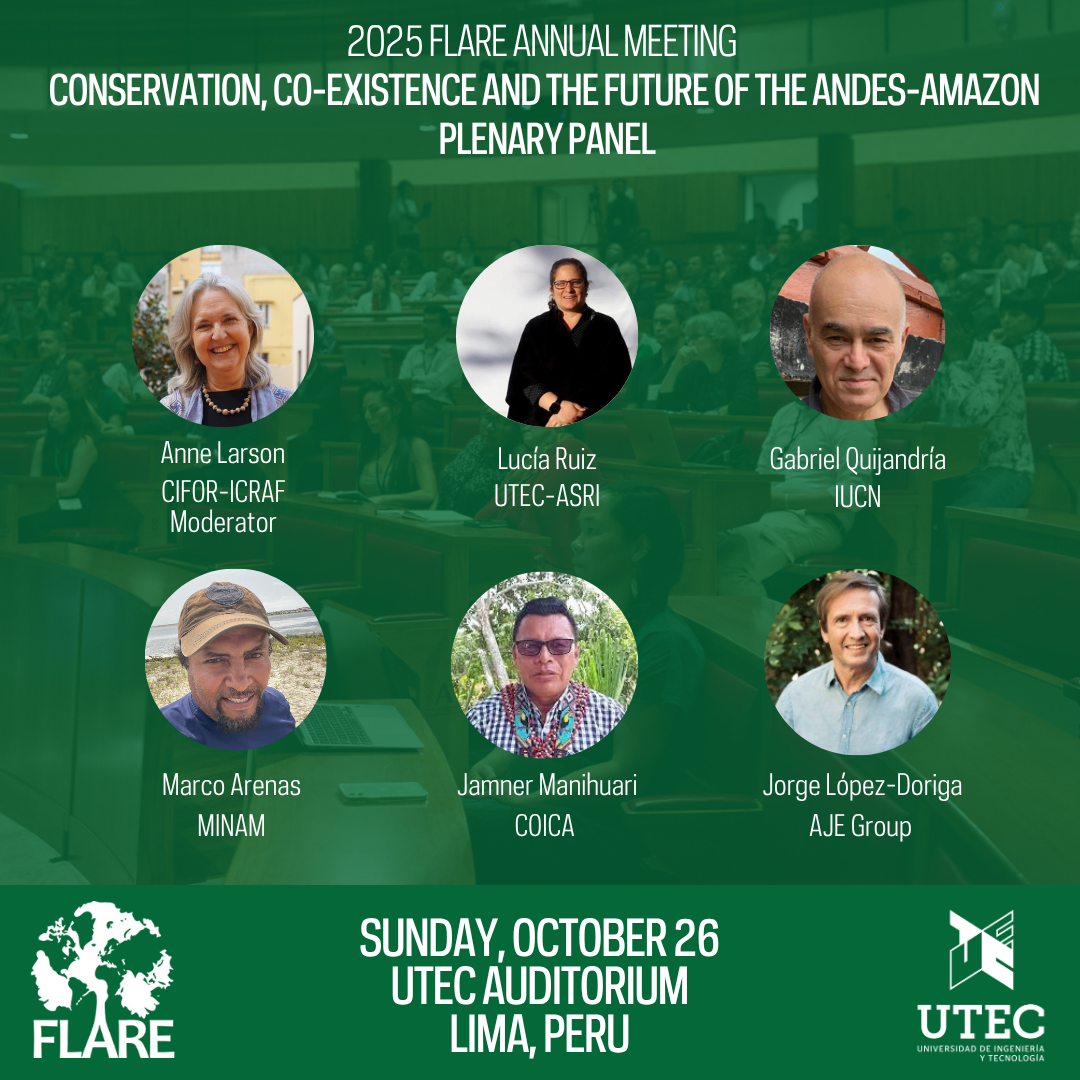
On Sunday, October 26th, Anne Larson moderated a discussion on this vital topic of "Conservation, co-existence, and the future of the Andes-Amazon" which has particular salience for the meeting’s host country and in the lead up to COP 30 in Brazil. Lucía Ruiz, Gabriel Quijandría, Marco Arenas, Jamner Manihuari, and Jorge López-Doriga, reflected on their experiences working with communities and conservation from diverse perspectives and envision how to build a brighter future for the region.
Stay tuned for the recording of the session!
Important Dates for the Annual Meeting
Subject to change
Date | Event |
|---|---|
September 25 | Deadline to register as a presenter |
October 3 | Release of official program |
October 21 | Deadline to submit your presentation (see Guidelines below) |
October 21 | Deadline to register as an observer |
October 23 | Opening Reception - Bar La Calor |
October 24 | Day 1 of the Annual Meeting |
October 25 | Day 2 of the Annual Meeting |
October 26 | Day 3 of the Annual Meeting |
October 27 | Workshops (see descriptions below) |
2025 Annual Meeting Workshop Descriptions
All four workshop sessions will take place on Monday, October 27th at the University of Engineering and Technology with simultaneous English to Spanish (and vice versa) translation available for all. To attend the workshops, an additional fee must be paid for each session. Please see the table above for additional costs.
Neither coffee breaks nor lunch will be provided at the workshops.
Workshops 1 & 2 - 10:00 - 12:00
Workshops 3 & 4 - 14:15 - 16:15
Organizer: Diego Espejo, Pontificia Universidad Católica del Perú
1. Introduction
Artificial Intelligence (AI) is transforming academic research, offering tools for literature review, data analysis, and writing. But can AI replace human creativity and critical thinking in research? This workshop is a live experiment where participants will co-create a research proposal using only AI tools, testing both the capabilities and limitations of these technologies.
2. Context and Relevance
AI integration in academia raises concerns about intellectual ownership, rigor, and ethical boundaries. While AI can enhance efficiency, it also challenges originality and scientific integrity. This workshop offers a hands-on exploration of AI’s role in research while fostering a critical debate on its implications. Attendees from various disciplines will engage in an experimental process, balancing automation with human oversight.
3. Objectives
- Guide participants in using accessible AI tools (e.g., GPT-4o, Claude 3, LLaMA 3) for research purposes.
- Introduce a comparative overview of these models, including accessibility (open, paid), strengths (e.g., reasoning, long context), and limitations (e.g., bias, cost).
- Provide a decision guide for selecting appropriate tools based on research needs.
- Co-develop simple evaluation criteria for AI-generated outputs (accuracy, completeness, bias, originality).
- Foster critical reflection on ethical boundaries and best practices for responsible AI use in scientific production.
4. Workshop Methodology and Format
Duration: 2-3 hours
Format: Interactive, experimental, and discussion-based
1. Introduction (30 min) – Overview of AI in research, ethical challenges, and tool comparison.
2. AI-Driven Research Proposal Development (60 min) – Teams use AI tools to generate topics, analyze forest-related datasets, and build structured research proposals.
3. Reflection and Evaluation (30 min) – Participants apply a simple framework to assess AI-generated content on traceability, completeness, and potential biases.
4. Final Synthesis (30 min) – Teams present and compare proposals, discussing when and why to rely (or not) on AI outputs
5. Expected Outcomes
A co-created AI-assisted research proposal.
Practical experience navigating different AI tools and selecting between them.
A simplified decision guide: “Which model when?”
A prompt cheat-sheet tailored to forest/environment topics.
A participant-generated framework to critically assess and ethically guide AI use in research.
6. Target Audience
Researchers and professionals interested in AI tools for scientific production.
ES:
1. Introducción
La Inteligencia Artificial (IA) está transformando la investigación académica, ofreciendo herramientas para la revisión de literatura, el análisis de datos y la redacción. Pero, ¿puede la IA reemplazar la creatividad humana y el pensamiento crítico en la investigación? Este taller es un experimento en vivo donde los participantes co-crearán una propuesta de investigación utilizando únicamente herramientas de IA, poniendo a prueba tanto las capacidades como las limitaciones de estas tecnologías.
2. Contexto y Relevancia
La integración de la IA en el ámbito académico plantea preocupaciones sobre la propiedad intelectual, el rigor y los límites éticos. Si bien la IA puede mejorar la eficiencia, también desafía la originalidad y la integridad científica. Este taller ofrece una exploración práctica del papel de la IA en la investigación, al tiempo que fomenta un debate crítico sobre sus implicaciones. Asistentes de diversas disciplinas participarán en un proceso experimental que busca equilibrar la automatización con la supervisión humana.
3. Objetivos
Guiar a los participantes en el uso de herramientas de IA accesibles (por ejemplo, GPT-4o, Claude 3, LLaMA 3) con fines de investigación.
Presentar una visión comparativa de estos modelos, incluyendo accesibilidad (abiertos, de pago), fortalezas (por ejemplo, razonamiento, contexto extenso) y limitaciones (por ejemplo, sesgo, costo).
Proporcionar una guía de decisión para seleccionar herramientas apropiadas según las necesidades de investigación.
Co-desarrollar criterios simples de evaluación para los resultados generados por IA (precisión, exhaustividad, sesgo, originalidad).
Fomentar una reflexión crítica sobre los límites éticos y las mejores prácticas para el uso responsable de la IA en la producción científica.
4. Metodología y Formato del Taller
Duración: 2-3 horas
Formato: Interactivo, experimental y basado en la discusión
Introducción (30 min) – Panorama general del uso de la IA en la investigación, desafíos éticos y comparación de herramientas.
Desarrollo de Propuesta de Investigación con IA (60 min) – Equipos utilizan herramientas de IA para generar temas, analizar conjuntos de datos relacionados con bosques y construir propuestas de investigación estructuradas.
Reflexión y Evaluación (30 min) – Los participantes aplican un marco simple para evaluar el contenido generado por IA en cuanto a trazabilidad, exhaustividad y posibles sesgos.
Síntesis Final (30 min) – Los equipos presentan y comparan sus propuestas, discutiendo cuándo y por qué confiar (o no) en los resultados generados por IA.
5. Resultados Esperados
Una propuesta de investigación co-creada con asistencia de IA.
Experiencia práctica navegando entre distintas herramientas de IA y seleccionándolas.
Una guía de decisión simplificada: “¿Qué modelo usar y cuándo?”
Una hoja de trucos de prompts enfocada en temas forestales/ambientales.
Un marco de evaluación generado por los participantes para valorar críticamente y orientar éticamente el uso de la IA en la investigación.
6. Público Objetivo
Investigadores y profesionales interesados en herramientas de IA para la producción científica.
Organizador: Adrian Hartill, Minkaprod
El video participativo como medio para la protección y difusión del conocimiento ancestral indígena sobre conservación de los bosques.
Los pueblos indígenas son los seres humanos que mejor conservan los bosques en todo el mundo. En este tiempo de crisis climática, sus conocimientos en la materia son cruciales, pues de los bosques que protegen, depende la supervivencia de toda la humanidad.
Los pueblos indígenas han transmitido sus estrategias de conservación de la naturaleza principalmente a través de la memoria oral viva. Sin embargo, esta práctica milenaria se encuentra en peligro de desaparición, por diversas presiones sobre sus culturas y territorios.
Al mismo tiempo, nunca antes fueron tan accesibles los medios audiovisuales como ahora. Incluso personas indígenas de comunidades rurales, cuentan con un celular con cámara. Esta disponibilidad presenta la oportunidad de masificar sus lecciones sobre la protección de bosques a nivel global, con su participación protagónica.
Este taller busca brindar herramientas de comunicación intercultural a investigadores que trabajen en territorios indígenas, para que puedan establecer mejores canales de comunicación con los pueblos que allí habitan. Está centrado en la experiencia de la escuela de cine participativo Nuestro Cine: Jakon Jati, desarrollada en la región amazónica de Ucayali, en Perú, con comunidades nativas del pueblo indígena shipibo, entre 2019 y 2022, para la preservación de sus conocimientos vinculados al uso de plantas medicinales y el cuidado del bosque.
El taller intercalará espacios de reflexión y acción sobre transmisión de la memoria oral, diálogo intergeneracional, prácticas anticoloniales de investigación, recomendaciones para el trabajo con pueblos indígenas basadas en experiencias reales y el uso de herramientas de comunicación audiovisual como apuesta para la preservación de la memoria oral, en lenguas originarias y desde las propias epistemologías de los pueblos indígenas involucrados
EN:
Organizer: Adrian Hartill, Minkaprod
Indigenous peoples are the best forest stewards in the world. In this time of climate crisis, their knowledge is crucial, as the forests they protect are vital for the survival of all humanity.
Indigenous communities have traditionally passed on their conservation strategies primarily through living oral memory. However, this ancient practice is now at risk of disappearing due to various pressures on their cultures and territories.
At the same time, audiovisual media has never been more accessible than it is today. Even Indigenous individuals in rural communities often have a cellphone with a camera. This availability presents an opportunity to widely share their lessons on forest protection at a global level, with Indigenous people taking a leading role.
This workshop aims to provide intercultural communication tools to researchers working in Indigenous territories so they can establish better channels of communication with the peoples who live there. It focuses on the experience of the participatory film school "Nuestro Cine: Jakon Jati," developed in the Amazonian region of Ucayali, Peru, with native Shipibo communities between 2019 and 2022. The goal was to preserve their knowledge related to the use of medicinal plants and forest care.
The workshop will alternate between spaces for reflection and action on the transmission of oral memory, intergenerational dialogue, anti-colonial research practices, recommendations for working with Indigenous peoples based on real experiences, and the use of audiovisual communication tools as a means of preserving oral memory in native languages and from the epistemological perspectives of the Indigenous communities involved.
Organizer: Hannah Grice, Rainforest Alliance
The Landscape Approach to land use planning and management requires inclusive participation, balanced power dynamics, and sustainable financing mechanisms. This session explores how digital platforms can enhance—rather than replace—meaningful stakeholder engagement in landscape management through a critical analysis of LandScale’s implementation across diverse contexts, offering practical insights and lessons learned.
LandScale, co-led by the Rainforest Alliance and Conservation International, provides an integrated system for assessing and communicating holistic landscape sustainability. Active in over 35 landscapes worldwide, LandScale combines a collaborative process with a digital tool and validation mechanism, enabling users to assess the baseline performance of a landscape and monitor change over time using a standardized assessment framework. This holistic approach measures key indicators of ecosystem health, human-wellbeing, governance and production, enabling landscapes to advance sustainability goals and build resilience.
Crucial to LandScale’s success is the active participation of a diverse range of stakeholders, including Indigenous Peoples, local communities and marginalized groups. This participatory approach ensures that Traditional Ecological Knowledge and lived experiences are incorporated meaningfully into the process, which enhances the relevance, accuracy and credibility of landscape assessments, ultimately catalysing positive action at scale.
The LandScale platform serves as a collaborative digital workspace where stakeholders can view, contribute to, and track assessment progress, theoretically equalizing access to information and decision-making processes. However, technology alone cannot overcome fundamental challenges to landscape transformation. Participatory approaches remain time and resource-intensive, requiring sustained financing to maintain governance structures and meaningfully integrate marginalized groups. More critically, underlying power imbalances between donors, implementing organizations, and local communities continue to influence whose voices shape landscape interventions, regardless of technological enablers.
During this workshop, we will share guidance and case studies, discussing critical barriers to effective digital participation in landscape governance. We will explore key unresolved questions, such as: How can we ensure that communities' contributions are meaningfully actioned rather than merely documented? What mechanisms might rebalance power between donors and local communities? How should conflicting interests be reconciled in intervention design? And perhaps most fundamentally, how can practitioners discern which challenges benefit from technological solutions versus those requiring traditional approaches?
ES
Organizadora: Hannah Grice, Rainforest Alliance
El enfoque de paisaje para la planificación y gestión del uso del suelo requiere una participación inclusiva, dinámicas de poder equilibradas y mecanismos de financiamiento sostenibles. Esta sesión explora cómo las plataformas digitales pueden fortalecer —en lugar de reemplazar— la participación significativa de los actores en la gestión del paisaje, a través de un análisis crítico de la implementación de LandScale en diversos contextos, ofreciendo ideas prácticas y lecciones aprendidas.
LandScale, co-liderado por Rainforest Alliance y Conservation International, proporciona un sistema integrado para evaluar y comunicar la sostenibilidad holística del paisaje. Activo en más de 35 paisajes alrededor del mundo, LandScale combina un proceso colaborativo con una herramienta digital y un mecanismo de validación, lo que permite a los usuarios evaluar el rendimiento base de un paisaje y monitorear los cambios a lo largo del tiempo mediante un marco de evaluación estandarizado. Este enfoque holístico mide indicadores clave de salud del ecosistema, bienestar humano, gobernanza y producción, permitiendo a los paisajes avanzar en sus objetivos de sostenibilidad y fortalecer su resiliencia.
Fundamental para el éxito de LandScale es la participación activa de una amplia diversidad de actores, incluidos pueblos indígenas, comunidades locales y grupos marginados. Este enfoque participativo asegura que el Conocimiento Ecológico Tradicional y las experiencias vividas se integren de manera significativa en el proceso, lo que mejora la relevancia, precisión y credibilidad de las evaluaciones del paisaje, catalizando en última instancia acciones positivas a gran escala.
La plataforma LandScale funciona como un espacio digital colaborativo donde los actores pueden visualizar, contribuir y hacer seguimiento al progreso de las evaluaciones, teóricamente igualando el acceso a la información y a los procesos de toma de decisiones. Sin embargo, la tecnología por sí sola no puede superar los desafíos fundamentales para la transformación del paisaje. Los enfoques participativos siguen siendo intensivos en tiempo y recursos, y requieren financiamiento sostenido para mantener las estructuras de gobernanza e integrar de manera significativa a los grupos marginados. Más críticamente, los desequilibrios de poder existentes entre donantes, organizaciones implementadoras y comunidades locales continúan influyendo en qué voces moldean las intervenciones paisajísticas, independientemente de los habilitadores tecnológicos.
Durante este taller, compartiremos orientaciones y estudios de caso, discutiendo las barreras críticas para una participación digital efectiva en la gobernanza del paisaje. Exploraremos preguntas clave aún sin resolver, tales como: ¿Cómo podemos asegurar que las contribuciones de las comunidades se traduzcan en acciones significativas y no solo en documentación? ¿Qué mecanismos podrían reequilibrar el poder entre los donantes y las comunidades locales? ¿Cómo deberían reconciliarse los intereses en conflicto en el diseño de las intervenciones? Y, quizás lo más fundamental, ¿cómo pueden los profesionales discernir qué desafíos se benefician de soluciones tecnológicas y cuáles requieren enfoques tradicionales?
Organizer: Vinamra Mathur, Youth4Nature
There is power in narrative. Stories are a fundamentally human way of communicating, and they can transcend language, culture, and locality barriers. We understand this, just as we understand that young people are leading the global movement for biodiversity conservation through storytelling. Young conservation professionals and indigenous leaders who use storytelling are driving change and are at the forefront of the evolving field of conservation and forestry, which embraces innovation, complexity, and collaboration.
This session will explore how narrative can be harnessed as a tool for learning, connection, and transformation. Through the Youth for Nature (Y4N) Storymap platform, young people are documenting and sharing stories from the frontlines of biodiversity conservation. In doing so, they are creating space for dialogue between Indigenous Peoples, local communities, and conservation practitioners. This participatory storytelling process fosters trust, mutual understanding, and more equitable partnerships, laying the groundwork for sustainable forest management and community-led conservation action.
Join us to learn how storytelling is shaping the future of forestry and how you can support and amplify the voices leading this transformation. You can learn more about the impact of storytelling.
ES
Organizador: Vinamra Mathur, Youth4Nature
Hay poder en la narrativa. Las historias son una forma fundamentalmente humana de comunicarse, capaces de trascender las barreras del idioma, la cultura y la localidad. Entendemos esto, al igual que entendemos que las y los jóvenes están liderando el movimiento global por la conservación de la biodiversidad a través del arte de contar historias. Jóvenes profesionales de la conservación y líderes indígenas que recurren a la narrativa están impulsando el cambio y se encuentran en la vanguardia de un campo en evolución —la conservación y la silvicultura— que abraza la innovación, la complejidad y la colaboración.
Esta sesión explorará cómo la narrativa puede ser aprovechada como herramienta de aprendizaje, conexión y transformación. A través de la plataforma Storymap de Youth for Nature (Y4N), jóvenes están documentando y compartiendo historias desde la primera línea de la conservación de la biodiversidad. Al hacerlo, están generando espacios de diálogo entre Pueblos Indígenas, comunidades locales y profesionales de la conservación. Este proceso participativo de narración fomenta la confianza, el entendimiento mutuo y asociaciones más equitativas, sentando las bases para una gestión forestal sostenible y acciones de conservación lideradas por las comunidades.
Acompáñanos para descubrir cómo el poder de las historias está moldeando el futuro de los bosques y cómo puedes apoyar y amplificar las voces que están liderando esta transformación. Puedes aprender más sobre el impacto de la narrativa.
Recommendations for Lima
Lima is a blend of modern city life, rich history, and vibrant culture. Take time to enjoy both its food scene and local neighborhoods, and always allow extra time in your schedule — traffic and long meals are part of the experience!
 Arrival & Transportation
Arrival & Transportation
- Airport (Jorge Chávez International): The airport is located in Callao, about 45 minutes (traffic-dependent) from Miraflores and Barranco, the main tourist districts.
- Transport to lodging: Pre-book a trusted airport transfer or use reputable ride apps (Cabify, Beat, Uber). Avoid hailing street taxis due to security concerns. An average ride from the airport to Barranco is 50 - 70 soles (USD 15 - 20), depending on traffic.
- Getting around: Ride apps are safest; Lima’s traffic is heavy, so plan extra time for all trips.
 Safety & Security
Safety & Security
- Stick to well-known neighborhoods for tourists: Miraflores, Barranco, San Isidro.
- Petty theft (pickpocketing, bag snatching) is common, especially in crowded areas and public transportation.
- Keep valuables close and avoid flashy jewelry.
- At night, take registered taxis or ride apps instead of walking long distances
 Weather & What to Pack
Weather & What to Pack
Although it is Spring in Lima, the weather is usually cool and cloudy. It rarely rains, but the air feels damp.
What to pack: Light layers, a jacket for cooler evenings, sunscreen, and comfortable walking shoes.
 Money & Payments
Money & Payments
Currency: Peruvian Sol (PEN). The exchange rate is around 3.5 soles per USD, but the rate fluctuates.
Banks and currency exchange houses (Casa de cambio) are places where you can exchange USD into soles (PEN). Avoid exchanging money on the street with informal money exchangers (cambistas).
ATMs are widely available; use machines inside banks/malls for security.
Keep some small bills/coins for tips, taxis, and local markets.
Many restaurants, grocery stores, and ride apps accept cards, but small shops and street taxis are cash only. Always check/ask before buying.
Prices include taxes (18%). So the price you see in the tag is the price you pay.
 Things to Do
Things to Do
Find a Google Maps List of recommended places by local FLARE coordination committee members.
- Stroll the Malecón (clifftop boardwalk) in Miraflores and Barranco
- To know more about Perú, visit museums such as Huaca Pucllana ruins, Museo Larco, Lugar de la memoria.
- Barranco: Artsy district with street murals, nightlife, and the famous Bridge of Sighs. Go to a Peña at night to enjoy creole music and dancing.
- Historic Center: Plaza Mayor, Cathedral of Lima, San Francisco Monastery (catacombs).
- Day trips: If you only have a day to stroll around Lima, you may want to take the Mirabus to have a snapshot of the city from a bus ride.
 Food & Drink
Food & Drink
- Lima is a world-renowned culinary capital! Don’t miss: ceviche, anticuchos, lomo saltado, causa limeña, and pisco sour.
- Only drink bottled or filtered water (ice in reputable restaurants is generally safe).
- Street food can be delicious, but stick to busy, well-reviewed vendors for safety.
- Tipping is recommended in restaurants, not in fast food places. Recommended tip is 10%.
 Connectivity & Practical Tips
Connectivity & Practical Tips
- eSIM cards are best for short trips (3 weeks or less). Services vary based on price and user need. Some suggested services are:
- Power outlets: 220V, 60Hz (Type A, B, and C plugs — U.S. plugs usually fit).
 Health & Travel Tips
Health & Travel Tips
- No mandatory vaccines for Lima, but check if traveling to the Amazon (yellow fever may be recommended).
- Different bacteria in food and water may give you traveler’s diarrhea. Please, take medication with you just in case.
- Altitude sickness is not an issue in Lima (sea level), but plan acclimatization if continuing to Cusco or Puno.
- Carry a copy of your passport (leave the original in your hotel safe).
Hotels in Lima
The FLARE Organizing Committee recommends the following hotels for your stay in Lima. Most options are within a 15 minute walk of the venue (UTEC). Reminder - FLARE does not have hotel blocks for the Annual Meeting.
- Ibis Reducto Miraflores - Closest to the venue (11 min walk)
- LimaWasi Hotel - A small and simple hotel (15 min walk)
- Casa Republica - A 3 star boutique hotel in Barranco (15 min walk)
- Hotel Señorial Perú - (17 min walk)
- The Larco - Close to the most commercial part of town (20 min walk)
- Tierra Viva - In the center of Miraflores (21 min walk)
- Apartments for rent in Lima, Perú | Wynwood-house.com - Reasonably priced apartments (locations vary)
Frequently Asked Questions
Do you have a question regarding the 2025 Annual Meeting? Please review the section below to find your answer. If you cannot find your answer, please reach out to us at flare@nd.edu.
Many nationalities do not need a visa when travelling to Peru. However, please check with your nearest consulate to verify if you need to apply for a Visa.
The Secretariat does not have room blocks reserved for attendees of the Annual Meeting. You will be responsible for booking your own accommodations.
If you need a letter of acceptance from the FLARE Secretariat for visa purposes, please email flare@nd.edu as soon as possible. FLARE can only provide an official letter of acceptance to you (not consulates) to apply for a tourist visa.
The 11th Annual Meeting will be an in-person event with plenary events being live streamed.
Yes. The Organizing Committee will allow for new presenters if the originally stated presenter cannot attend the Annual Meeting. However, there will be a strict limit of two presentations for any one presenter. If the proposed substitute is already presenting twice, please choose another presenter.
The 11th Annual Meeting will be an in-person event only for the parallel sessions. The Secretariat reserves the right to remove a presentation if the presenter cannot attend.
The pre-organized panel session option on Oxford Abstracts is reserved for those who have coordinated with an organizer to create an entire session around a certain topic relating to the themes of the 2025 Annual Meeting. If you plan to submit your abstract as part of a pre-organized session, please refer to the Abstract Guidelines for the proper procedures.
The deadline to submit a proposal is April 21st. Please see the abstract submission guidelines for further information.
FLARE will offer a limited number of scholarships to provide funding for travel and accommodations. During the abstract submission process, please complete the form that will help the Organizing Committee determine final candidates. Presenters from low and middle income countries will be prioritized.
FLARE Abstract Guidelines
Please review the guidelines before submitting your abstract.


